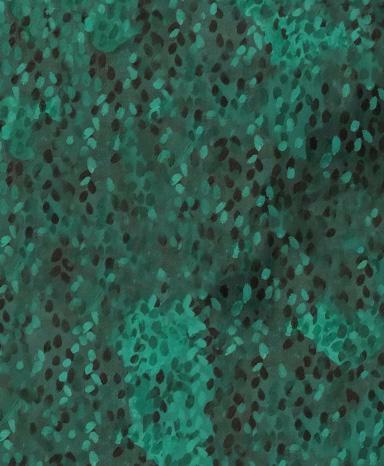the folio spring 2022

The


the folio spring 2022


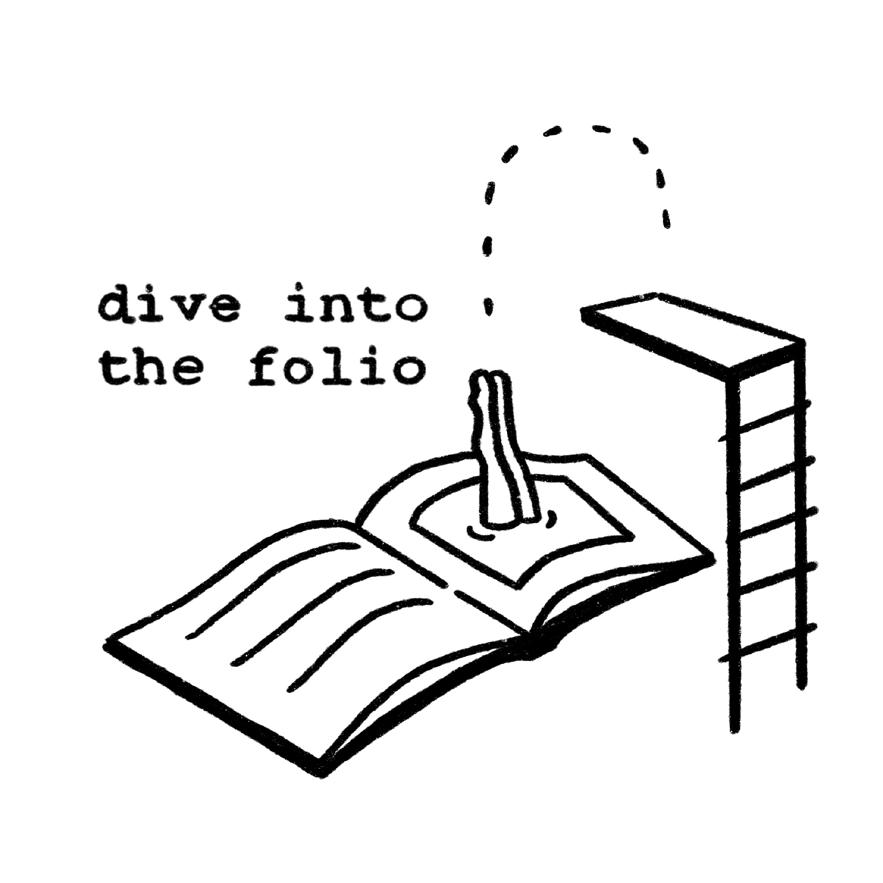
Volume LV Issue II
Conestoga High School 200 Irish Rd, Berwyn, PA 19312
Cover photo © “The View” Jamie Nieberle
Inside cover © Casey Kovarick
Copyright © 2022 Conestoga Literary Magazine Staff
Internal Design © 2022 Eileen Chen, Daniel Gergeus, Casey Kovarick, Nikkita Pandey, Ashka Patel
Copyright © of each work belongs to the respective author or artist
First edition 2022
All rights reserved. All works are copyright of their respective creators as indicated herein and are reproduced here with permission. The Folio is a public forum for student expression produced by the students of Conestoga High School.
Published and printed in the United States of America
www.stogafolio.weebly.com
Find us on Facebook, Instagram, and Twitter @stogafolio
Managing Editor: Art Editors: Literary Editors:
Senior Copy Editor: Copy Editors: Business Managers:
Nikkita Pandey
Eileen Chen, Daniel Gergeus, Casey Kovarick & Ashka Patel
Emma Laragione & Stella Lei
Chloe Williams
Peyton Harrill & Lily Jiang
Ava Bruni, Vivian Dong & Anika Kotapally
Staff Advisors:
Ben Smith & Katie Wilson
As seniors, we will miss high school, especially The Folio. If you are an underclassman, please remember to enjoy your last few years.
ell, here we are at the end of the most abnormally normal school year since 2019, and congratulations to everyone reading this because you made it. Coming back from quarantine and being in a school full of half visible peers to interact with has definitely been weird, but weird experiences are often great for inspiration, and boy, have people been inspired. For seniors, and therefore a majority of our editing staff, this means the end of our high school careers, which has been... memorable to say the least. For the rest of our Stoga peers, you still have more ahead of you, but fear not! This means you also have more Folio issues to look forward to (psst, between us, you’re the lucky ones)!
But what if we tune out COVID for just a few minutes? Let’s sit and close our eyes and take some time to reflect on our year. Think about the teachers you built relationships with and the peers you saw after a very long time. Take a minute to enjoy all the fond memories of this year. Hopefully you can add reading this issue to those.
The creatives featured in this issue are some of the most inspiring individuals that we have come to know and love through their work. Their writing and art speaks to us on so many levels, and we appreciate all the creativity and hard work that spilled onto these pages. Our staff was amazing and there is no way this issue could have come together without them.
Before closing out, we’d like to extend a special thanks to the staff. It has been a true pleasure to watch them grow and develop their skills, and even more so to watch this growth all pan out in person. The staff this year had to adapt to entirely new procedures and the way they transformed was moving to watch. We’ve received some truly phenomenal work this year, and we’ve loved reading and viewing every single one of them. Our staff are hardworking people with beautiful minds, and we couldn’t be prouder. We’d also like to give a HUGE thanks to our advisors, Mr. Smith and Mrs. Wilson, who have continuously provided insight, wisdom, and a comfortable environment for our staff to work and thrive in. The Folio wouldn’t be The Folio without any of them! Also, Mrs. Wilson was helping our team while pregnant, what a girlboss!!
Our theme for this year is all about luxury. We see luxury as our an ability to find great comfort and extravagance in whatever setting the world throws at us. And I mean, what could be more luxurious than sitting outside on a warm, sunny day with a nice cup of lemonade and your copy of The Folio’s Spring 2022 issue? We all need something sweet after the last few years we’ve had. This issue is filled with decadent art and writing that will satisfy your sweet tooth and leave you craving more. So open wide, turn the page, and get ready to indulge your senses. Slay,
The Editors
Ren Chiho Jing
Théâtre de Verre Chiho Jing
Curiosity Killed the Cat Digital Designs Lily Jiang / Tashikaa Senthilkumar
15
This Cold Black A Quiet Memory Abby Dobson / Lucille Rains Do You Wish You Knew Wyatt Zantua
Safety Net Ruhri Lee when i’m awake Anika Kotapally
Fragile Mia Hamilton
Fishing In Maine Ruhri Lee
The Ocean Left her to his Hands Olivia Chu CW: Ideas of blood, murder, abuse
CW = Content Warning, notes to reader about sensitive topics
Supermarket Parking Lot On a Bridge Jia Lin
the fireworks are for you, my friend Olivia Chu CW: death
Just Take a Breath Mia Hamilton
Some Stranger Mia Hamilton
Love Language Audrey Nguyen CW: death
Robin Calls at 12 in the Afternoon Sarah Hegg
Digital Designs Tashikaa Senthilkumar
The Tragic Hero Sasha Reeder Ajax Chiho Jing
Through my ribs, grab my heart Natalia Green
55 56
Starlight Waltz Sarah Weng
The Queen’s Watchdog Chiho Jing
Cypress Siren Chiho Jing
Suburban Gothic Ellie Reiner facade Katelyn Wang
Feels Good, Man Darian Rashid college apps <3 Ruhri Lee
Childhood Best Friends Carly Broseman
Scorned Changing Seasons Natalia Green / Hailey Leon
The Beauty Standard Christine Jung
Broken Dolls Amanda Hess
CW: references to abuse New Year Emma Laragione
Winter Party Emma Laragione
Parasocial Relationships Emily Zou
World’s End Angie Chen Player Eileen Chen
Sunday evenings Cara Munch
Entries about Love and Thyme Leyla Yilmaz
Tad McPherson: Practically Perfect in Every Way Ellie Reiner
On the Art of Pretending Teagan Posey CW: Gender dysphoria in the garden Hannah Gupta A Duchess Natalia Green Belladona Sarah Weng pink hair and motorcycles Olivia Chu
Cygnus Wants to Sing Nikkita Pandey
the lifecycle of a flower meadow Audrey Nguyen
Weightless Daniel Gergeus Grapes in a Ceramic Jug Celine Luo
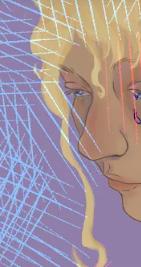



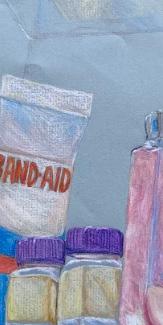

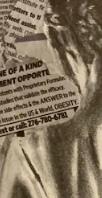
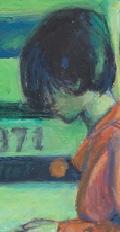
Web’s Prey Natalia Green
Crimson Lace Chloe Williams
CW: Blood The Space Between Trypophobia Carly Broseman / Peyton Harrill
The Auction Caden Aldridge
Squash Sasha Reeder
Parents Suck and So Do Their Cars Emma Laragione
Sketchy Guy Natalia Green John Thorn Sarah Hegg
Hauntology as Weekly Chores Stella Lei
Constrain Natalia Green migraine Olivia Chu
Confusion Sarah Weng
The Dandelion Wish Natalia Green Crying Emma Laragione
An Act of Desperate Intentions Ava Bruni
ah-yah-LAH snEEr Ayala Snir
Psychedelic Artiste Ruhri Lee
Love and Shadows Carly Broseman Recurring Lily Jiang Teeth Natalia Green
woman smoking a cigarette Vivian Dong
Reflection in the Rain Hannah Gupta Miniature Supernovas Anika Kotapally
As the Moon Follows Me Home Casey Kovarick
Death by Windy Angels Nikkita Pandey
The Cage Sasha Reeder
looking beyond winter skies Hannah Gupta
there was a time Audrey Nguyen
Philly: Falls Bridge Susanna Immanuel Panda Jonathan Wang

Chiho Jing
Past the reflection of a barrier of glass, Inhabited in solitude, by a doll with porcelain skin, Memories sealed away in that ivory clay, Sculpted history in a hollow soul,
Trimmed with ribbon and twine, Embroidered by the hands of its master, Laced with silken strings and the light of dawn.
Beyond that stainless display, adorned in its faded lacquer, Retired to its showcase in a museum of mirrors. Its former eminence is not lost, but forgotten. It remains untouched, less than a mannequin.
If the iridescence of its skin Is unparalleled to its eyes, Then the glory its past life retained No longer remains.
Although the treasure has shattered, A nostalgic melody escapes the stillness Overflowing within that chest.
Marionette, Those echoes whisper to that grandfather clock, Whose pendulum never reached the mahogany walls, That its hands had fallen off.
A voice that resonates through the silence, Dislodged the rusted gears. And those heterochromatic eyes Lustered again.
No longer bound to that stage by the shackles of fate, A thread with the weight of chains, Performing for an absent audience.
As the time sifts away, The sand draining in an hourglass To the dream of eternity, I carved. I bid my final farewell,
For the key that had collected dust has been uncovered once more.

The voice in the abyss called up to the cliff. Its sweet, innocent tone tasted like blackberry scones, luring the lonely kitten from below like its mother’s licks from long ago. The little cat stared down into the dark, unaware of the warning song from the lark. And it jumped off the edge without hesitation.

I felt the Black in my head…
A bitter eve
A fragrant night
A weeping blossom My bleeding rose
Sick and swelling… Like smoke in tired lungs densely black Heavy in my words
Then pouring from a weary eye… Sinking like a raining sea Over frigid skin Past faded lips Drawing earthward in Its fluid futility
I felt the Black in my head…
A black that sighs and grows And writhes in the stale rhythm of my heart…
In a soundless night
A girl dances on her driveway Her boots slosh through the slush

As she spins her coat twirls Illuminated by the garage lights
She moves to the rhythm playing in her head Celebrating the tranquility of this night And the comfort of the chilly air She holds on to winter’s last breaths And the melting patches of snow
The sky was a black canvas Her yard was still and quiet And here alone
Without the company of stars Or the presence of life The girl felt truly free
Designs By Tashikaa Senthilkumar
Abby
Digital
By Tashikaa Senthilkumar
Abby
Digital
Every now and then, against the blares of the heated summer glow the autumn blush of my skin darkens like the ominous shadow hanging from my feet.
I lay uneasy at the thought of these burns or the burning thoughts of my peers, and yet, my father laughs at how much worse he’s seen.
“Do you wish you knew?” he begins to say. The shivering breath of an island where tomorrow hung on the highest trees while everyone prodded for even a single bite.
He’s seen it all; the scrapped rows of roofs that they called home, the abhorring aches in fear that the blessing of life today wouldn’t arrive.
Everything was there, and yet we are here. “An old family long left behind, but never, never forgotten,” he says as he cherishes every last hunger he shared with them.
 Ruhri Lee Sharpie
Ruhri Lee Sharpie
here is where i am: lying on my bed, pitch-black surrounding me, and your voice in my ear. the fan is spinning. the room is spinning. i am spinning. my head is the axis because it is closest to my phone, because it is closest to you. i want to say that you ground me but that is a lie and i don’t lie to myself. what’s closer to the truth is this: you are the axis on which i spin. but even that isn’t the truth. what is the truth is this: i love you. what’s the whole truth is this: you don’t love me back. this is a fact. you are in my ear, and you are talking about the guy you have a crush on. his hair is brown; today, he wore a flannel to school; today, he smiled at you. today, i lay on my bed in the dark while my best friend talked about her crush, while i wanted desperately to talk about anything else. i haven’t taken my iron pills today. i need to edit a poem tomorrow. my head is spinning. you’re still talking. today, he called you for math homework. you are head over heels for him. i am head over heels for you. i wish i wasn’t. i wish you were done talking. now, you’re asking me about my day. i didn’t do anything much. finished my homework early. watched grey’s anatomy. do i have any crushes? no, i don’t like anyone. i just love you. it is eleven pm now, you need to sleep. i never need to sleep when i’m talking to you. you say goodnight. i hope you have the best night. i hope you have a night that is so good none will ever compare until you have an even better one tomorrow. your voice leaves my ear. suddenly i am exhausted. my head is still spinning. my stomach hurts. i need to sleep. i need to not be awake. when i am awake, i love you. my eyes close. when i am asleep, i love you but i don’t have to think about it anymore.
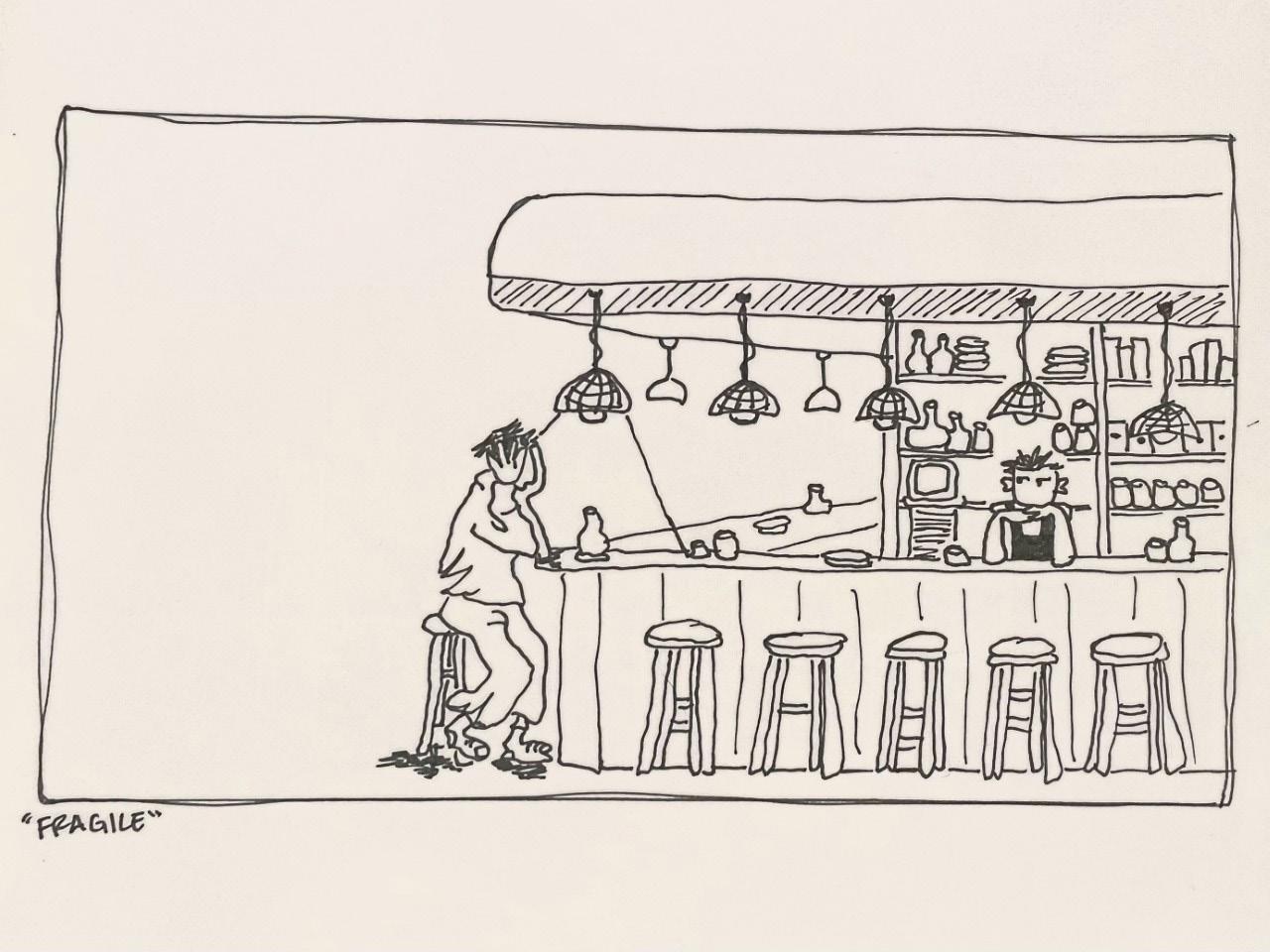
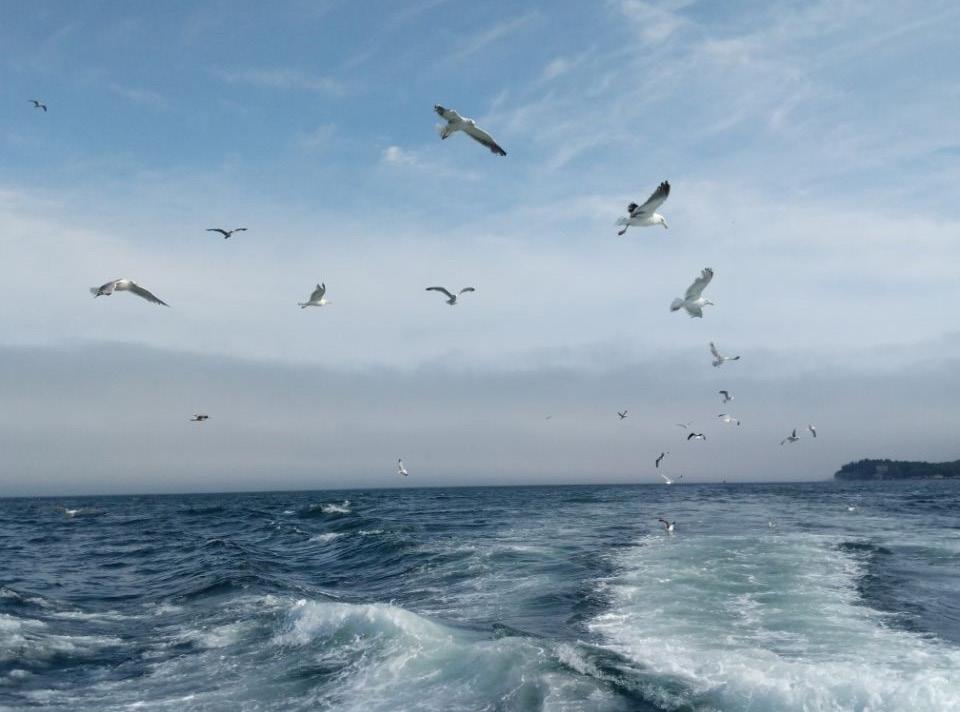 Ruhri Lee Photography
Ruhri Lee Photography
“The water was not moving, as though time had frozen with her absence.”
After we lost Dad and Mom lost herself, I learned to take care of myself and my younger sister. Every evening, after we ate dinner and finished our homework, we would walk the boardwalk watching the sunset, watching the people, tourists, locals, and friends. But I always found myself drawn to one girl with long black hair which faded into the darkness of the ocean after the sun set. She remained close to the water, letting the tide sweep over her legs with each current. She was always there when we arrived and there she stayed after we left.
When my sister was at a friend’s house sleeping over one night, I decided to go down to the boardwalk and talk to the girl. When I crossed the sandy grounds and finally found myself at her side, I saw that she was crying. Her tears fell heavily, but she made no sound. She let the ocean collect her tears, taking her sadness for itself, taking away her pain. She said nothing when I sat next to her, Or when I waved, or even when I said, “Hi.” She just sat, letting the waves glide over her legs, one after the other, until all the tears were gone. She looked about my age, maybe a year or two younger, but the dark circles under her eyes and the even darker, deeper look of pure exhaustion gave her the look of an old woman who had completely lost all joys in her life. It didn’t take a genius to know that the badly applied foundation around her eyes was not for the purpose of beauty or cosmetics, but for hiding, for pretending. I sat with her that whole night, and eventually, I woke up with her head resting on my shoulder, the brightness from the sun showing the shades of black, purple, and blue, which were so poorly covered by her tan foundation, at least four shades lighter than she.
This became a routine for us. As the years went by, I would continue to bring my sister down to the beach, but now we were accompanied by the girl, and she was accompanied by us. After three years of this, my sister, now ten, asked me how we could have befriended someone who never spoke, never waved, never smiled, never did anything, really. I told her that she didn’t have to say anything to us, that she was a friend to us, and we would always be one for her. She never asked me about our unspoken friendship again. No matter the weather each night, we would go down to the beach, whether it was a beautifully sunny day, or a day where the clouds were so thick, it made me wonder if the sun was still in our sky.
One day, Lila fell very, very sick, and I stayed home to take care of her. Everything I tried to do for her, she’d dismiss, telling me to go to the beach and see the girl. I told her it was okay, it was just one day, but she insisted. Nevertheless, I was her big sister, and I had the final word, so I stayed with her and cared for her the whole night until she made a full recovery in the morning. Lila made dinner for the first time that night; I had taught her all my recipes by then. When we finished our dinner, we got ready for the beach. We opened the door, and saw that the sky was black, pitch black, unlike anything we’d ever seen before. It was beautiful, but eerie, as it was barely early evening. When we got to the beach, we hopped the fence to walk to our usual spot to meet the girl, but she wasn’t there. The water was not moving, as though time had frozen with her absence. We walked up and down the beaches, but she was nowhere to be found. When we asked the lifeguard if he’d seen anything, he told me that he’d never once seen her, nor had any of the locals that we asked, and our feelings began to turn frantic. She seemed to be gone, as though she’d never existed. We spent the night looking, and when we finally started for home the next morning, defeated, we passed a man with dried blood marring his shirt, face, and hands. He looked at us with a saccharine smile, and said as he passed, “The waves were tired, and so was she. So, I took care of them both.” When I turned around to look at him again, he was gone. And so was she.
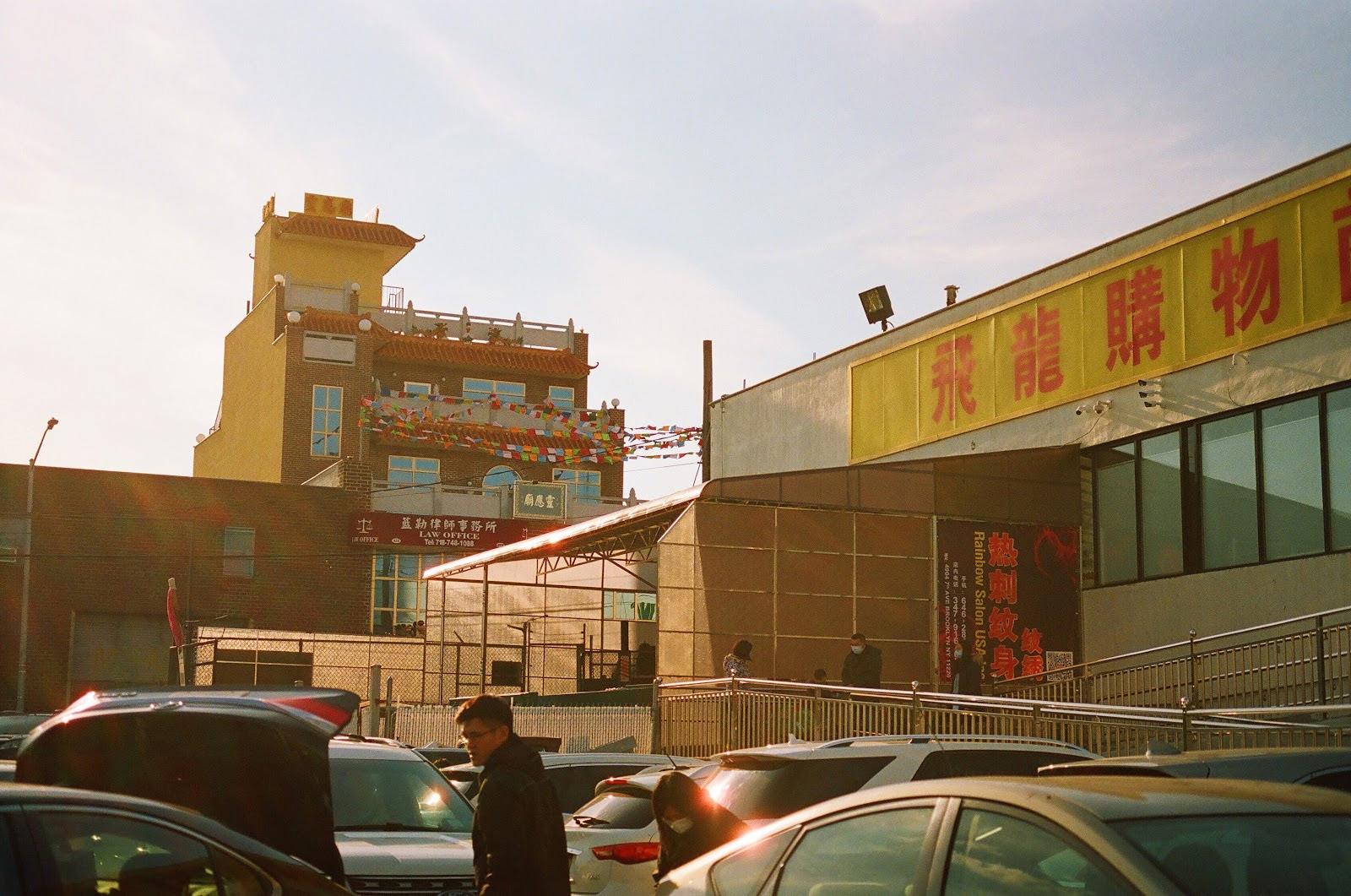

 By Jia Lin
By Jia Lin
One of the first books I remember was 1000 Fun and Unbelievable Facts—an oversized affair whose letters lurched off its cover, primed to spill into my doughy palms. Jessica and I spent afternoons tracing the headings with milk-soft fingers, sounding out four-syllable words, peering at every photograph and cartoon diagram like there were secrets between the dots of ink. Moths lack stomachs, and thus mostly drink liquids like nectar. An African elephant only has four teeth. Goldfish may eat each other when under stress. This was printed in a speech bubble adorning an image of a goldfish, its eyes glassed over, mouth slightly open. How morbid, we said of the book designers, to make an animal admit to its own crime.
Now, my mother and I bury Jessica on the riverbank. We should have done it on Sunday, right after we killed her, but it was ten PM, and neither of us trust the dark, so we covered her with a towel, left our clothes to soak in cold water, and went to sleep instead.
Originally, my mother suggested floating her down the river behind our house for the fish to eat, but I thought that was disrespectful as fuck, and we were family, Jesus Christ. She was your child. The least we can do is bury her.
So we haul her body into the mist-drenched morning and shovel the bank until we can roll her in, the August sky so airless it sucks away all sound—an endless vacuum of blue.
When we killed her, my mother said that really, she had stopped being Jessica long ago, and besides, it’s not murder if the victim isn’t technically alive. I almost told her that morality shouldn’t hinge on technicalities, but she would have ignored me and made that face where her mouth withers and her eyes pinch into slits, so I stayed quiet.
Now, I drag Jessica by her clammy hands, legs streaking through the mud. Her mouth is frozen open in a gash, and I imagine her hunger accumulating behind her teeth, exploding between her lips and leaving her behind. Collateral damage. The back of my throat burns.
Stella LeiI lay her in the hole and pick up the shovel, hands raw on its handle. Jessica stares up at me, eyes blank, blood a black crust on her shirt. We were always identical. The same widow’s peak and gently sloping nose, twin sets of braids brushing our backs. Jessica-andJennifer: even our names each other’s reflection. When we were little, we dressed the same and tried to confuse our mother, exchanging identities between our half-formed hands. In the end, she stopped calling us by name and directed her words to whoever was in the room. You, help me wash the dishes. You, take your shoes off before entering the house.
I pour dirt over Jessica’s face first.
My friends say it’s possession. People online say it’s a rot from the inside, decaying you until you crave flesh to fill the emptiness left behind. I say it’s creepy as hell, and it doesn’t matter anyway. This is what matters: Jessica’s body buckled into itself as she wasted away organs-first, emaciated throat swallowing her pulse, mouth opening and closing in a breathless gasp. Jessica ate half our goldfish and spit their bones outside my bedroom door so I saw them when I woke. Jessica reached for my arm across the dinner table and tried to take a bite.
She was not the first like this. The disease originated in the countryside, spread to the city, and exploded from there. Children ate their parents. Parents ate their children. Sisters grabbed each other by the arm and opened wide. Businesses shut down, and people quarantined inside their homes, leaving only to steal from whatever stores had more stock than bloodstains puddling the floor.
This was my mother’s job now—leaving three times a week to trawl the abandoned shopping centers, running her fingers down the empty shelves, tiles echoing below her feet. Two weeks ago, I wouldn’t have let her go alone. Before Jessica shriveled into a shell. Before I wrestled her down as our mother slit her throat with a kitchen knife, blood seeping tar-thick out of the wound—long-stagnant in its veins. This was because in April, after a trip to Costco, I had found our mother hiding a pack of ham in a floorboard under her bed. I shoved her aside and shook her shoulders until they drained bloodless in my fists, yelling that you can’t just hoard all the food, goddammit. What about me? What about us? Just stay home next time. I’ll split the portions. My God.
From then until Jessica got sick, she and I made grocery runs. We had one bike, so each trip we traded pedaling and sitting on the back, knees cramped, bony arms around the other’s waist. Whoever was on the back brought the backpack for carrying food. In the earlier weeks, it bulged with soup cans and crushed bags of chips, zippers straining over the Double Stuffed Oreos Jessica loved. By June, it hung around our shoulders like a husk of skin, our emptiness transmitted to it and then to us. Hunger inherited and amplified on the way back.
On one of our last trips, we lingered in the Walmart aisle, bag on the floor, a single can of sardines in Jessica’s hands. She turned it back and forth, reading the label: WILD CAUGHT & SUSTAINABLE; 170 calories per serving; 1 serving per container. Two weeks expired, but we were long past caring.
Jessica weighed the can in her palm. “Mom never liked fish.”
I glanced at the empty backpack, its zipper yawning like a mouth. “No, she didn’t.”
Jessica ran her fingernail along the can’s tab. “Eighty-five calories if we split it even. Eleven grams of protein each.”
I kicked the bag down the aisle.
The can peeled open, fish and brine permeating salt-thick through the air.
“I think murder does something to you,” I say to my mother as we wait inside the laundromat, our bloodied clothes spinning themselves pure. She stands against the wall, arms crossed. The blue-green fluorescents highlight the wrinkles in her face, and she looks like someone else, older and paler and thinner, her cheekbones stark against her skin.
“I already told you. Not murder.”
The washing machine—somehow still in service—clatters.
“You know what I mean.”
She walks to it and peers inside.
“I feel like she’s still watching us. Like I’ll turn a corner and she’ll be there, blood all the way down her chest.”
My mother checks the digital clock on the wall, the display frozen at 2:33 PM. “Guess that’s guilt.”
“Do you think she recognized us? When she was like that?”
My mother doesn’t look away from the clock.
“Do you think she knew us? When we killed her?”
Growing up, our mother left Jessica and me at home while she rushed to whatever job she was trying to keep. We had no television, and we weren’t allowed to go outside, so we spent the long afternoons roaming around the house.
Our favorite game was hide and seek, even though the cramped apartment had few places to crawl into—few holes to fill. Still, we took turns being It, facing a corner and counting faithfully to ten. Back then, danger had a countdown; a warning echoing through the halls. Jessica always hid behind the curtains in our mother’s bedroom, but I made a show of searching each corner, turning over pans in the kitchen and cushions in the living room. The goal was never to find each other. Back then, we always knew where the other was. Instead, we delighted in the search—rambling turns, the freedom, the promise of something at the end. After picking through each corner, I’d wander into our mother’s room to see Jessica, silhouetted against white, shadow languid on the floor. I never mentioned how the light revealed her body, crouched against the wall. So vulnerable, even in play.
Once, I tried to surprise her, sneaking to the window and grabbing her through the curtain. My fists clenched around her neck—the same column as mine—as cloth closed around her head. Her mouth gasped wet against white. Her limbs pummeled blindly. I flinched back, and she tumbled out of the curtain, coughing into the floor. She pushed me in the chest.
“Sorry!” I shielded myself with my arms. “It was an accident! Promise I didn’t mean to.”
She cuffed my shoulder, and I stumbled to the side, feet tangling in the rug.
“You can get me back, okay? Okay?”
“I feel like she’s still watching us. Like I’ll turn a corner and she’ll be there, blood all the way down her chest.”
Jessica, smiling now, shoved me into the curtain. I thudded against the wall, breath punching out from my lungs. I turned my head, and there was the ring of Jessica’s spit, translucent in the sun.
Noon beats down on us in a blast of dry heat, and I sit in front of our fish tank, watching the lone goldfish drift. Most of the ones left by Jessica had died when we ran out of fish food. I dumped their limp bodies in the yard, buried them like a trove of gold coins, the earth swallowing the price of her decay.
The radiator wheezes in tepid gusts, and the television buzzes with static. None of the channels broadcast anymore, and even the static is spotty at best, but I like the white noise when it works. A constant background thrum. Something to focus on other than starving.
My mother leans against the wall, dangling a cigarette out the open window.
I fan the air in front of me. “That shit is gonna kill you.”
She lifts the cigarette to her lips and inhales deeply. “Better than being eaten alive.” The cherry glows like a drop of blood on skin.
I stand and fold my arms behind my back. “Did you know goldfish can cannibalize each other? When water temperatures rise too high, or when there isn’t enough food?”
Maybe I should have left the fish corpses. The survivors might have lasted.
My mother exhales out the window, and smoke curls around her upper lip like a ghost of breath. “Brutal.”
The television static fizzes out.
In the evening, I lie in the bathtub and wrap my arms around my chest. Our stock of stolen ramen ran out two days ago, and the hunger gnaws at me, corroding my ribs. I hold my breath and slide deeper into the tub. The water closes around me like a womb, and I pretend I am Jessica, rotting in that riverbed, pulse gone long before my death. Maybe she had floated away. Birthed out of the earth. Stolen by the water like a baby from its cradle.
I remember our mother telling us a story like that decades ago—fairies who’d snatch infants and swap them for a changeling, a copy not quite right. She had said this as she washed our hair in this bathtub, drawing pictures in the shampoo sliding down our spines.
“You would know, right? If we were taken?” Jessica asked, eyes wide. Our mother smiled. “You wouldn’t have been taken in the first place. I sat in that nursery and watched you every night. Nothing will happen to you, my beautiful girls. My twin joys.”
She’d never answered the question. Soap stings my eyes, but I watch my hands distort in the water. What if I caught the disease? If I shriveled until only hunger was left? If Jessica’s deterioration mirrored itself in me, our bodies hurtling to the same end? My mother would kill me. I know this, true enough type in block letters and tuck between passages about elephants and moths. She might have to call a neighbor to help, but she would.
As my mother bathes, I kneel in front of the goldfish again. It bobs up and down, barely visible in the dark—a smudge of orange against blue. I press my fingers against the glass, and it swims up to me, mouth gaping into space. I open in response.
“I feel like she’s still watching us. Like I’ll turn a corner and she’ll be there, blood all the way down her chest.”
In honor of Eli (September 18th, 2005- July 4th, 2021).
no one’s talked in the server since. not really.
i think we’re still trying to work through it.
i think we’ll always be trying to work through it.
when anya sent the message that you were gone, i was walking around the pool at Mo’s 4th of July party, looking for a dog to pet or a corner to hide in so i could read my book in peace.
i remember thinking she meant that you got into some stupidly hilarious accident in a rip off version of GTA V, because what else would explain her words on the screen, telling us you were dead.
that a car swerved, that your mom couldn’t dodge it, that your nine-year-old sister was on the passenger’s side in the backseat, that she watched it all happen before her world went black:
the screams, the blood, a hand desperately reaching for the phone on the dashboard to call 911, your tears trailing your cheek because you couldn’t protect her, that you couldn’t even reach her because your right arm was trapped, your left arm was severed.
you told us how excited you were to see your grandparents, how this was the final four hour drive you’d be making to their house before they finally moved in with you guys. well, i think
you might’ve taken ‘final drive’ too literally. i know you would’ve laughed at that morbid-ass joke. we’re all trying to move past it, i think. maybe move past this part of our lives, this friend group, because i guess it just doesn’t work without you. maybe you were our operating system, and now that you’re gone, we realized we have no use together, no purpose, not anymore.
or maybe it’s that we’re afraid to move on. that if we all started talking again, the view of your darkened icon, leaving our call unanswered in the discord server would mean it was all true. that we would never be able to talk to you again, that we would never have the same, sleep-deprived conversations at 3 am about the best type of cookie, or the proper way to make cereal.
Milk first. Then the cereal. Fight me. please fight me again. please just start a random call with no intent, no purpose, just a call because we’re friends and we’ll always be friends and because you aren’t really gone and because you were just in an unplugged phase and because you realized that phase was dumb because there’s no way you could go half a year
without talking to us.
because there’s no way any of us could go this long without talking to you.
without hearing your idiotic, non-sequitur remarks, or your random factoids about deep sea fish that somehow found a way to turn an awkward moment into even more awkwardness.
when anya sent the message that your sister’s heart finally gave out in the ICU, that you and your mom’s funeral was being postponed so that all three of you could be buried together; none of us replied. we all saw the message, i’m sure, but it was so much easier to pretend we didn’t. that it didn’t exist, because then we could pretend that you still did.
the fireworks signifying the birth of our nation were set into the sky, exploding with pride, the small bits of fading colors sinking back behind the trees as we stared in awe.
no one talked for weeks, not until anya sent the message about your sister. even then, we didn’t really talk. we all sent a message or two, but i think that it was only to try to push anya’s message far up enough that it wouldn’t be the first thing we saw when we opened the server chats to see if anyone was online, to see if we weren’t alone, to make sure that this was all real.
we’ll never stop missing you, so don’t let your fragile little god complex worry. i thought you’d get a kick out of that stupid insult too. i don’t think we could stop missing you even if we
tried, even if we wanted to. i know because there have been times where i’ve wanted to.
to forget everything about you because it’s so much easier than remembering every good memory, easier than thinking about all the memories that will never be made. but your crooked smile always finds its way into my mind when my tears create a lake in my pillow.
next year, when they set off the fireworks, when anya and i go to visit your name carved in marble, know that we won’t forget. that no matter what happens, no matter how many years go by, no matter how old we are, we won’t forget.
your 5th grade username that you never figured out how to change won’t be forgotten by us. though I’m sure you’d probably like us to. your rants about why The Outsiders is a literary masterpiece, and how every other novel is a failure still ricochet in my mind when i open a book. your hazel eyes and crooked smile created by your blue and pink braces will not be an image to fade from our minds. you brought a radiance into our lives like none other. thank you for that.
Stay Golden, my friend. you’ll forever be missed.
Olivia Chu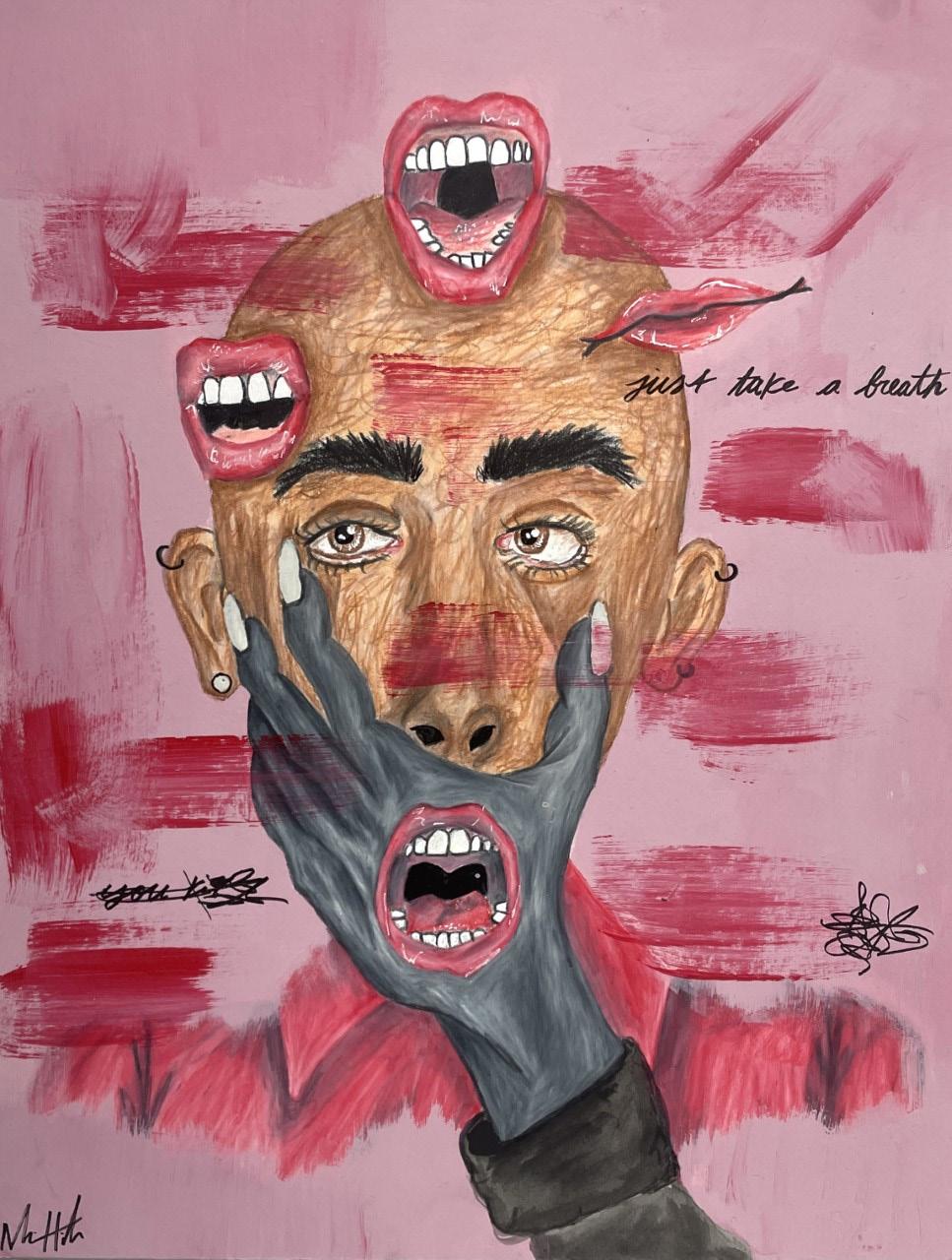
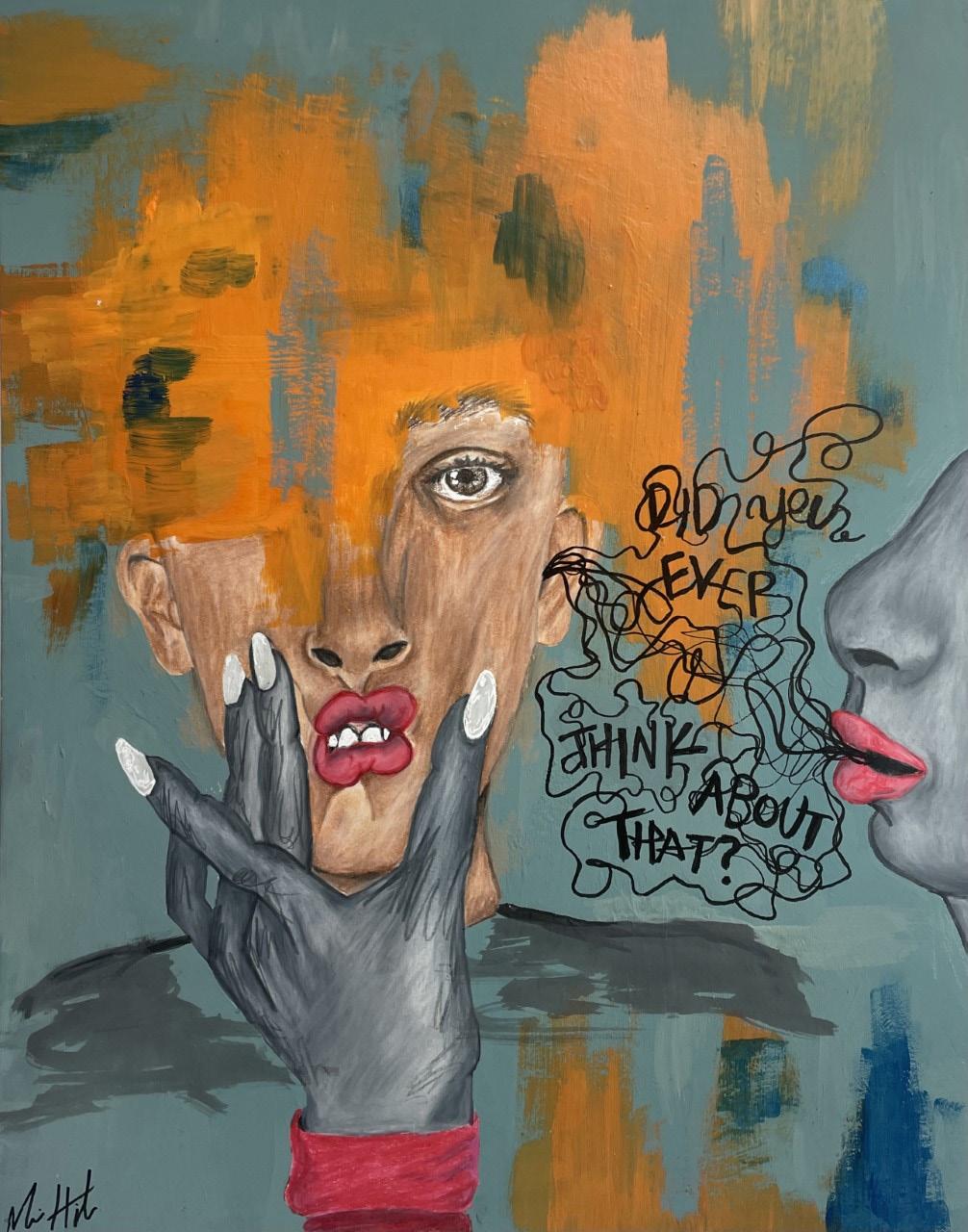 By Mia Hamilton
By Mia Hamilton
Tears always come in waves. I believe I am fine and suddenly I see a picture of him and Dad fishing at a creek, them in matching tanks and khaki shorts, and another washes over me. Oh, how different Ông Cố looks in the stained, grainy photos of his earlier years. No wrinkles in his forehead, a straightness in his back. But he looks the same somehow, dressed in his gummy smile that I can imagine was laughing that familiar little giggle.
How is it that I can live in a world of dirty high school jokes and poor grades, while also having days of nothing but eyes rubbed raw and weeping beyond control? How come I barely knew him yet crumble at the foot of his casket? Only from Ông Nội’s speech did I learn the full story of his past, a miraculous immigrant story that almost sounded comical.
Ông Cố was a high-ranking officer who was tortured eight times, gave up his hard-earned status to give his family a better life in America, and lived until the age of 107. He had this appreciation for life nobody else possessed, a constant yearning to learn. Even a few months before he grew ill, Ông Nội would joke, he stayed up browsing the internet and reading articles on politics. What 107-year-old does that? But in my childish eyes, all I saw was the old man with shaky hands who I refused to hug.
Author’s Note: I remember wanting to give a speech at my great-grandfather’s, Ông Cố’s, viewing, but I hadn’t prepared one nor had the courage. My hope in writing this was to one day show it to my Bà Nội and Ông Nội, or grandma and grandpa, and share the words I failed to find at the time.
Audrey NguyenWhen I stepped into the door of the funeral home, cold from the November chill and even colder from his silhouette in my heart, I expected to not cry, for I didn’t know him like Bà Nội or Dad did. But of course, I am wrong. For before me sit generation upon generation of children and grandchildren and great-grandchildren like splattered dots in an overly white room, saturated and pulsating with our shared ache. Mom warned me of overly dramatic sobbing. Could they cry any louder? But I never expected my Bà Nội to be one of them, the strong eldest sister who is supposed to carry the burden of her siblings’ sorrow, not collapse beneath it.
And maybe that’s what made me cry: seeing the woman who pretend-picked lilacs off my quilt with me every night when I was 6 now picking the lint out of his suit as she cradles his limp torso. I had always seen her and my great-aunts adjusting his jacket and chair for his comfort during family gatherings, everyone else off drinking or watching football. It never occurred to me that they stood not just as daughters, but in the shape of his wife who was waiting patiently above.
There are speeches, some of quivering lips and choked tears, others filled to the brim with the warm elixir of laughter. But most are a mixture of both because isn’t that what grief is? The shared “remember whens” and the “if onlys”? I didn’t understand most of the speeches, because they were mostly in Vietnamese. But even so, I felt a sense of home in its harsh broken tones and beautiful French carry-overs. For home is just that: a crazy, embarrassing mess where you only really need “thank you” and “delicious” for the dishes you only get to eat at Bà Nội’s.
It’s a needle and thread woven throughout our lives, a silent soldier unwavering against the swords of grief. It is in the small deeds of making sure to say hi at every family gathering because you never know if it’ll be his last and wearing Ông Cố’s favorite berets at his burial. Love is spoken, yes, but more often it is in the overlooked acts of kindness and bravery. So, while I may not have known Ông Cố well, I break for the sweet man who showed me love in the eight times he was captured by the North, in his fight to make a home in America, and in our shared passion for politics.
grew up in a household full of clocks. From the gold embellished grandfather clocks to little alarm clocks with the most obnoxious rings, every clock had something unique about it. Different tones, different colors, different times. Some were a second late or early, others were hours off. None of them were on time. I would try to focus on one only to be distracted by another, a ding for the hour or a loud tick that interrupted my thought. The only thing I could ever really focus on was a bird clock hung on one of the tan peeling walls that had a different bird call for each hour. It was a simple clock in size and material, but the art of each bird conveyed an image of flight, like they were all trapped waiting to be released. The robin was my favorite, both because it was my name but also the call it made. Shrill and commanding, it drowned out all the other reminders of the time ever passing. It seemed fitting that the robin sat at the top, the 12 we always counted to.
As would be expected from the owners of a house full of inaccurate clocks, my parents were never on time. My mother always came to pick me up from school at various times of night and my father arrived everywhere far too early. I always got so angry because if all the other kids’ parents could come on time, why couldn’t mine? One night I got so fed up with it I ripped my father’s watch off his wrist and threw it on the ground, the face shattering on impact. My father looked down at me with a blank expression before picking the watch off the ground, leaving me with the pieces of glass littering the floor. We did not meet for dinner that night, in fact we barely spoke at all after the incident. My mother never spoke to me about it, but it was clear that she did not know how to care for me anymore. I tried to find it within myself to apologize, but I could not find the words and, truthfully, I was not remorseful. I hated
the clocks, hated the time, hated my parents.
When I turned 18 the first thing I did was move far away from the house and cut all ties with the insane people who inhabited it. I did not acknowledge them, refused to visit them, and denied them as my mother and father. I got a job in the city, found a man who loved me, adopted two twin boys, and moved to a pretty blue house in the suburbs with a white picket fence. For years, everything was perfect. That is, it was, until one day I found a lumpy
black envelope with a red seal in the mailbox. There was no return address, the only thing being written on it being ‘Robin’.
I had no question of who it was from. I quickly opened it to find the wristwatch I broke and a letter inside. I tried to gulp but the air wouldn’t go down, and for a minute I stood there gasping for breath. I skimmed the letter until my eyes were fixed on the sentence your parents have passed away. Weight pushed on my chest so hard that I ended up curled on the lawn, violently shaking. At some point, my husband came out to find me broken down. He quickly read the letter and held me in a tight embrace until the adrenaline subsided, consoling me while I blurted out apologies that were not meant for him. After choking them back for so long, it seemed natural to release them even when the people they were for could no longer accept them.
I went to the funeral in my hometown by myself. It was a past I had to face on my own, without my present there to help me. The little town filled me with nostalgia and dread, but I still pulled myself to go to what I assumed was going to be a small ceremony. However, when I got to the church, I was baffled to find that almost the entire town was packed into the little building.
I was immediately met with love and condolences, even from neighbors who knew I had cut contact. Guilt flowed through me, only magnified because everyone around seemed to genuinely be mourning. As people took the stand talking about the profound effect my parents had on them, I felt my lungs twist and turn. Memories flicked through my mind, almost like a dream, causing everything to just feel slightly off. I couldn’t tell if my memories were truth or fabricated versions of the events from my pain ridden heart, willing me to see the best in my parents. I couldn’t tell. And honestly, it didn’t really matter.
When I was called to speak, my vision was filled with spots of black and my stomach was boiling. I trudged to the stand and pulled out the little crumpled paper I had in my pocket. I didn’t know I was going to be
speaking to so many people, sending more unwanted anxiety through my body. When I tried to speak, no words came out. Breath started to catch in my throat causing me to hyperventilate but I had to do something, show something, anything. I slowly unlatched the broken watch I had worn around my wrist and held it up to the crowd before I collapsed to the ground sobbing.
I don’t remember leaving the building, someone must have helped me I guess. I instead found myself walking up the path to my childhood home. When I entered, it was as if nothing had changed since the day I left.
Clocks were all over the floor and hung on the wall, every one chiming away. A familiar anger enveloped me and suddenly I was ripping everything off the walls, throwing it on the ground, kicking at anything that was close to me. I screamed, cried, and rolled on the floor letting the glass cut my arms for as long as it took for the hatred to subside.
When it did, I took deep breaths and sat up looking around at the mess I made.
Although I had destroyed many clocks in my tantrum, many still stood beautiful and continued to tell it’s ill-informed version of the time. I sat listening to the ticks for a while, as if waiting for them to speak to me like my parents did. As if hearing my plea, the robin called from its perch, alerting me it was 12:00 pm, only it wasn’t, it was 3:57 PM. But at that moment, it could be any time.
I looked up at the clock, and saw how it continued to tick even though it was wrong. Every second was off, but it didn’t matter. I took it off the wall gently, and glanced around the mess I made of the room. Everything felt wrong. How could these people who seemed to evade all logical sense still die like the rest of us?
All the stories that were shared that day continued to cycle my mind. Were my parents truly as bad as I thought, or was I magnifying their simple faults while overlooking their good qualities? Probably a mix of both,

is what they would have told me. There was something I was sure of, though. I should have valued them more. For a kid who grew up in a household full of clocks, I didn’t utilize the time I had as much as I should have.
I was about to walk out of the house when I noticed a note tucked behind the clock in my hands. I pulled it out and recognized it as my mother’s handwritingimmediately. She always wrote in a lazy cursive with hearts above her i’s. I read the simple phrase that made my lungs fill fully with air for the first time since I got the news.
We Love You, Robin. Signed beneath it was both my mother and father’s signature. Even after everything, they knew I would come back. They knew I would take the clock, even before I did. They knew I would need to know in the end that they forgave me.
I walked out the house and got in the car, finally coming to terms with my reality. Before I pulled out I looked at the house one more time, only to find myself completely frozen. Sitting on top of the overhang of the front door there sat two Robins. Before I could process the scene, the birds let out shrill cries and flew away out of sight together.
Taking a deep breath, I let the moment sink in before pulling out of the driveway and driving back to my future. My past was behind me and I had broken through the glass. Finally, I was able to fly free.
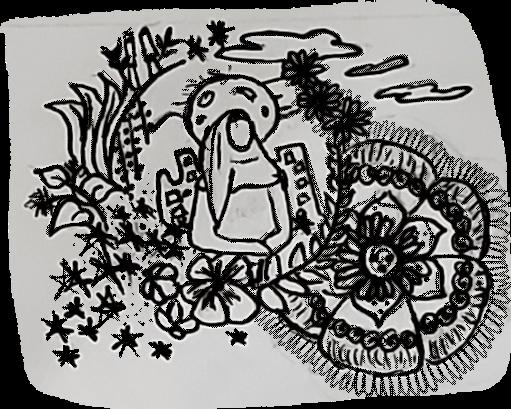
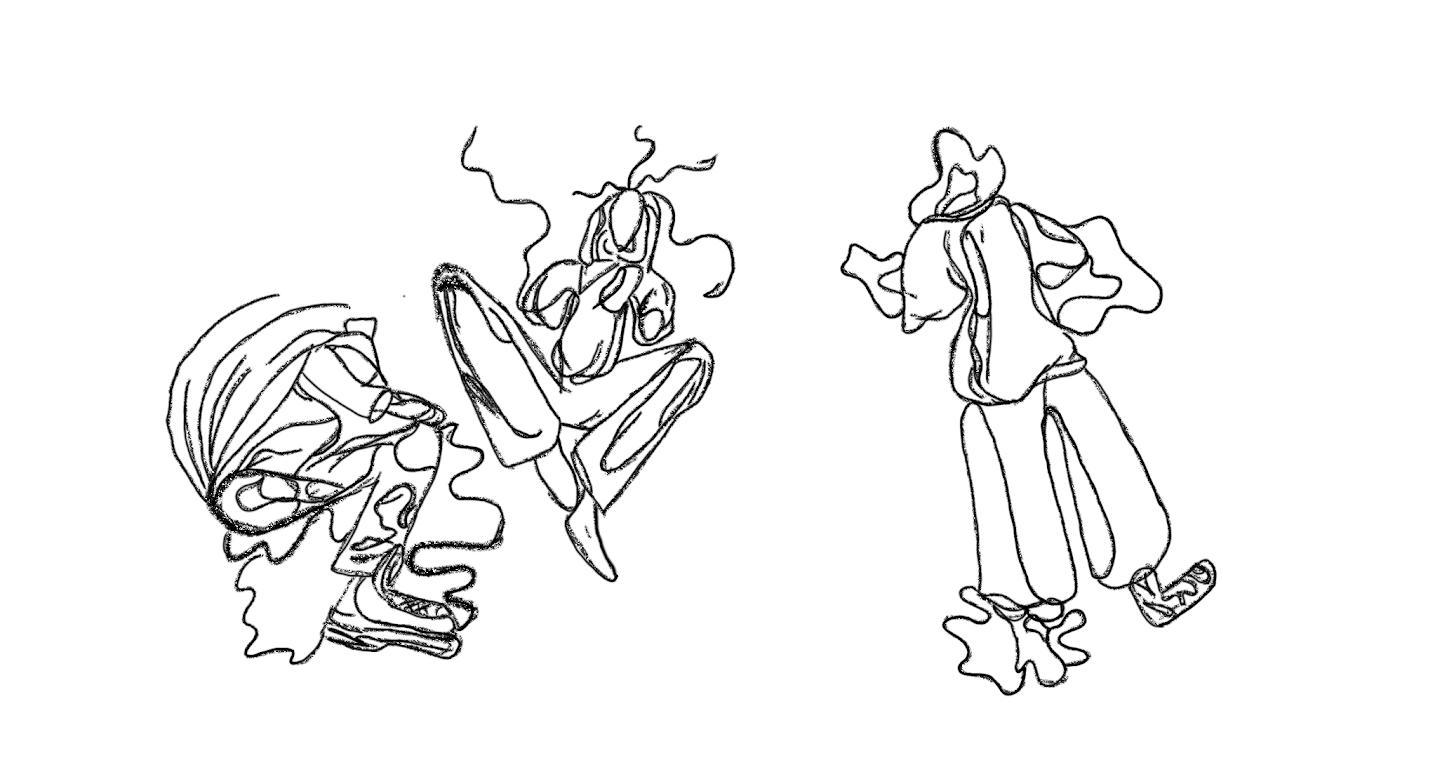 By Tashikaa Senthilkumar
By Tashikaa Senthilkumar
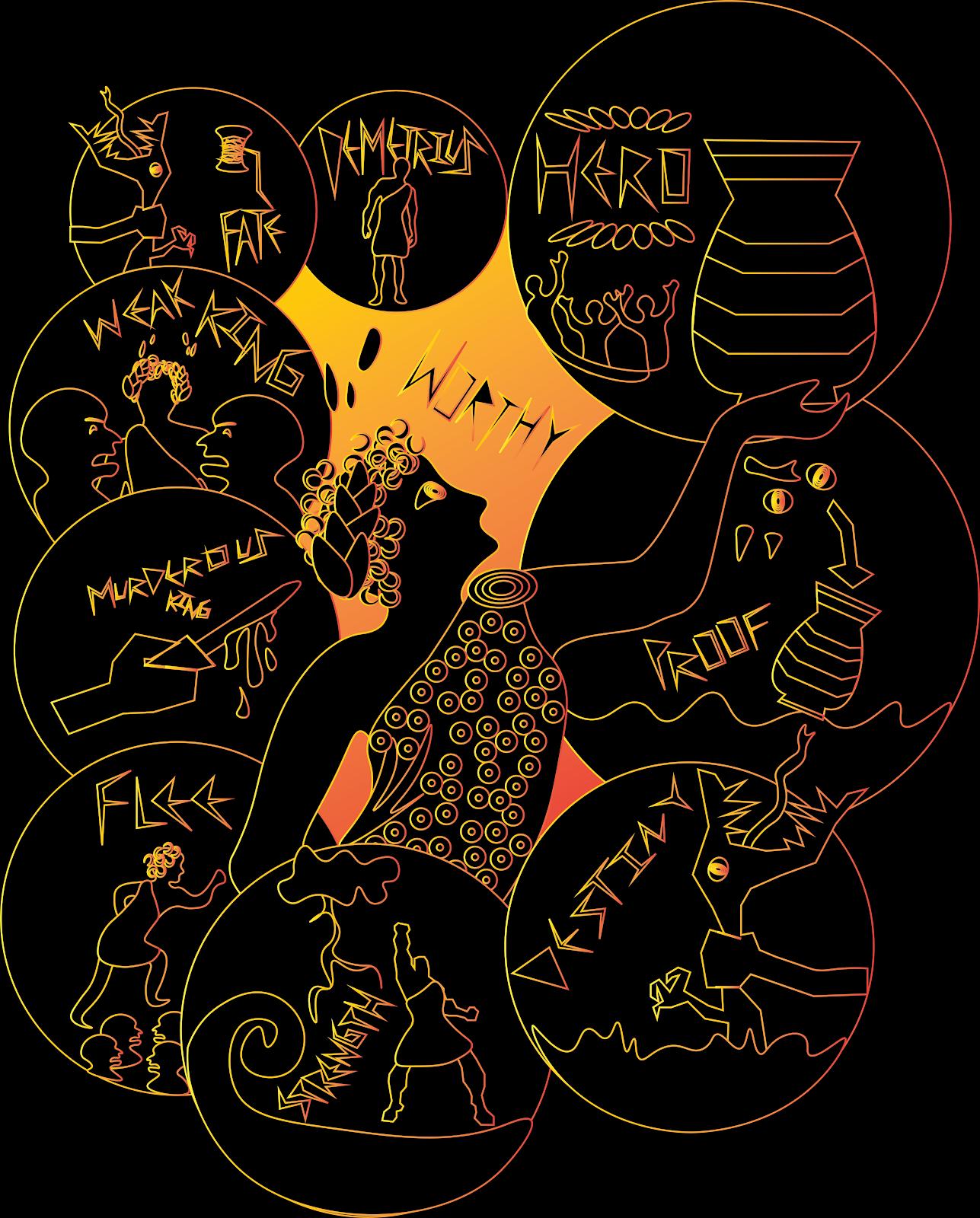
How long has it been?
Since he last saw the light. To him, those were three months For them, it was three nights.
Day after day, The child wandered those halls those cold, rigid floors and tall transparent walls.
With only a spearhead he crafted from stone, he encountered monsters, that shook him to the bone.
Around every corner, a beast twice his size. The only thing left, was his will to survive.
Drenched in blood Covered in grime Only time could tell When he would lose his mind.
An endless battle Frostbitten fingertips His desperation grew, Alone in that abyss.
“Brother!” she called, with a smile on her face the warmth unfamiliar from his time in that place.
In that bottomless pit No one heard his calls But now he wondered, Was he just crazy after all?
That dead-ended maze Driving him insane Although he returned, He was never the same. Chiho Jing
When I was little, I found a lump of misshapen plastic, left in the corner of the garage in the mid-August heat. When I asked my mother what it was, she told me it was a plastic ball I loved as a baby. I remember crying, wondering how I could’ve forgotten something I’d loved so much, how it could’ve slipped through the cracks in my memory like water through my cupped hands, how my forgetfulness could’ve warped something I had known like the back of my hand into something I could barely recognize.
I remember you like phantom pains, like neck sores, like the reverberations of a punch. I go to a bookstore, see a Fleetwood Mac vinyl and feel something like blue-violet on my collarbone. When I see a man drinking, when his whiskey-soaked breath washes over me, something wine-dark opens on my cheek. My memories of you are whisper down the lane, each version of myself distorting them just a little, until what I have now is only the same in the bile that rises in my stomach when I touch them, the way I move through the rest of the day, faded and misty. When I called my mother in the after, as red was shifting into violet was shifting into brown, she cried on the phone for a long time. When I hung up, I threw out my five extra bottles of concealer. I threw
When I roll your name around in my mouth, it gets caught between my teeth like popcorn shells. When I pull it out, syllable by syllable, my gums bleed, until all I can taste is metal and tears. In my support group, cold metal chairs in a circle, walls papered in affirmations and promises that you can move forward in bright blue and green and yellow, I sit with ten other people who have the same memories as me; they know what I mean when I say I can’t listen to someone shouting without goosebumps raising on the back of my neck. The group therapist tells us trauma makes memories shift and change and disappear; they tell us it’s okay for our memories to change as we do. When I talk to my mother, she says it’s a gift; forgetting is a gift. Maybe it’s because my memories of you are warped, plastic that has sat too long in the sun, that red beanies make my heart thud into my throat. Maybe that’s why, when I see a man in a black jean jacket walk down the street, my body releases adrenaline, like preparation. Be ready to run again.
When I think of you your face is blurry; I can’t remember its eyebrows or nose or mouth. When I think of you I can remember your hands, a ring on your right middle finger. I can remember your fists, the way they curled into themselves, your shoulders, the set of them that only ever came before the pain. I can remember how my hands shook when keys rattled in the lock of our door. I can remember the rancid knot of fear, tucked into the left side of my chest, the way its taste rose into my throat when you put your arm around my shoulders. I can remember the way fear crawled into my mouth when I packed a bag in the middle of the night and climbed down the fire escape. I can remember how it turned into terror as I ran, pressing flight into my bones, desperation in every crease between my eyes, the cuts my nails left in my palms. I can remember how I had to stop, throw it up, the fear and the panic, clear them out of my stomach like food that went bad a long time ago. I remember you like a voice, red and raised, like purple blooming into my cheek, like something that still hurts to touch.
When plastic sits in the sun too long, it warps and twists and deforms. But the plastic is still there. The plastic is still here.
“Be
“Cut off a wolf’s head, and it still has the power to bite”
- Lady Eboshi; Princess Mononoke (1997)
In these woods, my sins bare into brand: I undaughter myself and turn to the wild, release my blood from human hands. They grip my arm, and leave bruises thick as snakes. Rage blistering into open palms. But I hold this honest flesh even as it barrels to beast, whipping into gunmetal pelt, a cry slicked silver by wind. Mother, I am knifebound to the past. Victim to the future. I halve my reflection and cut the girl away, a gash the shape
published in OROTONE Journalof the moon. I confess, I thought our gods would never die. I thought we were less metal than earth. I buried the shot and waited for it to grow. Mother, what do we do with all this iron?
Do boars know the predator evolves, a new technology of hurt? In these woods, I watch you transform, alchemy, wring bullets from blood. You balance on cliff sides and search for flashes of fur, the musket eating demons out of deer. You,
Stella Lei Originallycannibalizing land, more teeth than stone, more bite than bite. A jaw hooking twin crescents around home. But human, tell me how you fuel your machine—its smoke and its meat. The sweat, rotting your joints. Tell me how you aim the gun in the lake and shoot reflections of trees.
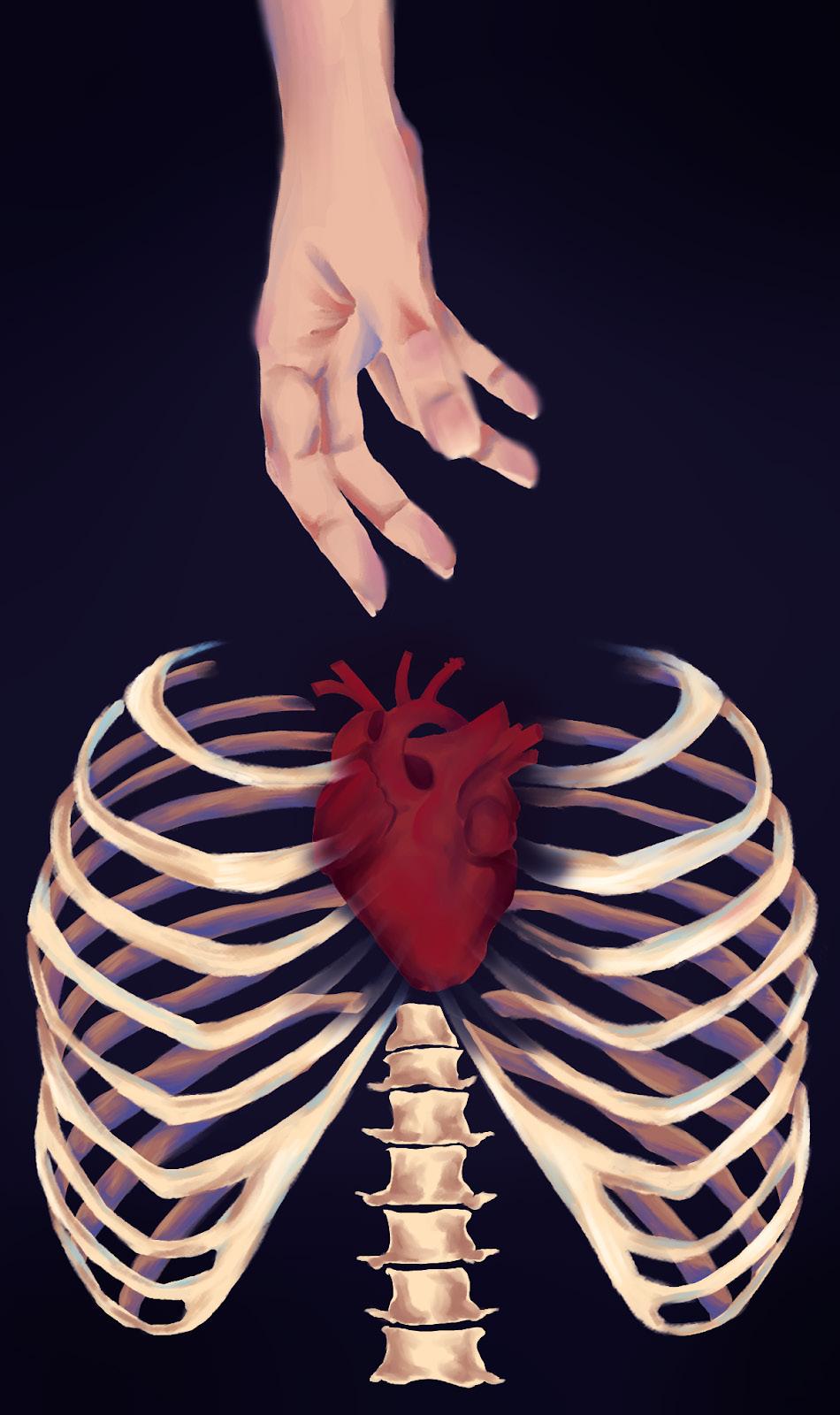 Natalia Green Digital
Natalia Green Digital
Radiance.
In the daytime, everything is bathed in light. Warmth seeps into every gold-tinted crevice facing the sky.
Gazing down at the Earth below her weightless feet, the brazen, lively Day beams brightly. The fiery sun hangs like an amulet at her bosom, moving along steadily as she glides across the horizon. Her breathy laugh can be heard in the breeze as she towers over the people frolicking upon the illuminated land. She loves watching these little humans and the nature that surrounds them, deriving her ebullience from the purity she sees in every living thing.
Day continues her dance across the horizon with abandon, her heart unfettered like the bracing winds she kicks up with the hem of her skirt. When she tires, she lies down to rest beyond the horizon, the sky darkening as she retreats behind land and sea. Darkness overtakes the warm glow of dusk and a new dancer steps onto the darkening landscape.
Day is neither living nor dead. She is eternal, only stepping aside for Night to take the stage as she rests just out of sight.
She is unstoppable, moving in lockstep with time itself.
But when she sees the smog rising from the ground, obscuring the radiance of the sun at her chest, she is almost stymied by the noxious fumes. Her lively steps turn to trudging as she loses sight of the world that once flourished beneath her feet. Her heart grows heavy as she watches the earth she steps upon wither, its vitality leached by the hubris of man. When she weeps, feeling devoid of the joy she once felt when looking upon the world, her tears fall in purifying rain. For a moment, some of the impurity is washed away, and through the thinning veil, she sees the true abomination.
Elegance.
In the nighttime, the Earth becomes a mysterious, stygian landscape. The excitement of life in the sunlight now retreats into the shadows.
Stepping tentatively across the land in short, nimble steps, the omniscient, serene Night smiles, the corners of her lips curling up ever so slightly. She wears the moon on her chest as it emits a soft, hypnotizing glow that dusts the world with a luminous veneer of moonlight. The sweeping folds of her dress become a curtain of secrecy for a lovers’ tryst, a source of solace and safety for the solitary. She is amused by the sight of a young savant reading by the light of a candle, fending off the darkness she brings with each delicate stride.
Night waltzes slowly along the landscape. Stars sparkle like diamonds in her hair. Just as she is about to disappear over the arc of the Earth, she casts one last glance at the people she is about to leave behind, pondering the secrets they keep under the covers of her star-strewn cloak. Night catches sight of Day, drowsily rising from her slumber. She smiles knowingly at her companion in the trek through time. Just as Day reciprocates the gesture with a sleepy grin, Night sinks below the horizon and leaves Day to begin her next dance. Now out of sight as Day springs through the air, Night peacefully awaits the next time she will be able to promenade through the dark.
Night consumes all. Not a corner of the world is out of her scope, for she is omnipresent—and yet, she begins to witness the conquest of her nocturnal dominion.
Artificial light springs forth from the world of man, and Night finds herself cornered like a rabid animal, surrounded and harnessed by an encroaching force that leaves her at the mercy of mankind.
The people she once saw taking refuge under the sweeping darkness that came with her presence now fight against it, staving away the permeating black as if they could pierce the ebony sky itself with their newfound power. The moon hanging off her slender neck was no longer looked to when the shadows came out to play, its soft glow outshined by a million blinking lights on the ground. The diamonds in her hair winked out, dull as brass. Livid, Night’s eyes fill with bitter ire as she continues to traverse the land as a thing to be ridiculed, a weakling. Her presence had once held the world in a trance—and now, she is imprisoned by its power.
The Queen’s Watchdog @chihokeii on instagram
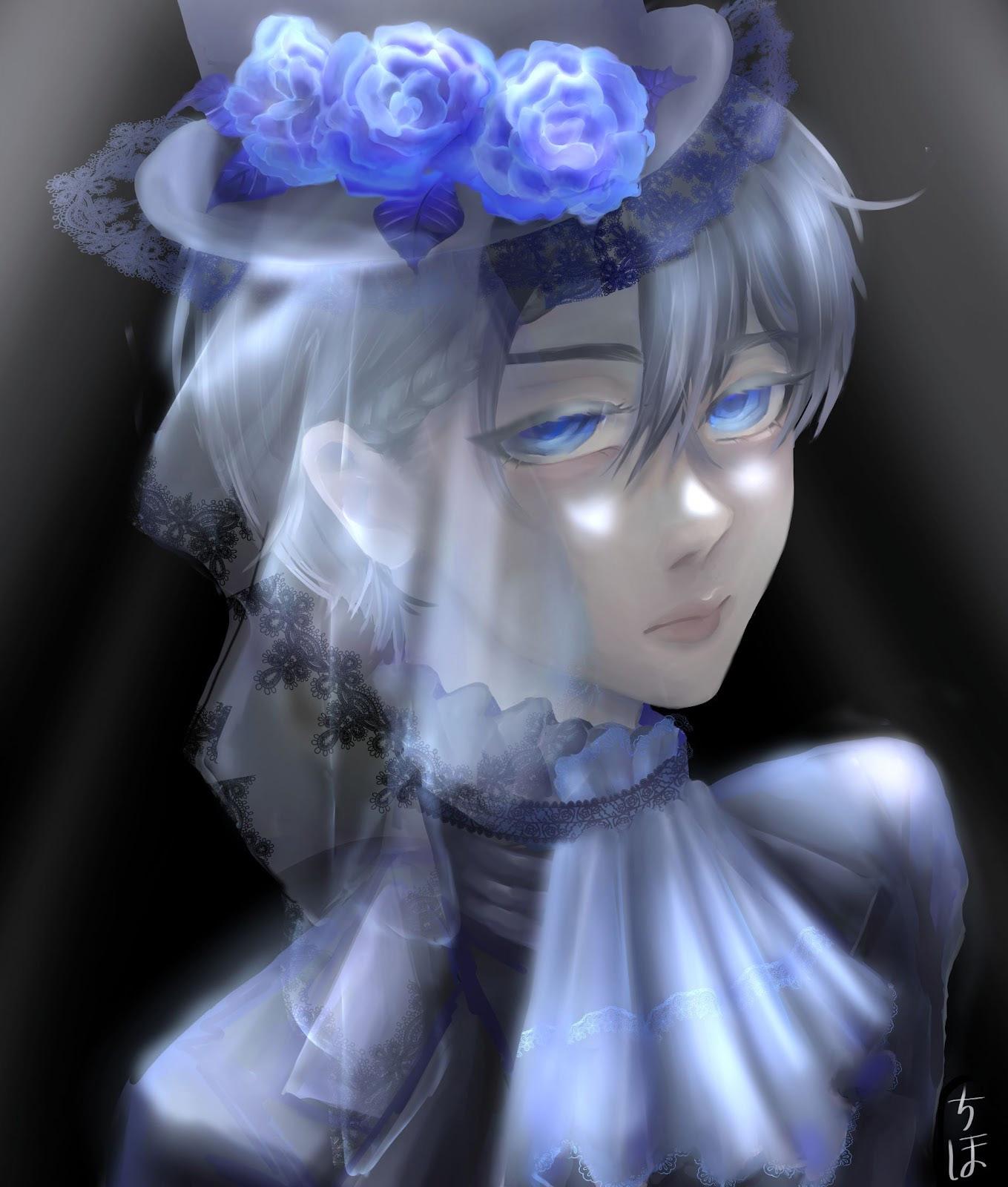

I’m like a stick
In a pile of shit. Trapped. Trapped in a world full of claw clips and Chevrolets. Trapped in a town teeming with tattletales and guard rails. Trapped in a life numb and blue. Welcome to here, my world of wrath and wire, My biome of bickering backstabbers and broken promises. Suburban Gothic, that’s what this should be. The Gilded Façade of Southeastern Pennsylvania. Shiny on top, rotten on the inside.
I refuse to stay
In the rocky terrain Dotted with daggers chock full of Feigned smiles and faker people. But no matter how far I drive, I’m forever cursed to remain Behind the greased iron bars Of my beautiful, horrible home.
 facade
facade


When we were born, we were best friends. We were neighbors and our mothers met while they were pregnant. They were instant friends, and they would spend hours imagining their children being close. They’d chat and fantasize about the two of us being best of friends. Neither of them had other kids, and they loved the idea of us having somebody from birth.
When we were three, our parents’ wishes were fulfilled. Our families became a package deal, and you and I were always together. We played in the backyard together, we took bubble baths together, and we started preschool together. Every major step was taken as a pair.
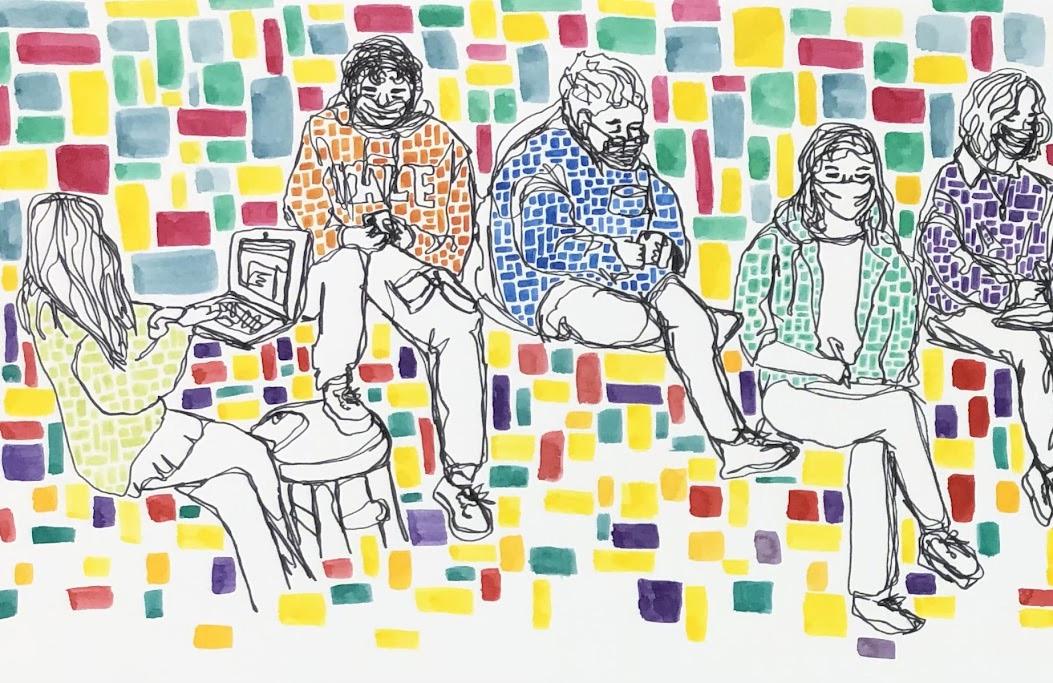
When we were four, you would ask me to marry you every week; I never said yes. I don’t think it was your fault. We were young, boys had cooties, and we didn’t even have the same favorite color. I could never marry somebody who didn’t love red. You used to cry and “disinvite” me from your birthday party, and I’d cry too. I’d cry every time you cried.
When we were five, there were fewer tears, but still, you didn’t give up. We started kindergarten together, and everyone in the class would make fun of us. They’d call you my boyyyyyfriend and chant our names sitting in a tree K-I-S-S-I-N-G. Both of our faces burned bright red. Yours more than mine.
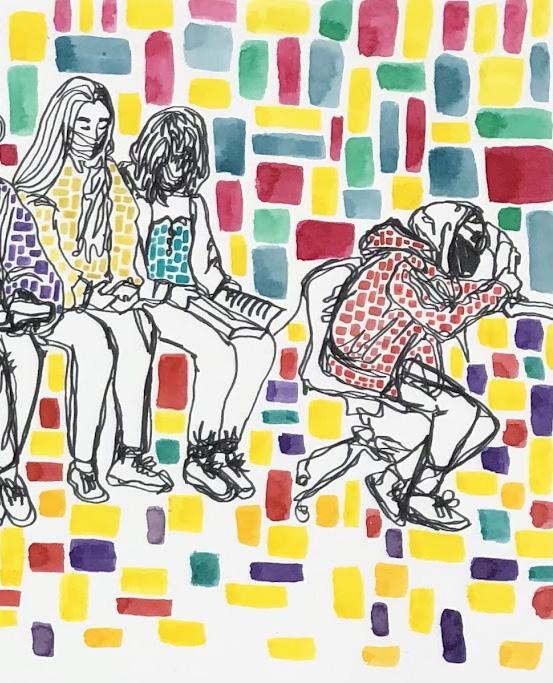
When we were six, your brothers were born. You slept at my house for three days while your parents were at the hospital. Neither of us really understood what was happening, but we had fun. We spent our days chowing down on mini cupcakes from Acme, binging Scooby Doo, and building tracks for Thomas the Train. I remember wishing I was your sister.
When we were seven, you moved to the next state over. I didn’t cry. I loved you and your family, but I guess I didn’t understand the concept of distance. We talked over the phone all the time, and we’d visit on New Year. We’d chug sparkling apple cider and plot to stay up all night, and it was like no time had passed; we were that close. You and your brothers never made it to midnight, but I did. Every year, I watched the ball drop with our parents.
When we were nine, I learned the meaning of distance. You’d talk about the friends you met in school and your new favorite band, and I was on the outside. Our New Year parties became less frequent, and our phone calls trickled out. I didn’t know your life anymore, and you didn’t know mine. We still wreaked havoc on our parents and laughed over burnt marshmallows, but for the first time, I felt distance.
When I visited you last year, I knew I’d lost you. Our lives got crazy, and our families lost touch. We went years without seeing each other. I was excited to see you, I loved to see the amazing person you’ve become, but I almost didn’t recognize you. Your voice was deeper, you were a foot taller, and you were different. Right before we left, I saw a glimpse of my childhood best friend. You were bickering over something with your brother, and I saw you. I saw the boy who I had water balloon fights with in the summer, the one who I camped with in my backyard, the one I could never say yes to. I saw who you were then and who you were now. I saw you and now I know we could never truly leave each other.
Through the woods, I scour For shelter in the house of Mother, To be met with a black sea of ash.
I watch fire: the green’s lover, As its hoarse breath billows Near the horizon’s cover Of light, Frozen in day by the flames.
There is no end to the evening of smolder. Determined to shake the sky, And earn a sum of Mother’s tears and thunder. Her howls sweep the remnants Of her gift, Easy to blunder.
What season is it?
The dry and cold breeze on raw skin Bringing the sense of winter Bright orange and yellow leaves Falling on empty sidewalks Bringing the sense of fall Cold enough for hibernation But not bare enough for winter The “in between.”

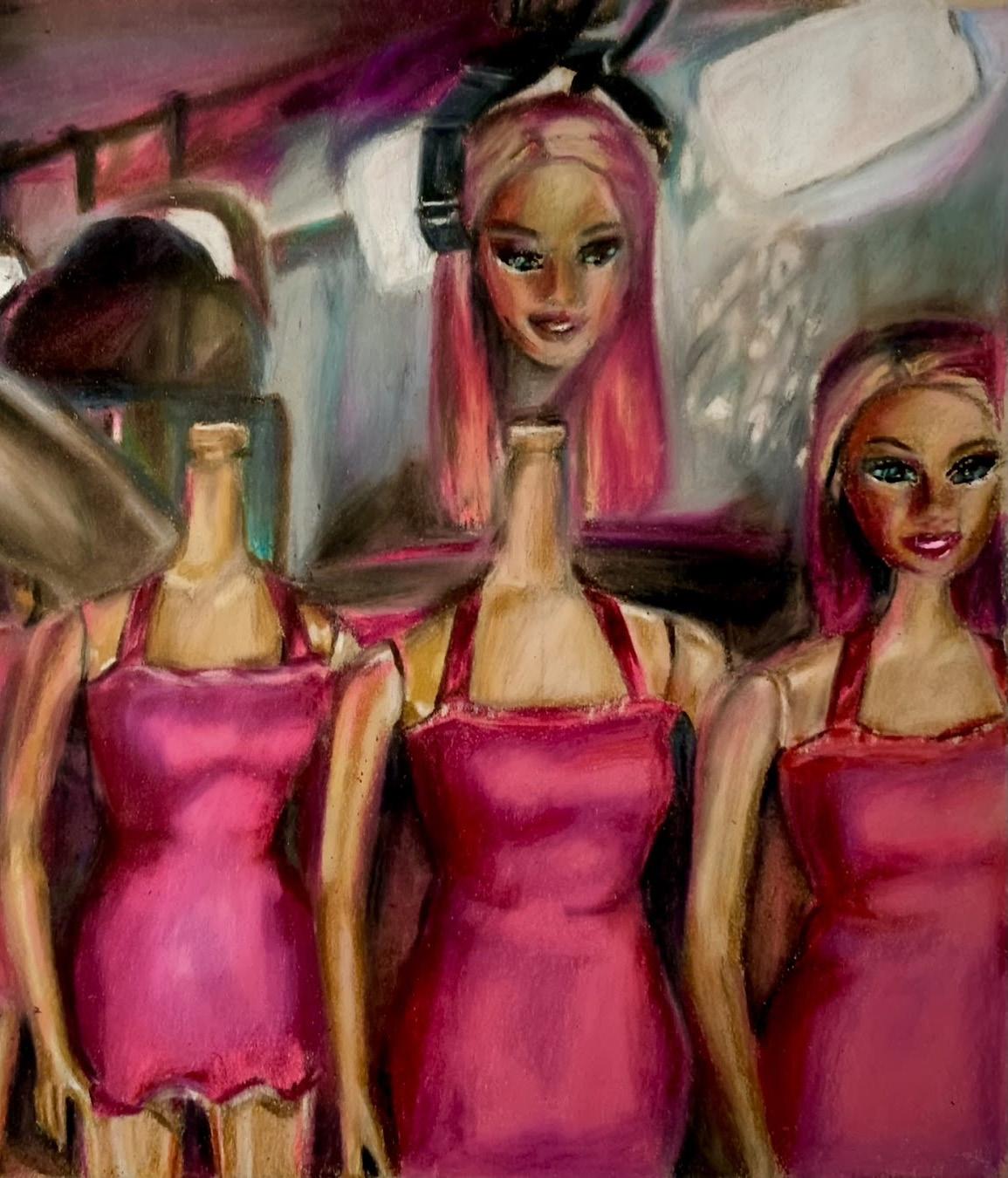
Allison let go and pulled out a small pin from the inside lining of her dress. My eyes widened in surprise. “You got one?”
She wiped hers, smearing the makeup even more. “You ready to leave?”
She looked like a broken doll, dressed in that big frilly dress, with her stockings ripped down the sides, curled hair coming undone, and makeup completely ruined. The dress was blue, a color that she used to love, but now absolutely hated. She kinda reminded me of Alice in Wonderland, actually. Except Allison had brown hair, not blonde, and we weren’t in Wonderland at all.
I stood up as the door was locked behind her, waiting for her to say something funny like she usually did about her time with the Man Upstairs. About how she purposely overcooked His food or used oil to wash His floors. But she just looked at me and smiled and pulled me into a tight hug. “I’m okay.” She paused and then added, “I’d do it again in a heartbeat.”
This must be what it’s like to have an older sister.
Allison was really good at picking locks. She once told me that she picked it up from her roommate back at boarding school and used to sneak into the other girls’ rooms to steal their stuff. Then she said that we were kind of like roommates... but she doesn’t tell those types of stories anymore.
Allison eventually got the lock to click. We both froze as the door swung open with a loud creak. When He didn’t come down, we decided it was safe to continue. She led the way as we crept up the stairs, gesturing for me to follow her onto the main floor.
Everything was quiet. Too quiet. I’d rarely been outside our room in the basement, (Allison always volunteered to go whenever He came to take one of us) but in my mind, I’d envisioned us to be in some sort of mansion, with big spiraling staircases and old fancy wallpaper. We were probably in the middle of the countryside, up on a big hill, or in the middle of the woods. Why else had no one found us?
It was at the top of the stairs that I realized: no, we weren’t in the middle of nowhere. We were in the suburbs. You could tell by the house. It felt claustrophobic, with narrow corridors every which way, and furniture lining the hallways which gave you even less room to move. The lights were all off; I could barely make out anything around me.
I glanced back at the basement, a queasy feeling rising in my stomach. Maybe we shouldn’t have left our cell.
“Maggie! C’mon!” Allison hissed at me, already halfway down the hall. I quickly followed.
…
There was one problem with our escape plan: we had to go through the kitchen. Going through the kitchen was problematic because it was almost pitch black in the room. And Allison said that the dishes and stuff had been left out on the table and countertops, so if either of us ran into one… well, we’d never see our families again. Ever.
Allison made her way across the floor, sidestepping each table and chair with ease. I went to follow when she whispered: “I’m getting the keys to the front door. Keep watch.”
She disappeared from my line of sight, stepping into the closet to find them. I watched her rummage through, cringing any time she made even the smallest sound.
She’d just gotten out the keys and shut the door when we heard a small set of footsteps approach us from behind. Turning almost immediately, we watched the figure of a young woman step into view. She was dressed like the two of us – a semi-poofy dress and
what looked to be stockings and a head full of loose, brown curls. The woman held up her phone flashlight, a concerned expression on her face.
I let out a sigh of relief as a wave of happiness rushed over me, the first one in a long time. “Please help us.” I let my voice carry a bit to reach her. She didn’t respond, so I stepped closer and tried again. “It’s okay – Allison and I –we’re trapped too.”
The woman inched forward, moving her phone to get a better look at us. Allison backed away, taking in a shaky breath. “Maggie, listen to me…”
I turned to face her, confused by her fear. “…she’s not here to help us.”
I felt the hairs on the back of my neck stand up as the phone flashlight illuminated a shiny, circular, object on the woman’s finger. Another set of footsteps echoed behind us.
The Man Upstairs… He had a Wife. “Maggie, take the keys -”
The next thing I knew, Allison was shoving the keys in my hand and then the Man Upstairs and His Wife were there and Allison was throwing pots and pans while I ran to the door and she was screaming for me to “Open it!” but I couldn’t because it was stuck and I was frozen like the night He first brought me here and then I finally got it but when I opened the door and turned back to get Allison she was being dragged back across the floor by her feet and His Wife was shouting “Get the other one! Get the other one!” and Allison was screaming at me “Run, Maggie, run!” so I stumbled my way back against the screen door out into the cold and the Man Upstairs was chasing me and Allison was still screaming because she was being dragged back down to the basement, but I couldn’t go back and help her because they were going to catch me if I didn’t run and so I ran and I ran and I ran and I ran and I ran and I ran and I ran and I ran
“Why else had no one found us?”
DANA, 26, enters in a rush, hair disheveled but wearing a perfectly tidy black and white formal server uniform. She’s rummaging through her purse as she is reaching to push a button. Faint, upbeat music is playing in the background
I was working. Another pause.
But it’s New Year’s Eve.
DANA Yeah?
Hold the door!
DANA’s head snaps up and she reaches forward to keep the door from closing. Enter JORDAN, 25, who is draping his maroon suit jacket over his shoulder with one hand and holding a glass of champagne in the other. A black tie is hanging loosely around his neck and his collar isn’t buttoned up all the way. He presses a button to go up. The elevator doors close, the music is completely muffled, but JORDAN is humming more of the song from where it stopped. DANA quickly undoes her disheveled bun and puts her hair into a ponytail.
Some party, huh?
JORDAN glances at DANA. DANA is looking straight ahead, both of her hands holding her purse straps, wiggling her fingers. We see her memory of the party, people sloshing drinks and talking loudly. DANA, wearing an apron, gets pushed and bumped into, is picking up broken glass, and having a series of empty or half-empty glasses shoved into her chest. Back to the elevator, DANA grimaces.
(Disdainfully)
Yeah. Some party.
Hey, what’s with the get up? DANA looks at him like he’s an idiot. She glances at the number of the floor level with a bit of anxiety, and then continues looking forward. A pause.
JORDAN
Who works on a holiday?
DANA
Lots of people. Did you think your food and drinks appeared out of thin air?
JORDAN doesn’t respond, instead shrugs and takes a sip of his drink. DANA glances at the floor levels and realizes it’s going up instead of down. She forgot to push the ground level button before holding the door for JORDAN. She huffs, and the elevator shudders to a stop. DANA sucks in a breath.
DANA
(Hesitantly) Why did we stop? WhaThe lights in the elevator turn off, leaving the room pitch black. We hear shuffling and JORDAN groans.
JORDAN
(Mildly inconvenienced)
Goddammit! I had plans for the countdown. Bummer. More shuffling. JORDAN turns on the flashlight for his phone. DANA is frozen in the corner, looking pale and gripping the bars on the walls of the elevator.
JORDAN (CONT’D)
Hey, are you good?
DANA shakes her head quickly, eyes darting around the room like she’s watching the walls close in on the two of them.
JORDAN (CONT’D)
Can you not talk or something? Hey, lady! He waves a hand in front of her face.
JORDAN (CONT’D)
Uh, jeez. Um.
JORDAN hesitantly touches her shoulder.
JORDAN (CONT’D)
It’s okay, you just gotta breathe. In, 2, 3, 4, hold, 2, 3, 4, out, 2, 3, 4...
JORDAN continues counting and DANA shakily starts to breathe slower. She finally looks at him and seems mildly embarrassed.
Um. Thank you, uh…
JORDAN Jordan.
DANA Jordan. Thanks. Uh, where’d you learn box breathing?
My personal trainer taught me. You okay?
DANA
I’m fine! I’m just, uh... She takes a shuddery breath and laughs nervously.
DANA (CONT’D)
VERY claustrophobic. I would usually take the stairs, but I just really wanted to get out of here and get home. So, I wouldn’t say I’m great.
Oh. So, do we like, call 911 or something? We should get you out, right?
There should be a button to notify the building personnel on the panel. JORDAN swings his phone’s flashlight toward the panel and moves toward it.
Uhh...
DANA
That yellow button, with the bell, there. DANA points. JORDAN makes a noise of acknowledgement and presses the button.
JORDAN
So, now we wait?
DANA
Yep. I guess if we don’t get help pretty soon, we could call 911. I’m not really sure how long it takes for someone to respond to those alerts.
DANA (Embarrassed)
Dana. And uh, just make sure I keep breathing, I guess. Heh.
JORDAN
Sure.
On JORDAN’s phone, the time turns to 12:00.
JORDAN
Hey, it’s midnight! Happy New Year, Dana.
DANA
Yeah, happy New Year... Hey, I know it’s tradition or whatever, but don’t try to kiss me or something.
JORDAN (Surprised)
Ha! Uh, yeah, no problem. Not my style to just go around kissing strangers.
DANA looks relieved. A pause.
DANA
Didn’t you say you had plans for the countdown? Do you wanna let them know what happened?
JORDAN
Ah, yeah, I should. Do you need to call someone too?
DANA
Nah, I’m alone for New Years. Even if I wanted to, my phone’s dead. My sister might try to call me and freak when I don’t answer, but I can deal with that later. JORDAN laughs. He then pulls out his phone, pulls up his contacts, and dials a number.
JORDAN’S FRIEND (O.S.) (Muffled)
Hey man, where are you? We’ve been looking for you!
JORDAN
I kinda got stuck in a situation. And by situation, I mean elevator.
FADE OUT.
INT. KATIE’S BEDROOM – DUSK
KATIE, 23, sits on her bed, sheets in disarray, pillows on the floor, papers and textbooks laid out around her. Her roommate, JASMINE, 23, slams the door open, strides over to the bed, and throws an article of clothing onto it.
Put that on.
KATIE Why?
JASMINE
We’re going out. KATIE picks up the clothing. It’s a long-sleeved but fairly short velvet dress.
And pray tell, where the fuck would we be going that I could wear something with this little coverage in the middle of January? This won’t even fit me.
It’s your size. It’ll fit. KATIE leans back and crosses her arms.
KATIE (Deadpan) Where are we going? JASMINE (Nonchalantly) A party.
KATIE Absolutely not. JASMINE Absolutely yes.
KATIE
I can’t. I have homework. Currently. I’m working on it. You threw what I can only assume is lingerie onto it.
It’s not lingerie. Also, bullshit, you and I both know that this isn’t due for weeks and you’re just working ahead like you always do.
KATIE
Well, either way, I’m not going.
JASMINE You have to.
KATIE barks out a laugh. KATIE (Amused) No, actually, I don’t.
I didn’t want to have to do this, but... I’m calling in my favor.
KATIE’s face drops.
KATIE What?
JASMINE
When Daria forced you to go out drinking with her two months agoKATIE No.
JASMINE (CONT’D) And you came back totally wasted and ruined our bathroomKATIE (whining) Jasmine...
JASMINE (CONT’D) I was the one who had to clean it up, and you said, and I quoteKATIE (Drawn out, breaks like a sob, but not crying, dramatic) Please...!

JASMINE
(Mockingly)
‘Jasmine, I’m so sorry! You’re the best! I owe you! Whatever you want, I’ll do it!’
KATIE
I don’t sound like that.
JASMINE You absolutely do.
KATIE
(Whining)
I meant like, doing a really awful chore or going to your classes to take notes for you! Don’t you wanna save this for something important?
What’s important to me, right now, is you going to this party with me.
KATIE whines.
JASMINE (Warningly) Katie... KATIE whines again.
You have to! KATIE GROANS
JASMINE You owe me!
KATIE
(Begrudgingly, first part drawn out) ...Fine... But I’m not wearing that dress.
JASMINE pouts.
JASMINE
But it’d look so good on you!
KATIE (stern) NO.
JASMINE rolls her eyes, then shrugs and bounces over to KATIE’s closet.
Fine, works for me! But I still have a say in what you wear so it isn’t just a hoodie and a pair of sweatpants. KATIE groans again. FADE OUT.
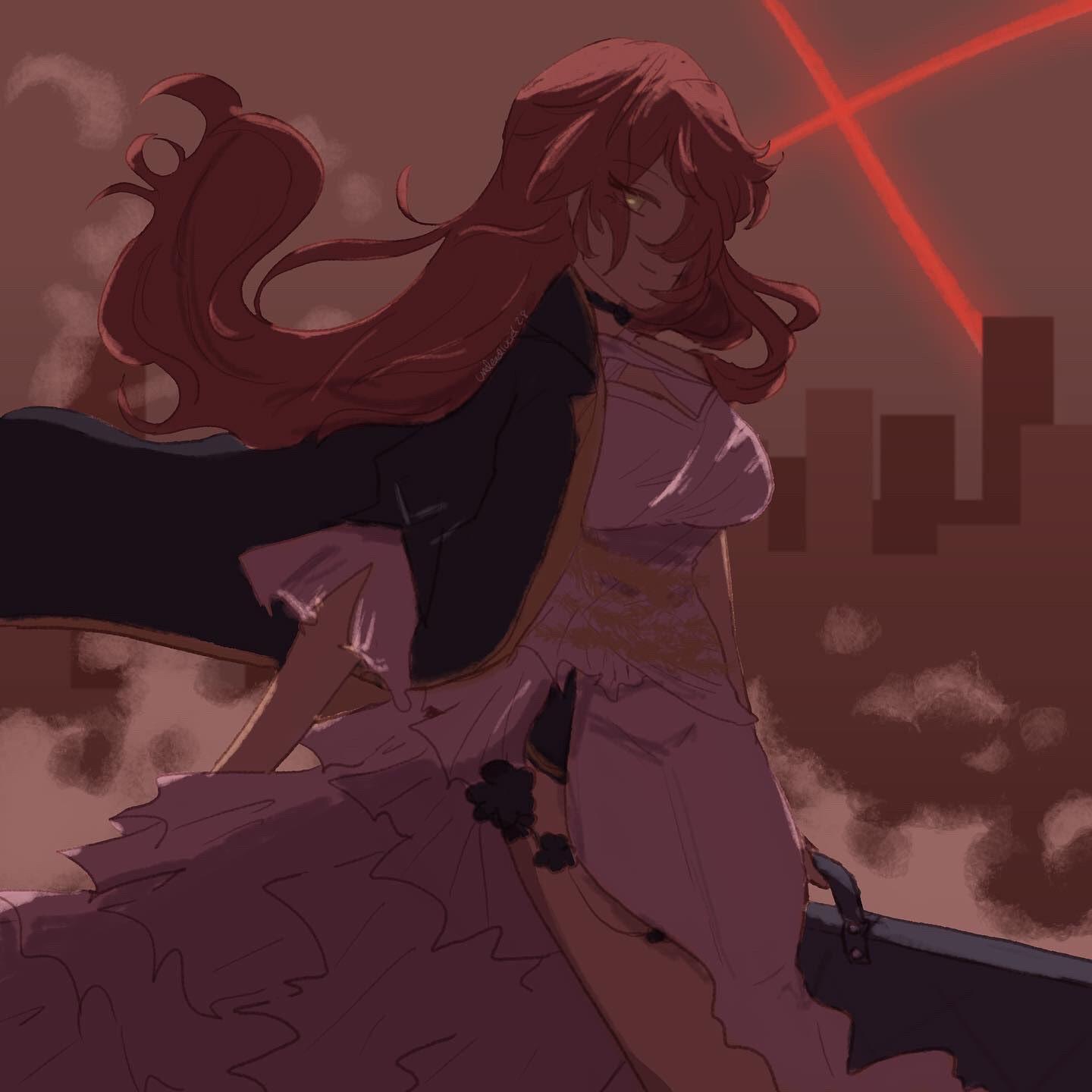

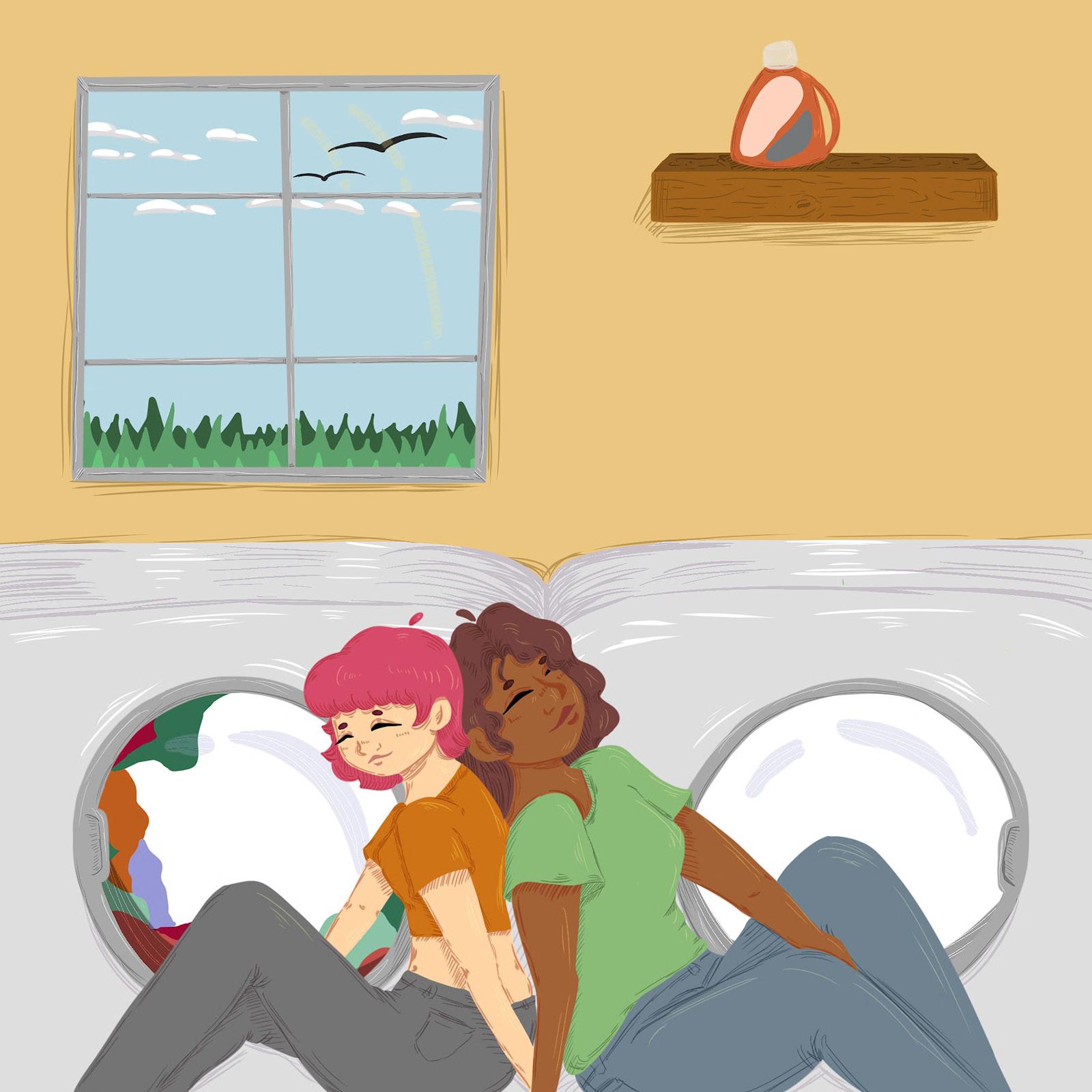
I vomit all of myself when speaking to you. I say Look, here is me. You can know me and my biggest mistakes, me and all my feelings and words and what movies I like and where I came from so that I can rest assured I did all I could to say Look! I want to be known. I search for the understanding I long to see in your eyes. I wonder if you’ll let me be known to you and let you be known to me. Change as you change, laugh as you laugh, hurt as you hurt.
Love, I think, is about being known.
Today, you were holding your stomach in pain, and it made me feel something sharp sink into my lungs. I took out thyme and boiled the fragrant leaves in water. It’s all I could think of. You’ll find it bitter, I said, I know, but still, give it a try, it’ll make you feel better. The sickness was also heavy within me, so I couldn’t help but get angry when you said you’ve been feeling sick for a few days and never took any medicine. As if I was the one left hurting. I wonder if you could see it on my face, but I realized it for the first time at that moment. I know the way you get when you are sick. I know you, I know you. It’s no mistake that I’m here next to you. No misunderstanding in the way I’m holding your hand. You are known to me, with all the parts you despise about yourself, and I still hurt for you more than I hurt for myself. Love, I think, is about knowing.
Tad McPherson awoke one perfect August morning to his 4:00 alarm and wiped the sleep from his piercing blue eyes. He stretched not to wake his pathetic wife, Shannon, from her “beauty sleep”. She could certainly use as much of that as she could. The only reason they didn’t get a divorce was because of her status in the community. Shannon was a socialite and icon in the northeastern Connecticut stratosphere, and when they got married 18 years ago, he really did love her. That had changed with the birth of their children. She didn’t lose the baby weight for seven whole months. He had been ashamed to be seen with her during those wretched few months after Tad Jr. was born. She gave the pitiful excuse about having to care for the newborn, which he had scoffed at. He hadn’t gained any weight through the pregnancy, so why did she?
He slipped on a silk bathrobe and confidently strode down the spiral staircase in the center of his home. He drank his coffee (made only from the finest imported Arabian coffee beans and brewed in his $3000 French roaster machine) sitting in the kitchen only ever used by the house’s private chef and housekeeper, Fernanda. After his coffee, he strolled outside to the 20,000-foot pool smack dab in the middle of the Wurthering Hills gated community. As he swiped his proof of residence card, the black iron gate opened with a creek, revealing the 18-lane clear blue
masterpiece originally constructed for the 1978 Olympic trials. He shed his robe with a smile, and he envied Mrs. McAllister on her early morning power walk who had a perfect view of his perfect side profile. He dove into the pool with an obnoxious splash, water coating his impressively defined back. He glided through the water like a smooth bottle-neck dolphin, and his muscular arms propelled his body through the enormous pool. After an hour of swimming laps, the sun began to rise. He toweled off his perfect physique and smirkingly walked home, with a jaunt in his step. One cold shower, family breakfast, and 20-minute drive later, he arrived at his perfect job at Stillwater Financial Strategies Inc. He greeted Laura, his private secretary, with a wink, knowing no one else suspected their affair. She had signed an NDA of course, as he couldn’t have any scandals or lawsuits affect him and his family’s well-earned status in the institution of Darien, Connecticut. His father had lived there, had bought Tad into Yale, and had scored him his job at Stillwater. Now that his father was dead, Tad was left to fend for himself. His bastard brother was no help of course.
When Tad was born, his father had decided that he was not cut out to be christened Charles Patrick McPherson II. Charles Patrick McPherson Sr. instead decided that Tad was a better fit for his first born, and that the honor was to be bestowed on his younger son. Tad’s brother Charles Patrick Jr., known as CP, or as Tad affectionately called him, Crappy, had been given Charles Patrick Senior’s job as president. Though he refused to admit it, Tad envied his little brother. Whatever. Tad was still richer than him anyway.
Two business meetings and one round of golf later, it was time to go home to his wretched whore of a wife. He suspected she had been having an affair. That skank would open her legs to anyone who gave her the chance to. He sped home in his brand-new Tesla and greeted his whore wife and children, who stopped their various hobbies to acknowledge their father. His son, Tad Jr., was busy playing polo and his daughter, Kaelynn, was riding her horse Guinevere. At 5:00 sharp, the family departed from their 10,000 square foot home to their favorite French restaurant, just as Tad had instructed them to. Tad and his family ate dinner at Chez La Maison overlooking the Long Island Sound. At sunset, Tad took his sailboat out onto the Sound for a private ride. He decided he needed some alone time. His wife had been talking his ear off at dinner, which made him want to plunge the steak knife accompanying his 20 oz. ribeye right into his chest. That, of course, would ruin his new Ralph Lauren button down, so he had decided against it. As he took in the quiet ripples of the bay, he reflected on his life. A job he was too good for, a wife he was better than, a brother he was richer than. He concluded that he really was too good for Darien. No. He was perfect. All this perfection was tiring. He needed a vacation. He would fly out in the private jet, alone, to Vegas tomorrow.
Some days I hate my hair. It used to be longer, too long. You would think that cutting off a foot would make people notice, but it was past my waist before, and I suppose it isn’t hard to lose track. I sure did.
It’s very difficult to look in the mirror and feel ok. At least, for me it is. Unsurprisingly, it’s even more difficult when you don’t recognize yourself in the mirror half the time. I could go on about face shape and body-image and the weird way my mouth quirks up on one side when I smile even though I never feel lopsided, but it always comes back to the hair. The long hair. It doesn’t belong to me.
I don’t hate it either—that’s what makes it so confusing! I generally like long hair more than short hair on other people, and mine is poofy and thick and just the right amount of curly like I always wished it was when I was younger. But it doesn’t feel right. Not for me.
I look in the mirror every day and some evergrowing part of me expects a different face to look back. One with sharp cheekbones and a smaller nose and chiseled jawline and short hair and everything else they say makes you look like a guy. I never wanted to be trans. I wanted to be into things that girls were supposed to be into, to look in the mirror and not feel like shit because I don’t feel real in the body I was born in.
But I can’t. Not yet, anyways. So, throughout the years, I have become very good at pretending. Some things are easier than others. Collared shirts and ties; oversized hoodies and sports-bras? Easily explained away by whispers of high necklines, comfortability, and other shyness. I have no reason to fear someone noticing, but it feels violating to have to define myself to someone else when I still don’t know what I am.
Jung Mixed Media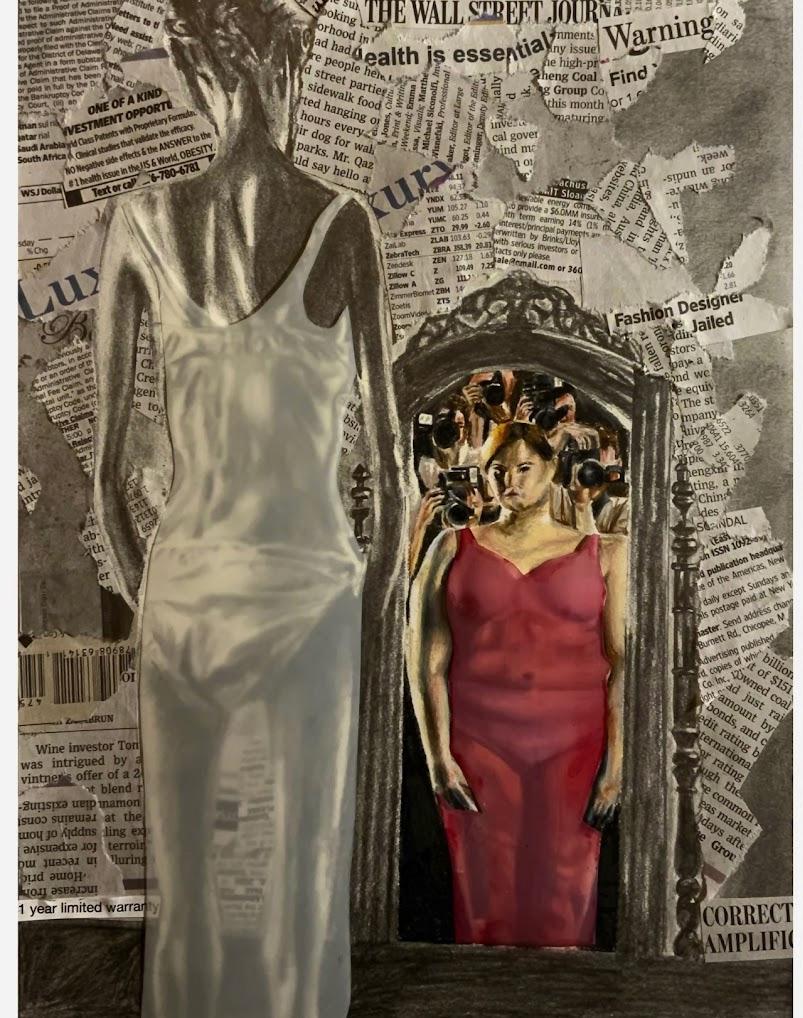 Dysmorphia
Christine
Dysmorphia
Christine
It’s the hair I find the most difficult. My mother loves my hair. My sister and hers’ were never strong enough to grow out past their lower shoulders without breaking off. She calls me a mermaid, loves braiding it into little pigtails and buns. The day I told her I wanted to cut a foot off she nodded, set up an appointment, then went to her room to cry.
It’s one of the reasons I can’t bring myself to get rid of the rest. There’s this investment in long hair. You only have so much time in this world, and I spent over ten years growing out my hair. It was three feet long. To break that kind of commitment goes directly against my nature. And what if I still don’t like it? It’s terrifying, that unknown.
But still, I look in the mirror every day and hate what I see. So, to combat such a problem, I went out and bought a bunch of beanies and hair clips. Wrapped in a ponytail, flung over my face and pinned up just so, it looks like I have short hair. Itchy, annoying, and fragile short hair, but short hair nonetheless.
The beanie gives me the ability to choose. To decide on short hair one day and still have it long the next. Sometimes, when I look in the mirror with long hair, I feel ok, but when that isn’t the case, I still have the option to change, even if it’s only just for a day. Even if I can’t bring myself to be that way permanently just yet.
I’m not sure, sometimes, if it really is all a phase; if I’m going to wake up one day twenty years from now and cry, wishing for my long hair back, for my eyes and jaw to be less sharp, my muscles less defined (if I’ve made it all the way there, to that place I want so badly to be). And yet, for the moment, I’m happy. I don’t know what I will one day regret, but for now I still light up with joy every time I look in the mirror and finally, finally recognize the person looking back at me.
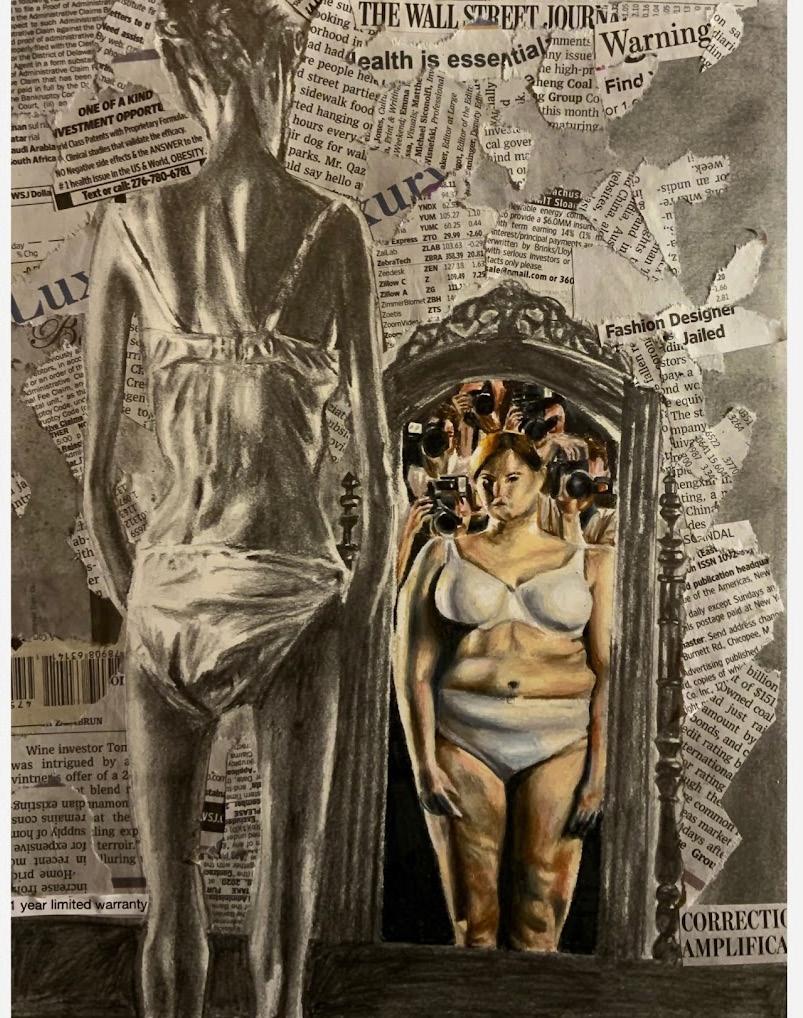

There was a ring in the teacup. She would soon be ecstatic.
She had been sitting across from the duke, fidgeting with the hem of the lace tablecloth, for only a few minutes, and in that time, she had analyzed the details of the gazebo they were resting under. The weathered pillars held up the roof with vines cascading down its sides, allowing only tiny slivers of sunlight through to shine on the bronze bistro set. The tiny pastries were stacked charmingly in the center of the table, ornamented by a doublelayered stand with gold trim. Of course, she didn’t make the sweets, he had them made in the estate. She was not expected to do anything, besides be present and proper. Any lady would be dazzled by the rich splendor, but she knew this was not by his effort, only his orders. By now, she knew better.

She took her mother’s lessons of courting to heart, knowing she would never have wanted her teachings to be used like this. She was trained to be a lady of the court, shielding herself with a fan until she would need to hide behind the shoulder of her husband. Now, she was wasting the early courting season on a married man, though he was a duke, and a very wealthy one at that. Any woman would be dazzled.
Between her giggles of feigned amusement, she lifted her teacup from its saucer and placed it to her tightly sealed lips. It rested there, as her anticipation grew when the duke took his first sip of his own tea. His gaze soon contorted from pleasant to puzzled as he peered down at the teacup. Using the silver teaspoon from beside his plate on the table, he drew out something from inside the cup. It was a ring with a gorgeous diamond attached to it. In accessory to the marvelous jewelry was a dainty severed finger, the finger of his duchess.
The cup slipped from his hand, porcelain shards cascading the tile floor. She didn’t notice the light glimmering on the fragments; her eyes were fixated on the duke’s bewildered face. The still smiling lady in front of him leaned forward and presented her left hand expectantly.
She is sweet like blood, like a dagger dusted in sugar.
She is your belladonna, your light and your dark.
When you look into her eyes, she lures you into another dimension, a euphoric fantasy where cloud nine is within arm’s reach. So alluring is she, when her dulcet voice tapers into nothing; It leaves you yearning so much that it hurts. When you are with her, whispers dribble from her purple-petal lips and fill your mind with cotton candy. She feeds you delicious words of nectar that taste so sweet they give you toothaches.
“I can make you beautiful.”
She had first come to you as a weed on the side of a footpath. It wasn’t long, though, before she engulfed your world, pulling the blinding day like a curtain over gray skies.
When you are without her, you are a husk of a being—you become a trembling, convulsing, whimpering wraith that writhes when light seizes the swollen pupils of its frantic eyes. But when she is with you, you tremble just the same.
“She made me beautiful,” you tell yourself. “I don’t want to go anywhere without her,” you think to yourself as the world turns to smudges on a painter’s canvas.
“She can’t hurt me.”
But, oh, you could not have been more wrong.
Her kiss is granted like a gift, but the pain it inflicts turns it into a curse.
With the promise of beauty, she brings the promise of agony.
Bewitched, you fail to see that she is but an angel of death. While you are still under her spell, her lips meet yours for the last time, stealing your last breath. Night finally falls, and she sets off in search of another worshiper to enrapture.
Only in death do you discover the truth.
She was the fleet-footed harbinger of death, the emissary of Thanatos, a seductress draped in purple silk and decorated with fatal desires.
She was your belladonna, thief of a thousand souls.


you remember that one time when ava fell off the swings and cut her knee?
how everyone laughed at her for her childish hubris in thinking she could jump and land, unscathed, from that high a distance? how the laughter roared as they watched a 9-year-old cry and clutch her knee with both hands, creating a burrow for blood under her nails? how, without a moment of hesitation, you ran to her, helped her up, and walked her to the nurse’s office?
yeah. didn’t think you’d remember it, if i’m being totally honest. well, that moment, watching you put her arm around your shoulder for balance, so she could hop her way down a flight and half of stairs for a single band-aid, i think I fell in love with you. maybe love is an exaggeration, but looking at these old photos of us, with your hair flying in the wind and my hair tucked in your helmet as i clutched your waist for dear life, the two of us, flying down the freeway on your motorcycle, i can’t think of a better word to describe my feelings for you.
these pictures, now covered in layers of dust, remind me of everything that could have been. of everything that will never be. i lost you so many addictions ago, i guess i should’ve known when your words turned to lies, and your lies turned to routine, but i didn’t want to believe that the girl with the bright pink hair and tacky leather jackets, the girl that i had fallen so hard for, was now gone. that she had been replaced with someone who simply went through the motions every day, no longer able to feel anything for anyone, someone who looked in the mirror, wishing that the reflection would be blank.
the doctors say that your liver gave out, but i think that the real cause was that you gave up. i saw how hard you fought, how you ran away from who you’d become, leaving us behind in a race to find yourself. you were gone long before the red line flattened. you’ve been gone so long that i’ve had to rely on these pictures to make sure that you were ever real. you’ve become nothing but a memory, a hope, a wish for better, a tragic story that i wish i never was a part of.
i miss you, more than you could ever know, more than i can ever process. i miss you because no matter what happened, no matter where you went, no matter how long you’ve been gone, i still love you.
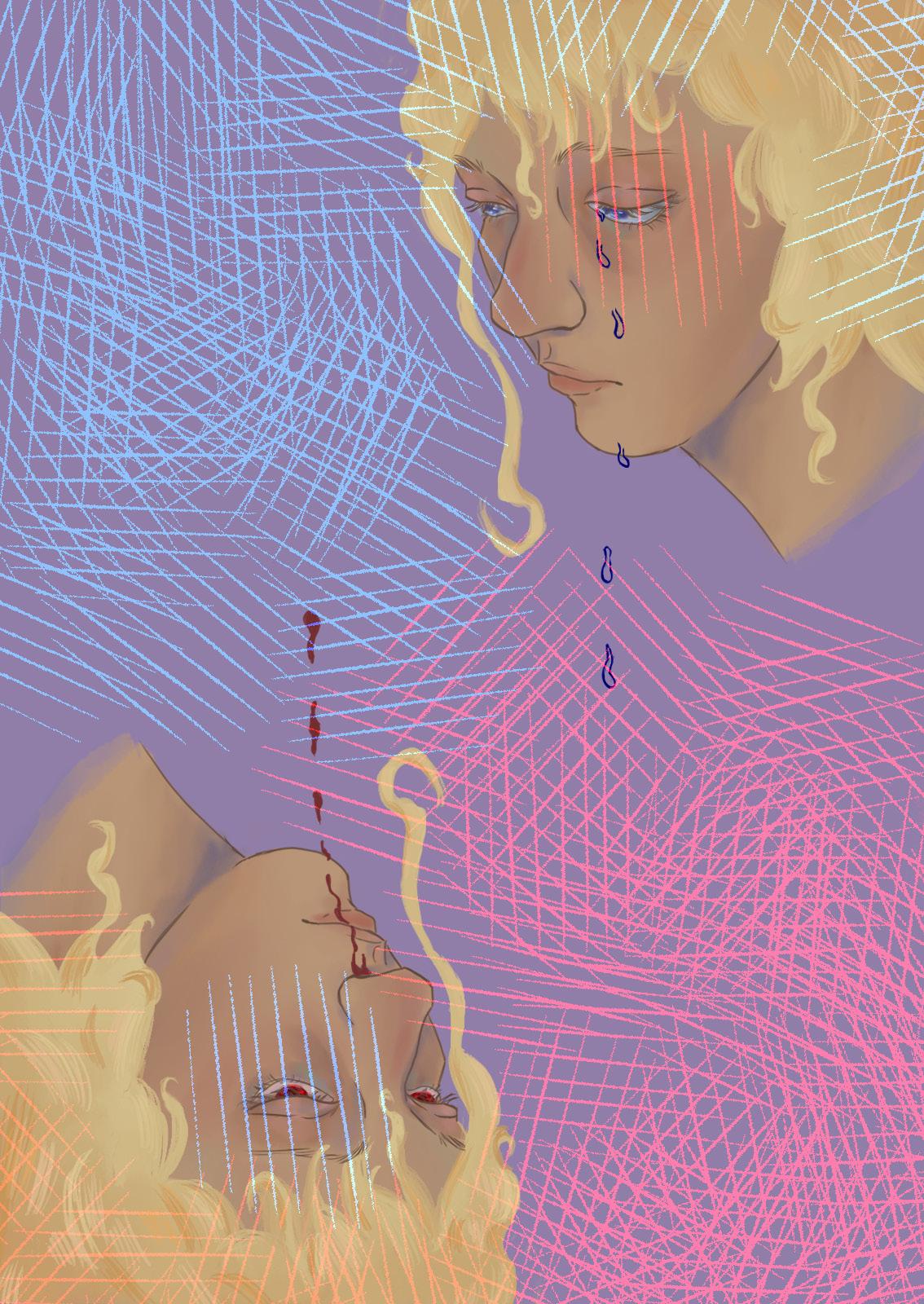
father, farther cygnus is around with all its glory and diamonds on its beak mother, brother cygnus comes to sing i fear his voice is one of angels suppressed by the darkness in the air
sister, further cygnus sings so well a sweet melody coats his lips honey slathered on his tongue cygnus, cygnus why have you left me so deprived of your nectar where far is your cross when the tune of the swan hits the sky cygnus is no longer around
once again, i slipped allowed your flowery words to blossom until my heart became a meadow of thoughts you conjured until any tendril of doubt any thorn of unrequited love was masked in petals and pink hidden and incomparable to the rows and rows of every reason why you were the one
but, darling, we live in a day and age where plants are more than flowers where exotic trees and poisonous mushrooms are discovered every day and I was forced to accept that the classic roses in my heart will not grow in your rainforest too in need of sunlight to appreciate your constant water flow that we belong in two different worlds as long as you are a tropical fern and i, a simple garden plant
as i’m forced to uproot every seedling the thorns scrape at my skin a carefully laid foundation that still amounted to nothing but inevitable heartbreak
and as i find the pulpy remains of my love drenched in torrential sorrow the soft petals flooded with tears i give a pained smile for isn’t it the most pitiful thing for a pretty flower to die without ever being picked?
Author’s Note: This poem is a play on the nursery rhyme, Roses are Red. I thought the youthful and simplistic nature of it made sense with the naivety of high school. The entire process is how sometimes people fall to easily in love and are stuck in an endless cycle of finding love, it not being reciprocated, and the person falling for another the instant they stop liking the first.
soon enough a bud cracks through damp skin swift like a clean stab to the heart but slow enough to ache as fresh metal pulsates in my veins only this time it is a cold, pale blue so delicate, the slightest deviation in shape gives the impression of purple i’ve always seen it as a color opposite of love so calm and quiet and mysterious compared to the burning embers of romance but i greet it with expansive vulnerability for young meadows with soft soil are the perfect home for violets
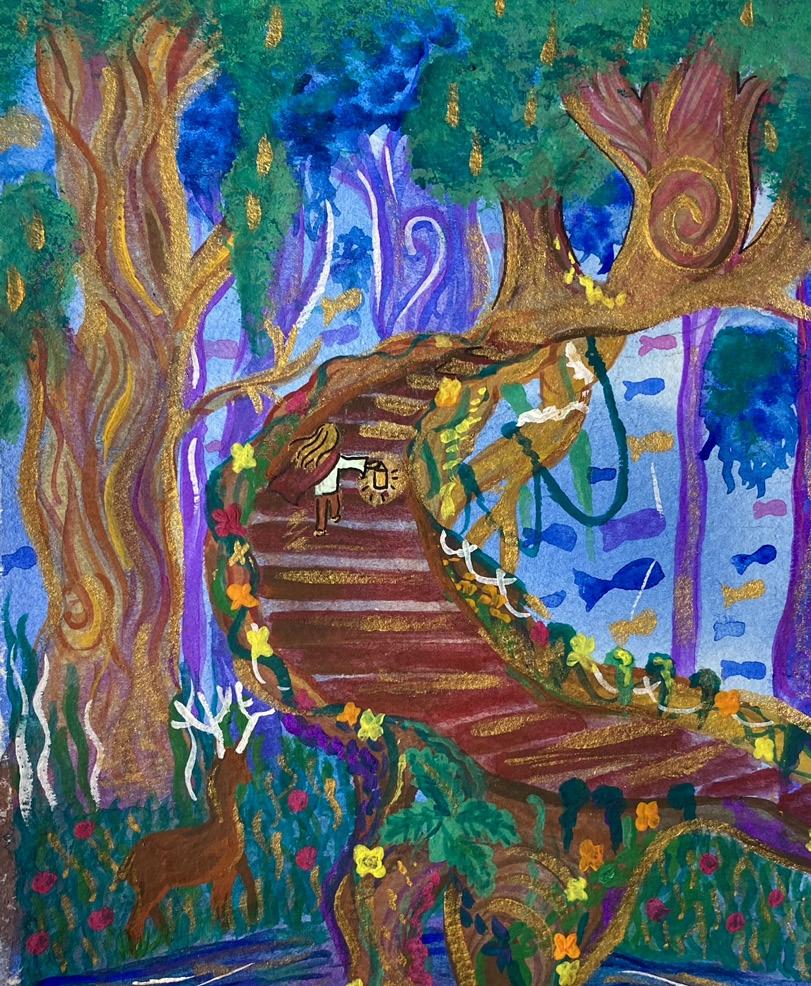



The wraith sat on the top of the telephone pole, hands gripping the splintered wooden edge of the circle, legs dangling dangerously close to the wires. He’d appeared there on the twilit lane and remained, motionless, into the darkness.

The wind howled towards him, making the leaves rustle, making his insubstantial hair flutter. He was staring at where the sunlight had vanished, favoring the darkness. The lights from the houses had ceased, and even the streetlamps had flickered out. The stars seemed to be hiding from him, clustering behind the chunky gray clouds, and the moon had given a halfhearted rise before settling back below the horizon.
Blood was dripping from his fingers. It had traced lacy patterns on the back of his hands. It was smeared on his forearms, soaking his shoulders and shirt, collecting in a puddle on his stomach in his hunched position. It ran into the telephone pole, dying the wood a burnt crimson.
His eyes were dull as the sky around him, and his person was as hazy as the fog rising in the streets below.
He waited.
The blood sank deeper into the pole.
When I was ten years old, my sister told me there’s nothing we can truly touch. In her unwavering voice that long convinced me she could unlock every door, she said this:
Force stands between everything; similar particles repel each other. You’ve never touched another person before, and you never will.
I didn’t want to believe her. I believed everything she told me- I even modeled myself to be her clone-yet I couldn’t grasp her words. I took two fingers and pressed them together until my skin turned white around the edges. My joints strained and the tips of my fingers stung; I didn’t understand. If I couldn’t touch, how could I feel? I longed to ask her, yearned for her to explain, but she turned her back and walked away before I could open my mouth.
I felt lonely for a while after that. I walked the night knowing I was isolated. I was one lone star floating so far away that only my faint glow was visible to neighboring galaxies. With every person I met, stranger and friend, I felt distance. I longed to reach out, to touch, to feel, but I couldn’t. I knew it wasn’t real. Maybe I wasn’t real.
I remained stagnant in my own slice of sky until I met you. You made me real. You made me forget her words. You made me believe that I could reach you; I could feel you in every inhale I took and every fall of my chest. Maybe we defied the rules of science. Afterall, we were not alike; I was your opposite, and you were mine. We worked because we were different. I loved you enough to leave the distance behind.
When you orbited past me, you broke my heart. You stole the air from my lungs, I couldn’t breathe. Yet somehow you didn’t abandon me. You must have left some part of you behind, because even now I can feel you. I can hear the words you whispered in my ears at night and the warmth from the embrace you greeted me with each morning. I remember the world you showed me. What you taught me saves my life every single day: We touch with love.
Patterns of circles and clusters of holes Dimpled coral and sponges take their toll Causing me panic no one can console Nature betrays me- I have no control
Blackberries, honeycomb, rice krispie treats Mind dangers disguised as innocent sweets Triggers everywhere cause me to retreat I wish I could live my life and just eat Rows and rows of soapy bubbles appear Hundreds of iridescent hollow spheres Cannot even take a bath without fear I wish my aversion would disappear
The solution should come as no surprise To end my torment, I’ll gouge out my eyes.
Peyton Harrill CarlyEra 9, 003, 12th Thalia’s month
The auctioneer’s gavel landed with a dull clack; the room quieted. They stood and spoke, “We have one piece left, our final piece. It is no doubt the sole reason that many of you are here.” The auctioneer smiled slightly at the crowd, before gesturing to the right, to the last item to be brought out. Two people in heavy armor and masked helmets made of silvery metal brought out a long stone box and set it on the same table as the auctioneer’s gavel. One departed as quickly as they arrived out of the same door, while the other unlocked the box.
As they lifted off the lid, the smell of Alcheme filled air. Thick and sharp and entirely unique, the room collectively took a breath of the mist that was slowly dispersing through the space. The guard pulled the sword out of the box and held it up to be seen by those in the back. The blade was longer than a normal sword; longer than someone’s leg. The sword was a charcoal grey color from handle to tip, apart from the hilt, which was done in an ivory that nearly glowed. From the hilt to the tip, thin lines run horizontally, and the butt of the handle ended in two small, curved horns. The auctioneer gestured to the weapon, “This is the sword of Heimdall the Harbinger, named the Harbinger’s chain. It was famously crafted by the renowned Garret Abrams and was his last piece before his death. The blade is made of black dragon iron and the hilt is wrapped in hide from the Beast of Illos. Its alchemy is impeccable, made of 340 dragon eye crystals, all of which are a purity of proof one. It is worth a fortune in materials alone. The bidding will begin in 5 minutes, at 400 million knaa*.”
The auctioneer sat down and pretended to be busy. The only indication that this sword was truly the weapon of myth and not a reproduction, was the Alcheme in the air. It poured off the blade and filled the air, seeped in history and death. It was a tool for efficient killing, and it had fulfilled its purpose many, many times.
Five minutes later, the auctioneer stood and gaveled the audience. “The bidding will begin now.” After he spoke, the numbers rose rapidly, but the highest bidders waited. As the numbers approached 600 million, the bids slowed down, “I see 590, do I see 591, I see 595, do I hear 600?” And so on until the final bid, “I hear 630, do I hear 631, I see 631! Do I see 632… no? It’s sold to number 32 for 632 million knaa.” Someone in the front stood up and everyone looked to see who it was, when they did, no one was surprised.
The highest bidder was Copper Arhem, a world-famous collector of rare and powerful weapons and magical pieces. She is one of three collectors who have the largest collections in the world, the others being Americium Ermire, and Landon Steele. As the infamous weapon was taken away for the sale to be recorded, the other bidders filed out of the room. In the back of the bidding house, The Harbinger’s Chain was loaded into the stone box it was stored in. It was given to a powerful earth mage, and as it sank into the ground to be transported safely, Copper watched silently. A new day, a new weapon, a new addition to her armory.
*1 knaa = 50 cents
Clouds of dust hover in air shimmering with heat. Distant roars meet my ears as I crouch down at the starting line. Track – the easiest sport to watch. Fewer rules. Everything lies on the shoulders of the athletes.
My competition is a blur of tank tops. Bright shoes, prayed over at bedsides and drawn on with good luck phrases. I glance down at my own sneakers, smudged with dirt and red track residue. Two years, and they’re still putting up with daily beatings against hard pavement and uneven ground. A good luck charm in their own right. The moment before the storm, noise falls away. All but my thrumming heart, pounding through tense limbs. The whistle screeches.
I spring alive. One lap around, a quarter mile of quick breath and furious muscles. Clouds of dust sting my eyes, flashes of neon shoes peeking through. I am behind their crowns of glory, the carrier of their trains. Snapshots fly through my head. Early mornings, slapping feet and birdsong in a gray world. Late nights, shadows flitting across the warm porch light. I was part of the wind in those moments, no longer a clunky runner.
Part of the wind. My movements loosen, free of competition’s cage. Wings sprout from my back, broad and feather-light. A half-second stumble, and then I take control. Flying through dust, my feet whisper against the track’s springboard. I am a bird, singing a song of victory. I drop feathers in my wake. Flying is a simple thing. My wings carry me effortlessly over the finish line. I crash back to Earth in a blur of sweat-salted skin, battered sneakers, and a bellowing crowd. My breath is suddenly short, gasping, but a smile breaks across my face. Free as a bird, light as breeze. I don’t need wings to fly.
Ashley Vadner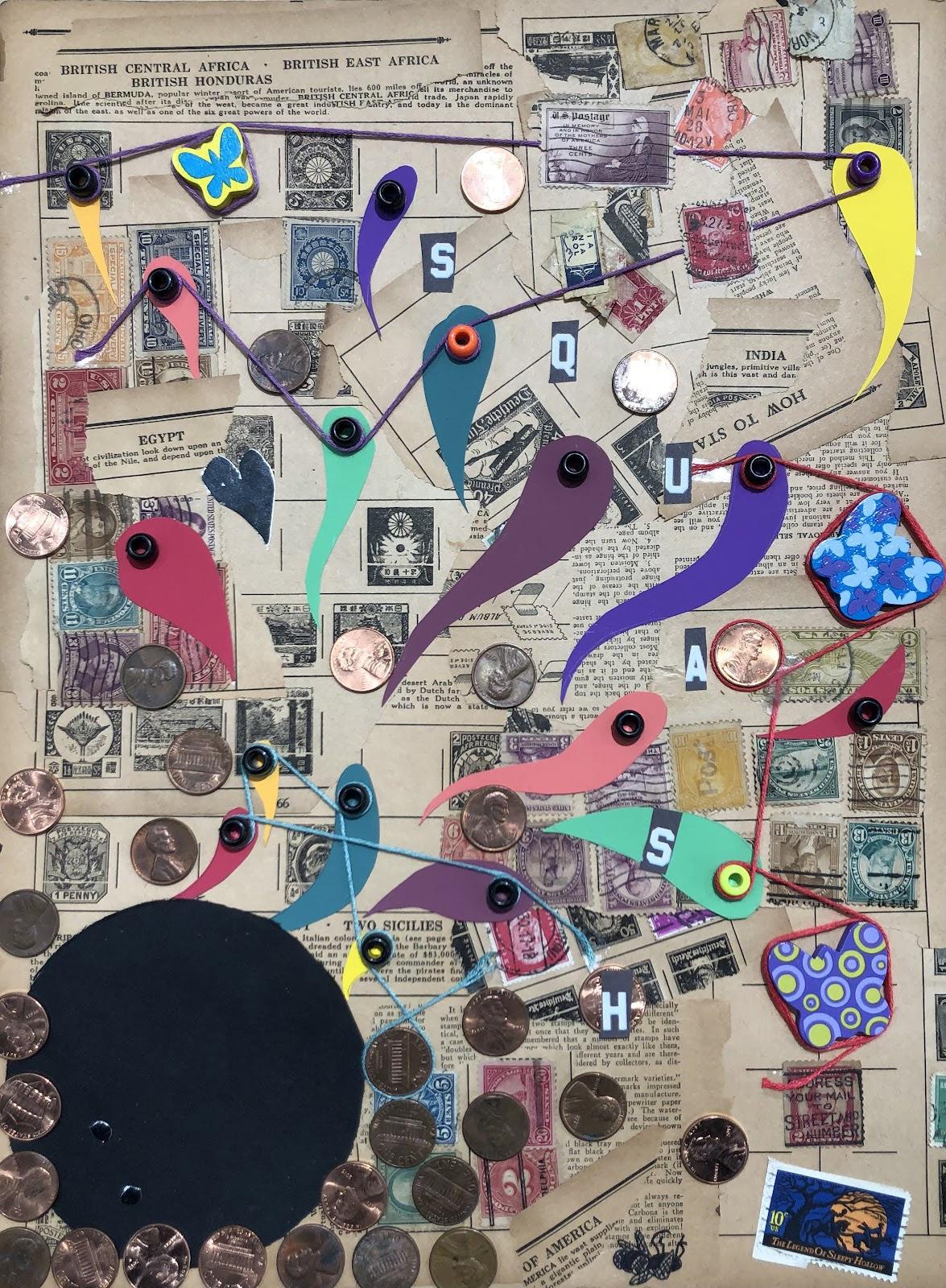 Squash
Sasha Reeder
Squash
Sasha Reeder
I slam the front door behind me, drowning my parents’ argument out. I should stay with Ash and Michael. They hate the fighting, the yelling, the stomping and slamming of doors, and suffocating tension as much as I do, but I need to be selfish and breathe just this once. I just need to breathe. I slump against the door and release all the air from my lungs until my chest hurts and even then; I don’t inhale right away. The keys dig into my palm, and I look down to see the key fob for Dad’s new car. I hate that car, the new smell of it instead of the threeweek faint scent of the air fresheners Mom liked to put in our old car. It’s spotless, missing that maroon stain from when Michael spilled his juice box seven years ago that Dad couldn’t fully wash out no matter how many times he scrubbed at it. He didn’t even try to save the dino stickers Ash insisted we put on the rear window to represent our family. He insisted that the new job required a more professional car to accompany it. It’s all about appearances, Nicole.
New car, new town, new house, new school. Same old Dad, though, and same old uncomfortable, unbearable atmosphere. I push myself off the door and walk down the front steps. God, I can even hear them yelling from outside. Good thing we don’t have neighbors close by, otherwise our family’s “appearances” would be tarnished. The road in front of me is empty and I turn back to look at the house. That awful, new brown car is sitting in the driveway with its new smell and its shiny paint job and its clean wheels, and I unlock it with the key fob in my hand. I hear the soft click of the door unlocking and I stay standing there, listening to the empty night and breathing in the cool fall air just for a moment, then I walk through the grass, onto the cracked driveway, and I climb into Dad’s dumb new car.
I turn on the ignition, put the convertible roof down, and plug my phone into the AUX. Before I ease out of the driveway, I pull up my favorite playlist, then, as I’m driving downthe road, I turn the music on and crank the sound up. Nicole, turn that racket down, you’ll blow out my speakers like that. I turn the knob so that my “racket” is playing at max volume. When I was just standing outside, it was kind of chilly, but driving the wind is cold and blowing my hair around, biting at my cheeks and fingers, and already I can’t really feel the tip of my nose. The pulsing bass of the fast-paced music moves up my legs and through my seat, vibrating through my fingers, and it makes me almost feel warm. I get to the main road, and I sink back into the seat now that there’s actually signs of civilization around me again.
Honestly, the town isn’t that bad considering everything. The new school is annoying, the new house feels too big, and we know how I feel about the car. But the town is nice, we live on the outskirts of the big city. Mom picked this place since she wasn’t allowed to decide anything else about the move, and she thought it was “quaint.” And it is, it’s on the way to the ocean so we live near a bay (which Dad hates, when we were first moving in all he could talk about for 15 minutes was the smell, and he still brings it up if we’re in the car when he passes it, always worried it’ll stink up the new car) and it’s small but not small enough that there’s nothing to do.
I see the lit-up neon sign for the gas station up ahead and pull into the parking lot. I wait until the song that’s playing finishes, the guitar riff fading out, and then I turn off the car and pull the key out. The sudden quiet is jarring, and I sit and listen to the occasional car pass and the buzzing of the lights before I get out of the car and walk into the store. The store smells like cheap hotdogs and a strong lemon-scented cleaner, and I hum the song that was last playing in the car as I walk down the aisles lit by irritatingly fluorescent lights.
I grab a chocolate bar and a big bag of sour cream and onion chips, then stand in front of the slushie machine. A young lady should watch her figure, Nicole. I grab a large cup and fill it with blue raspberry and cherry flavored slushie.
I’m about to head to check out when I hear loud talking and laughter from outside. I turn to look through the wall of windows and sharply breathe in through my nose as I take in
the sight of Sylvia Carter and her little posse opening the door to the store. I duck behind the nearby aisle, and I immediately feel stupid for hiding. Nevertheless, I edge along the shelf low enough that I won’t be seen as the chatty group makes their way to the slushie machine I had just been standing in front of. I take the long way to the register and face away from the slushie machine. If I pay quickly and get out of here, I could avoid her teasing altogether. I put my things on the counter and pull out my card, tapping on the smooth surface as the cashier does what has to be the slowest item scanning that has ever occurred in history. I wonder if he’s going for a record. Or if he’d let me do it for him.
“Is that Nicole Felton?”
“What are you guys doing right now?” I don’t look at Sylvia as I say this, and I swipe my card to pay.
“We were planning on getting a bunch of junk and loitering in the parking lot,” I hate the way she says loitering like I’m supposed to be upset about it, “why? Did you want to join us?”
I glance over to her through my lashes and see her quirked lips and eyebrows. She looks so stupidly smug and our eyes lock. Cool, calm, collected, ugh. I can do that. I tilt my head and shrug my shoulders. I don’t look away when I say, “Sure.”
Her expression opens a little more and her smile becomes less smug, but she doesn’t look any less teasing, “Really?”
“Yeah, I was planning on just driving around town for a while anyway.”
Fuck. I duck my head and see Sylvia walk toward me out of the corner of my eye. Her friends jeer and I can’t tell who it’s directed at.
“What are you doing out past bedtime, Nicky?” She places a slushie cup on the counter, and I notice she filled hers with cherry first and then blue raspberry.
“Don’t call me that.”
Sylvia Carter has been a hindrance since the first moment I met her. She was assigned to show me around the school on my first day, showed up late, and almost immediately told me I looked like a prude. She follows me around, tells me I study too much at least three times a day, pulls my hair or kicks my shoe when she thinks I’m not paying attention to her, and when I tell her off, she just laughs. She is the Moriarty to my Holmes, the Malfoy to my Potter, the Roadrunner to my Wile E. Coyote, and she’s probably the realest person I know. She’s blunt. if she says something she means it, and if she thinks you’re in the wrong, she’ll say so. I could probably use a little realness, and right now, to me, it’s a plus that Dad thinks she’s “a slobbish delinquent who shouldn’t be fraternized with.”
“You have a car?”
“Yeah? What, did you guys walk here?”
She shrugs, “we always do. But if you have a car, I have a way better place for us to go.”
“I can top off gas while you guys get your food. Cool?”
“Definitely.”
I grab my chips, chocolate, and slushie and walk back out to Dad’s car. Once I move it to the gas pump, I start filling it up and turn to look at the gas station store again. Sylvia’s with Callie G., Nia, and a third girl named Skylar (I think?), which isn’t surprising since they’re usually joined at the hip in the school hallways. Nia’s in my math class and she seems nice enough, though she slacks off in class. She smiles a lot, and just generally gives off the vibe that she’s approachable and will treat you like she’s known you for years. Callie G. is in my homeroom and she’s almost the exact opposite of Nia, she sits in the back of the classroom with her headphones
“It’s
on, picking at her dark nail polish, and is always the first out the door when the bell rings.
Looking at her through the window, she seems pleasant enough now though, hands in her pockets, grinning and jabbing Sylvia in the side as they walk toward the counter. I don’t know anything about Skylar(?) other than that she wears glasses and a lot of oversized clothing. They’re all pushing at each other as the cashier (slowly) scans their items, and Sylvia laughs hard and pushes at Nia’s face. I can’t remember the last time I felt that close to someone.
The pump beeps and clicks, and I turn around and close the door to the tank. I lean against the side of the car, but that feels stupid and awkward, so I move to get in the car. Should I let Sylvia drive? She is the one with a location in mind, but I guess she could give me directions? I suddenly remember being in the car with Dad as we passed Sylvia walking home from school. I automatically glared at her, and Dad scoffed.
That girl probably can’t even drive a car without crashing it within five minutes. She probably can’t afford one either. I
grins at me. “Thanks for letting us use your car. We’re gonna have so much fun, I promise.”
“No problem,” I smile.
“What are you doing in shotgun, Nic?” I look at Sylvia leaning on the frame of the door on the driver’s side.
“I figured you could drive since you know where you want to go, and I don’t.” Something occurs to me suddenly, “Oh, unless you don’t have a license?”
“I do, don’t worry. But will me driving be okay with Daddykins?” She flutters her eyelashes.
“Who cares?”
I hear someone kick Sylvia’s seat and she mutters, “Knock it off.”
The three girls in the backseat cackle and Skylar(?) starts talking about something they’d seen at school; I stiffly stare ahead until Sylvia puts her hand back on the wheel and I can’t help but think that she could have gotten out of the lot without reversing. We start driving down the main road, I glance over at her and notice that the stud in her nostril glints under the streetlights.
swing into the passenger seat, slouch into the chair, and start bouncing my leg. I don’t have to look at the door to know they’ve left the store because the bell on the door jingles and the air is filled with juvenile exuberance. I look up and Nia waves, I return it with a meek wave back.
She leans on the window frame when she gets to the car and
“So, Nicole, where’d you move here from again?” Nia leans forward.
I glance at the back seat, “Oh, uh,” I turn to face her more fully, “Chicago.”
“Sky went there once, right Sky?” Sky. I was right-ish, “She said it was freezing, is it freezing there?”
“It gets pretty cold there, yeah. Like zero degrees or below sometimes. The weather here is definitely nicer here.”
She shudders and I chuckle, “Blegh, I hate the cold. I bet you aren’t even fazed by how cold it is tonight if you could live like that.”
“No, it’s pretty cold now. I didn’t live there for long so I’m not like, immune. My family’s never really settled in a specific place.”
“How come?”
I glance toward the road and open my mouth to answer. I settle for, “My dad’s work.”
Sylvia coughs pointedly and says, “Cal, what was that band you were talking about earlier?”
Callie quickly leans forward, and this is the most excited I’ve seen her, ever. “Oh man, can I borrow your AUX cord? They’re great, you’ll love them, Nicole.”
“Sure.” I pass the cord back.
The music starts up at full volume since I’d never turned it down, and Sylvia immediately jumps in her seat and curses about how eardrums are gonna burst as she fumbles with the dial. The girls laugh and I can’t help but join in. They start talking about a mobile game, and one that I’ve actually played, so I excitedly chime in. It’s nice to talk to people about something you like for once. Almost as nice as someone caring about your feelings enough to redirect a conversation. I turn to look at Sylvia and she glances at me, I smile and hope she can tell I’m grateful. She bumps her elbow against mine, Callie drums her fingers along to the song and I laugh.
I smell the marshes before I see them. How long is this goddamn road? Ashley, turn that window up before the smell of this place seeps into the seat material. Jesus, that is eye-watering. I grin and breathe deeply. Sylvia pulls off the road into the dirt and I can see where it gets softer, wetter up ahead. I hope mud splatters onto Dad’s wheels. The moonlight shines on the murky water and the tall blades of grass. I get out and stretch, my back cracking as a reach my arms into the air. The music gets quieter, though not turned off all the way, and when I turn around, I find that Nia and Callie have moved to sit on the backs of the seats and Sky turned around to lean on her chair and look at them. I almost ask if their shoes are dirty, but I worry they’ll think I don’t want them with their feet on the seats and move back to their previous positions. Nia makes a scandalized expression at something Sky said, digs into her bag of popcorn, and chucks a piece at her. Sky leans over and steals from the same bag to throw one back. Sylvia’s leaning on the hood of the car with her slushie, looking out across the marshes.
I grab my slushie, the condensation that’s started to build leaves my hand both cold and uncomfortably wet, and I join her.
“Aren’t you cold in that? You can borrow my jacket if you want.”
I look over at her and her girl’s lacrosse letterman jacket made up of the school’s colors.
I would guess it’s the most “school pride” thing she owns and it’s big enough that she probably ordered a size bigger than she needed to. “That’s okay, the cold it’s kinda nice,” I look to the grass-hidden water, and I wish I had come here sooner to see the way the moon reflected on it, or even earlier today to see what it would look like with the sun setting, or maybe rising. “Thanks for letting me hang out with you guys.”
“I’m just glad you wanted to. I figured you didn’t like me very much.”
“Well, I’d definitely like you better if you were nicer to me.”
“I’m nice!”
“You called me a prude three minutes into meeting me.”
“I didn’t call you a prude, I said you looked like one.”
I smile before I can think to hide it, “Oh, because that’s so much different.”
She laughs, “it is!” She looks down at her drink and fiddles with the straw. Her voice is softer when she says, “Hey, if I’d known you were upset tonight, I would have left you alone.”
“Are you,” I look back to her and she looks away and down at her drink again, “okay?”
I shrug and take another sip of my drink. “I don’t really want to talk about it,” I say around the straw.
“Okay.” A pause, and then she bumps her shoulder against mine, “thanks for letting us borrow your car.”
“Anytime,” I say, nudging her back, and I surprise myself with how much I mean it, “this is where I wanted to be anyway.”

John Thorn was a peculiar man who lived atop a sinister-looking hill. The rocks that led to the house were jagged and broken, as if to discourage any passerby from following them to the great oak door to the home. The house itself, in contrast, was cozy and warm, and had the feel of freshly-baked cookies on a cold winter’s night.
Smoke was billowing from the little house’s chimney that day, the puffs dispersing into the clear blue sky of the late afternoon. Leaves were scattered on the hill, for autumn was just coming to an end, and wilting flowers dotted the weeds that overtook the majority of the landscape. Suddenly, a squirrel jumped from a bush, bustling its way up the bump of a hill to John Thorn’s door. Quickly with a determination never seen in a squirrel before, it knocked its tiny paw on the door three times and waited for an answer. Sure enough, Thorn quickly went to the door and peeked through the crack, soon becoming worried at the sight of the squirrel on the doorstep. He took a few deep breaths before opening the door to his mysterious visitor, fear riddled in his eyes.
“Come in, come in, I was just making stew,” he said ushering the squirrel in, a sight that would make his neighbors quite confused.
The squirrel, in response, walked inside, looking around the room as if it were searching for something. Thorn, unaware of the squirrel’s desire, went over to the fireplace where his meal was coming along nicely.
“You know, I wasn’t expecting you for a few more days, if I had known I would have made something else for dinner,” Thorn said absentmindedly, stirring his boiling stew.
The squirrel, however, was not listening. It had found what it was looking for, and quickly went to retrieve it. Thorn, distracted, did not notice the squirrel change into a
beautiful woman, nor did he see the woman take a book off his bookshelf.
“And to think, I didn’t tidy up at all. I apologize for the state of the place, it’s really not always-” Thorn continued, turning to find the woman reading the book. His spoon clattered to the floor as he flung himself at the woman, at the book.
“Please don’t touch that!” he exclaimed, ripping the book from the woman’s hands.
“John. Give it back,” the woman said, her voice high but commanding, her tone sending shivers down the poor man’s spine. She was no longer the beautiful woman from before, though her appearance did not seem to change.
“It isn’t yours to take, miss,” Thorn responded, his voice quiet and full of fear.
“I need it, John. Without it, I can’t complete my mission,” she said, reaching for the book.
“Maybe I don’t want your mission to be complete,” Thorn responded, his heart beating fast, sweat soaking into his shirt.
“I need to complete my mission,” the woman said, her eyes full of fire, and not that of the one burning behind them. “I don’t care about what you want.”
Thorn was shaking now but stood his ground. Slowly, an evil grin splayed across the woman’s face, unnatural and contorted. She grabbed the man’s shoulders with a vicelike grip, but she didn’t need to. Thorn couldn’t move. He simply stared up at the women, accepting his fate.
And so, the woman left the cozy little cottage on top of a sinister hill with a book in hand. And John Thorn, the peculiar man who lived in that cottage, was found dead the next morning, boiling in his overdone stew.
Monday:
Pull your ghosts from the well. Lower the bucket until water hits steel and fish your past selves out, leaning against their heft, palms chafing against the rope. Haul them up step by step. Do it again, again, again.
Tuesday:
The ghosts are quiet at first. Their lungs are too waterlogged for breath or speech, so wring their hands and drape them over the garden clothesline until they drip dry, skins billowing in the wind. Collect their water—the memory of blood—in porcelain jars. Leave them overnight.
Wednesday:
While you wait for the ghosts to wake, water moonflowers with the jars. Be careful to give each one enough water. Be careful not to spill. Stay up at night and watch the flowers bloom—a gentle unfurling of five-petaled white.
Thursday:
Show the ghosts speech as the cupping of wind in one’s mouth. Reteach them how to swallow. Press two fingers against their rotted necks and slowly unhinge their jaws, listening for the scrape of bone against bone. Unearth the emptiness of their throats until it litters the ground and cuts your knees into gardens of red.
Friday:
The ghosts are too tired for complicated questions, so for today, ask them their names. Their voices will scratch in their chests, faded with time. Listen closely. When they say Karina, or Kathleen, or Kate, break the words in your mouth like bread. Split them cleanly across the K.
Saturday:
Braid moonflowers into the ghosts’ hair. Tuck the petals behind their ears. Thread stems through their locks as they chant your past names at you—their voices exercise in reclamation—syllables splintering as you cradle them to your chest. Knot the braids off with string.
Sunday:
Kneel before the ghosts and lay their hands over your own. Stroke your thumbs against their wrists so your pulse fills their veins and your blood thrums into one. The moonflowers wilt against their sallow cheeks but you let the petals fall, rotting in the space between your body and its death. Ask: Where did you come from? How did you die? Who were you before? Who are you now?
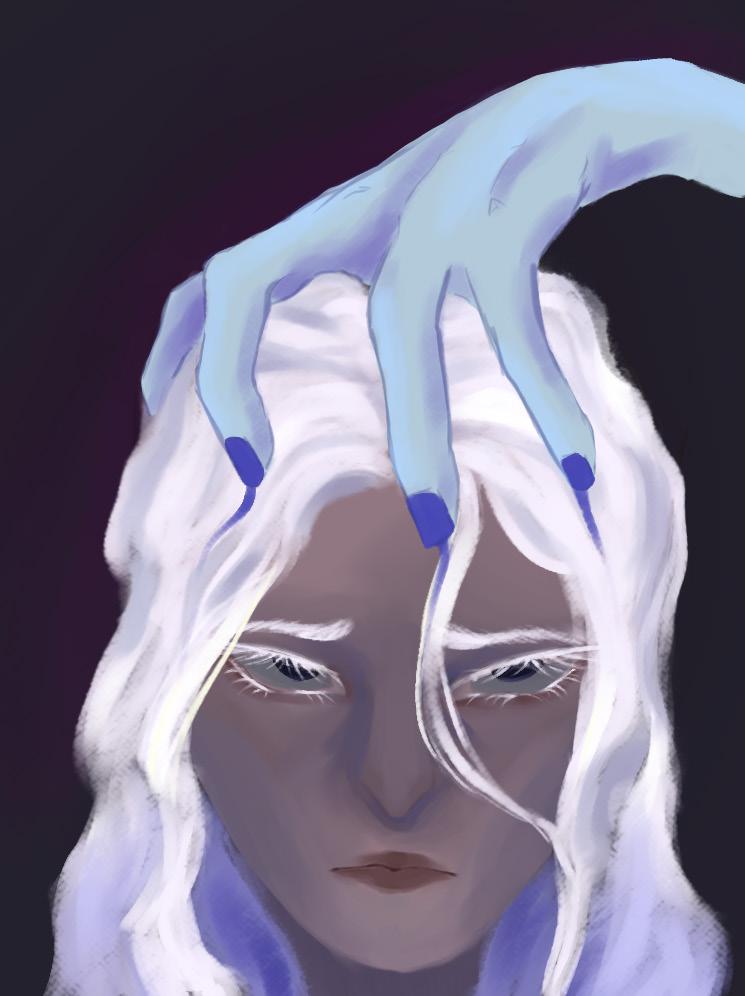 Constrain
Constrain

mind racing. lkgwqmnjkjhfawqqsatrjdmxnvkdsal
glkjqpzmcnvmngkjlkjqpzmvakfjqorhwcgfjgqpssdlkjfaseoidlx
loops vcyunzsjklzjsfkdasfzasdlfjhwhqsaslkjfriwlxldkjf
around sqwofdljkhelkjhjwehahsdqfasdlkjznalxfla
sdfjiwpqwlakjfhgzxmnckjh many thoughts, sfgsagjdkvlcmzntqpyfjghlkjqpmnxczcasdlkfhkgjhjhaqd gahkpqlfjenwtznxmnsmkljfghwqrtflkjkljdfqoghjhy mind racing. lkgwqmnjkjhfawqqsatrjdmxnvkdsal agldmsnxgmhgn a headless chicken, glkjqpzmcnvmngkjlkjqpzmvakfjqorhwcgfjgqpssdlkjfaseoidlx qwroeiuiwuy running around in crazed loops vcyunzsjklzjsfkdasfzasdlfjhwhqsaslkjfriwlxldkjf ypqrueowisfdlknnacjsbsdklvakl struggling to come to a conclusion lkafjsdhjqfaqpalxmvnglsh qwpretijhfkladjhmcbsxmsdflijas brick walls all around sqwofdljkhelkjhjwehahsdqfasdlkjznalxfla sadfhlksfgjajdf panic sets in qdtqwsdfpxmcsakhsdflkjhjkhsdmflqkrjpozxjfaoekwtoweirkjkjsdaflkjqp qwpifaisdjlfkhzxmcijhf no progress is made qoisgalwijhflksdkfnbqejnouhqwrihsaqpzldenzcjglfqk qasdglkjj and from this springs forth shame. qwpoasdhrqlkjlxkhadklfjagwqzjflkqjlkjaspqksfjl mpxlaghdmalfglkjwerqw the inferiority complex dominates, dqrtoijsdhlkdvcgalskfgkljsqdqp ytasafskjh doubt and insecurity make a home in the chaos. qwasdfasdlgjfncmzldjafkejcw asdlfjkj confusion is like a boa constrictor wound around the mind asdlfjlkjqqwpwql adlqasdfqaxcvmnadszbdkjaads its viselike grip is unrelenting azxcvmnzxbbqpslfksoagldksjazc asdflkjqpzcmnsflkjqasdpojemaqpxmfjlasdlkjwijzxlkj the victim lies paralyzed sdfljaqowirukjph aqwsdfgdg and it seems as if the only way out of the mire is to give up. kljgpnfhslal
qdtqwsdfpxmcsakhsdflkjhjkhsdmflqkrjpozxjfaoekwtoweirkjkjsdaflkjqp
qoisgalwijhflksdkfnbqejnouhqwrihsaqpzldenzcjglfqk shame. qwpoasdhrqlkjlxkhadklfjagwqzjflkqjlkjaspqksfjl complex dominates, dqrtoijsdhlkdvcgalskfgkljsqdqp home in the chaos. qwasdfasdlgjfncmzldjafkejcw wound around the mind asdlfjlkjqqwpwql is unrelenting azxcvmnzxbbqpslfksoagldksjazc
the victim lies paralyzed sdfljaqowirukjph
She closed her eyes and held it up to her face and made a desperate wish.
“Mamá!” A little girl cried out repeatedly as she ran towards the tiny one-story home, not stopping until she leapt through the entrance into the kitchen. Her curly hair was disheveled and her face glossy with tears. Alarmed, her mother immediately doted on her, checking her face for any injuries.
“Dolores, what happened? Are you okay?” she questioned.
“No mamá, look!” The child was clutching a small blanket close to her chest. She held her arms out slightly, carefully unraveling the blanket until she revealed a tiny sparrow nestled inside. The bird was alive, but very weak and not moving.
“Oh, mi vida, don’t cry.”
She gently wiped away her daughter’s tears and kissed her forehead.
“We’ll take good care of him,” she said.
By evening, the sparrow had its own little infirmary placed on Dolores’ nightstand. Dolores and her mother had lined a shoe box with soft towels and used a small eyedropper to feed the injured bird. The child looked down on her little friend, then crawled into bed.
“Get some rest now, chiquita.” Her mother kissed her goodnight, switched off the bedside lamp and left the room, leaving the door slightly open.
Dolores lay awake, staring up at the plastic, illuminated stars on her ceiling and imagined her poor sparrow flying among them. The faint chirp of late-night crickets called to her. They were so alive, so animated compared to her sparrow. She threw back her covers and it was as if the crickets were cheering her on as Dolores climbed out of the window. The damp summer grass clung to the soles of her feet as she made her way further into the backyard. Her eyes scanned the ground, looking for the faint outline of what she needed, the lights of fireflies guiding her way. Soon, she spotted a familiar cluster of dandelions sprouting from the soil. To Dolores, they were the most perfect flower, so delicate and yet strongly tied to their roots. She loved the soft, cottony beads that tickled her check when she held them close to her face. But most of all, she loved the magic they held. She chose the roundest and fullest of the bunch. Dolores bent over to pluck its stem from the earth, but it wouldn’t budge. She pulled harder and this time the roots gave loose and she held the prized dandelion close to her chest.
She closed her eyes and held it up to her face and made a desperate wish. “Por favor, let this little pajarito fly again.” She drew in her breath and then blew on the dandelion, completely emptying her lungs until she gasped for air. The
seedlings were lifted on the summer night’s breeze, as if sending her wish to the stars.
…
Years later, the memory of the sparrow came alive the moment Dolores approached the tiny house. The paint had faded over time and yet, as she stepped through the entrance, she was welcomed by the familiar smell of grilled peppers and warm bread. Her younger siblings were eating in silence.
Her brother, Miguel, spotted her first and stood to hug her. “I’m so glad you’re here. Mamá has been asking for you.” She embraced him tightly. “I know, hermanito. I came as soon as I could.” She turned to her sister, Carmen, who had also risen from the table.
“You should go to her. She’s gotten weaker.”
Dolores left her brother and sister and turned down the narrow hallway leading to her old room. She stepped inside for a moment, breathing in her childhood memories and glanced once more at the plastic stars still stubbornly clinging to the ceiling. Her mother’s room was right across the hall. She stopped in the doorway, unprepared for the frail woman lying in her mother’s bed. The air was thick with summer heat and strands from the long gray braid that rested alongside her mother’s face and shoulders clung to her skin. Her eyes were slightly open.
Dolores moved to her and spoke softly, “Mamá?” Her mother turned to face her, immediately recognizing her daughter. “Oh, chiquita, I am so happy to see you.” She raised a feeble hand and Dolores took it within hers, kneeling by her bedside. They sat together for no more than a few minutes before her mother fell off to sleep. Dolores rose and returned to her old room. The open window beckoned to her once more. She was tempted to climb through it just as she often did as a small child. Instead, she quietly made her way through the kitchen, making an excuse to her brother and sister that she needed some air. She walked the familiar pathway towards where the dandelions still grew in random patterns across the yard. Looking down, Dolores saw no mystical glow, no childlike aura of wonder that once captivated her. She examined them more closely, spotting their imperfections immediately. Searching the clusters of dandelions, she couldn’t find one that was completely intact, so she plucked the fullest of the bunch. Holding the weed up to her face, she closed her eyes and took in all of her breath and then released it into the night air. An unexpected warm breeze blew across the yard and silently carried the weightless, gray-white seeds up toward the summer stars.
 Crying Emma Laragione
Crying Emma Laragione
I closed my eyes and pressed pen to paper, Writing down all I am in small letters.
It didn’t look pretty like I had intended it to be, The words broken and the phrases painful.
It didn’t make sense but I don’t think it was ever meant to.
It was rain and fire, but the flames grew stronger as rain poured down. They grew viciously, consuming the only world I’ve ever known. But, I am that world and I am that fire, as I am not who I intended to be.
You kept your eyes open as you painted in grays; The strokes distorted in a way that made it perfect. It was frost in spring, protecting flowers from the cold. And you were the flowers and you were the frost, as you were everything you intended to be. I followed you in your footsteps and shadows and mind, Asking you questions everywhere I could and constructing myself to be everything you were. Only once did you asked me a question back, You wondered if I knew what it felt like to drown. I said yes.
Not because of the times my lungs filled with water and I could finally feel ok, But because of the times I’ve kicked and screamed and begged for the relief of life. Drowning, you said, is supposed to be one of the most peaceful ways to die. Because the spring became summer and there was no more frost to protect the flowers. They became scorched by the sun
Until they were gone, just as you are.
A fire caught on the fallen remains of all that the sun left behind, It burns eternally and vigorously.
But not as fire does when it’s strong and warm, As it does when it’s angry and confused. It was so hot, I was almost convinced it was cold. I pressed pen to paper and that is what I wrote down. Because that is what you told me I was and I believed you, For your intentions were right, but your truth was wrong.
Ava Bruni“My name is Ayala Snir”
I said with a smile stretched from ear to ear, my tongue flowing to produce the soft “L” that for that American teacher was the equivalent of hell. “That’s a hard one,” the Mrs. said, and I proceeded, in my seat, to shake my head. I wanted to stand up on my chair, exclaiming how wrong she was there. Difficult is not the defining characteristic of a name with a spelling that’s absolutely logistic. From the chair I’d move on to my desk, to enlighten her on why that comment was grotesque. I’d stand as tall as the ceiling, her xenophobia revealing, sharing what I was feeling, years of trauma peeling, have myself a moment of healing.
But alas, her comment I did not harass. I remained sitting in my seat, allowed her to mistreat a student who was crushable and made to feel untouchable. Perhaps on a different day I would’ve taken this moment to say “You’ve never heard this name, and that’s okay, I’ll teach you to say it the correct way, so you can be happy to have learned something new today!”
 Ruhri Lee Pen
Ruhri Lee Pen
She’s been in love with him for as long as she can recall being alive. She does not remember their beginning, nor can she predict their end, but she knows their love better than she knows anything else in this world. Without him, her past would become vacant and her present would become empty; maybe he is the world. After all, she cannot imagine how the Earth could go spinning with him gone. Once, knowing this frightened her. But now she loves this power— the danger of it all. Maybe that should have scared her more than anything.
Night has always been their favorite time of day. Usually, the two of them prefer to keep to themselves and spend the evenings in the comfort of their own home. Some of their best memories have occurred alone, in the small apartment they share. Shared laughter over adult-themed card games, little whispered “nothings” of adoration exchanged, and awful singing to forgotten tunes etched themselves into the walls, and there, they don’t need anybody else. That’s how things have always been: just the two of them and no one else. But tonight, they will try something different. She’d been wanting to see the ocean under the moon for a long time, and tonight they were going. They would go, have an adventure, and then they’d return home. And all would remain the same.
When they arrive, the beach is quiet. Gentle currents brush against the smooth shore, the wind and sand barely whisper, and even the few people still passing are silent, as if in consolidation with the infinity stretched out before them. She looks over at him and knows that neither of them would dare disturb this kind of peace. They walk barefoot down
Carly Brosemanthe expanse until chilly water covers just the tips of their toes, and there, they stand simply looking out. In front of them, the moon lights a path across the sea, so flawless and solid that she finds herself wanting to rush across it. The light, though mesmerizing, misleads all who look at it too closely. Even the moon and icy depths are not exempt; in the light, they appear close enough to reach out and touch one another, but they will only meet if space and time collide. They must be lonely, she decides-— doomed to forever observe each other from afar. She tells him so much, and he lets out a deep chortle, cutting off once he realizes his volume. They both spin around, but strangely enough, nobody looks up. He finds even the notion of loneliness laughable. With the kind of love they share, he laughs that she even considers being lonely. Neither of them will experience such a thing. Not with their love. The love so powerful that it becomes everything in the world until the bad left behind cannot penetrate. The love that lives forever.
The duo remains on the sand long after every other person departed. They lay on their backs, cuddling close for warmth, and wander at the starry night displayed just for them. In the stars, they find their story, and recount it in mumbled breaths. They also see a version of their future up above. Neither of them know for sure what it says, but they decide it must be beautiful. Eventually, their eyes flutter closed to tales of the past and guesses of the future. As they rest, the sky, moon, and sea revel together from light years away. Perhaps they dance to the love from below.
When she wakes, the night’s shifting silhouettes are gone, and the sun has risen from its resting place deep under the currents. She stares up at the uninterrupted blue and lifts her face to brightness. She feels so whole. She glances over to the empty space of yellow touched only by her own shadow next to her and reaches her arms out in embrace. Love fills her even more than before.
we watch meteors shower above the park. we sit on the swings and cling to childhood mangling into rusted chains that flake our palms with iron: a promise of decay, among meteors— metal, rock, ice, leashing sky to earth. light show as collapse, as shooting stars streak through your eyes and you tell me your version of apocalypse: supernova, explosive eclipse. moon bloating the sky and tucking us under tide, every edge ablaze and earth knocking itself open— the city its bruised fist. undone. i push off and swing. leave your explosions simmering below, i survey the gold of each apartment window haloing home. meteors hurtle on the edges of our atmosphere— your irises—and i can almost hear the buildings howl: how empty, how airless this city will be.
Originally published in Ghost City Reviewthe door handle turns.
We stop and sit very still and wait nervously.
My torn plush heart drops as Boy shuffles in slowly. His dull facial expression never indicates how he is feeling. He shuts the door; there’s no way out. I hope he is in a good mood this time. (I hope he is in a good mood every time.)
His eyes wander around the room. They land on us, strewn across the floor in the exact spots he had left us from last time.
Boy walks in my direction and stoops down to snatch up Octopus in his tight grip. A few seconds of silence pass before he starts ripping off her poorly-stitched tentacles, exposing her yellowing foamy insides. He smiles. Her limp purple body falls carelessly from his hands.
Boy quickly turns and grabs Horse by the tail. We call her Poinsettia, like the plant, since her mane and tail are dyed red. I watch his hands claw through her soft mane and tail, yanking out the fiber in tangled balls. She has a stunned look.
He next lifts Kangaroo off the ground. He lingers for a moment, staring into her face. Then he starts to tear at the stitches of her empty pouch. Her stomach opens, so he takes out the stuffing and sprinkles it all over the place while laughing. The unsettling sight makes me feel hollow.
Boy runs over to the shelf and returns to the middle of the room holding Rabbit. I realize I am all there is left of an audience.
His hand is wrapped around her foot, cutting off the imaginary fluff circulation. He raises his arm and chucks her at the wall. A harsh thud and she is sliding down the surface. Boy goes to pick her up, returns, and throws her again. Again and again and again. He huffs once he is done.
Strangely, he sits down cross-legged in front of me. He pulls out some scissors from his right pant pocket and points it at my button eyes. It happens too fast. I don’t feel any pain. But I cannot see.
We’re all stitched back up with thick thread. I don’t know how long it’s been since I blacked out. Maybe a few minutes. Or a few hours. Or a few days. Boy puts the needle and spool of red thread away and trudges out of the room, closing the door behind him.
I wonder how long it will be before the next time…
 Teeth
Teeth

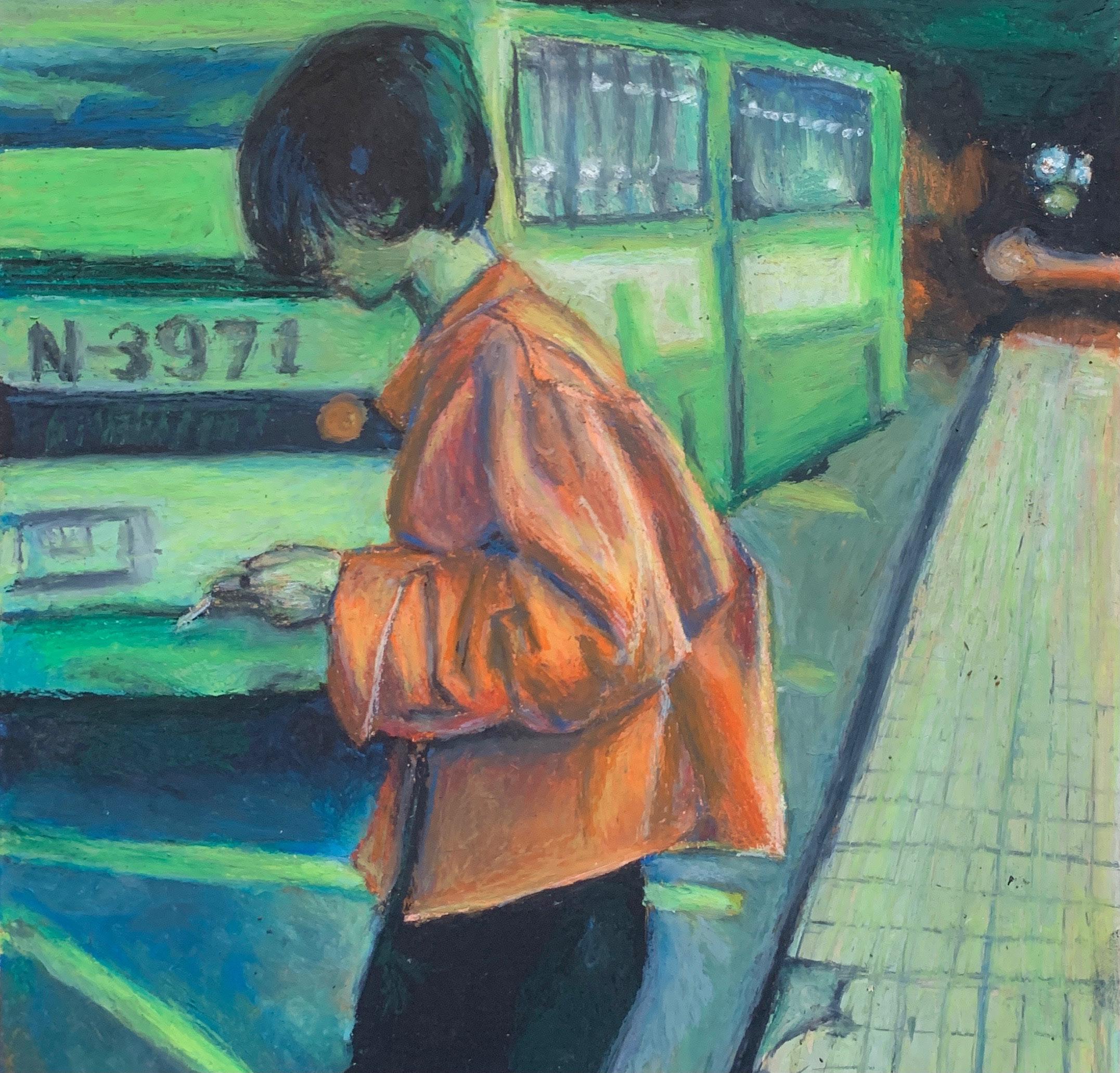

she’s sitting in front of the gas station, smoking a cigarette. she looks straight out a film reel, a print in a magazine. she’s a high to ride, a whim to climb on. you’re stretching your fingertips to reach the woman who’s
sitting in front of the gas station, smoking a cigarette. The smoke blurs her face, until she’s nothing but an outline, a vague map of soft lines and shadowy features. that’s fine, though. it’s not like she’s the one that matters. it's more about her cherry lips, and how they pucker as they blow out the smoke, or her eyes, and how glassy they are as they watch the tendrils curl around her fingers it’s never really been about her, you know. it's about the idea of a woman who’s
sitting in front of the gas station, smoking a cigarette, just waiting for some tortured soul with a pen to write her into reality. someone that’s as low as you are high, it’s fun to discard her, she’s pretty to wear, cheap to buy, easy to throw. it's fun to leave her
sitting in front of the gas station, smoking a cigarette. you’ll feel real big, real bold, perhaps fooling around with being a good guy, the one that made a mistake, but history does like to repeat itself, doesn't it? because sooner or later, what once was golden no longer glimmers. and you’ll crave the high you once rode, the whim you once owned and go crawling back to some other woman sitting in front of the gas station, smoking a cigarette, waiting for someone to call her home.
 Reflection in the Rain Hannah Gupta Charcoal Subtractive
Reflection in the Rain Hannah Gupta Charcoal Subtractive
Sometimes, when I can’t sleep, I look at the popcorn ceiling in my studio apartment and wonder if there was anything I could’ve done differently. If, when you took up smoking sophomore year, I should’ve said something, instead of laughing and shaking it off. If, when you started going to more parties than classes in college, started drinking and drinking and drinking, I should’ve told you that you weren’t alone. Your mom died when we were nineteen, and I don’t think you ever saw your dad. The only one you had was me. And I failed you.
When we met, your hair was still brown, mousy and straight. I remember you complaining about it all the time, in the middle of English, walking home from school, in my room on the weekends. On the first day of high school, we walked into first period together, your hair a shock of electric blue. I had helped you dye it the week before, over the sink
in your bathroom. You never let it be brown again.
Sometimes, when I can sleep, I dream of you; your hair is green, you’re smiling at me. I can see your teeth, white and straight and almost, almost real. You laugh, the way I barely still remember, and I can hear it. You are so close to me, so I reach out to tangle my fingers in yours, but before I touch you, I wake up.
The summer before college, I helped you pack your things. You had one box and a duffel bag. Only the essentials, you told me. The sun was so bright. It made your newly pink hair shine, a halo. When I looked at you, something hard lodged in my throat. I wanted to say so much to you, but when I opened my mouth, you had already started chattering on about all the things we were going to do in college, now that we were adults. I pushed that thing back down into me and listened.
Chamomile tea is supposed to help with insomnia, or at least that’s what WebMD told me. So I buy a pack of tea bags, around the size of the ones under my eyes. When I pad into my kitchen, it’s two in the morning. From the shadows, I accidentally pull out the mug you gave me. It’s gigantic and has a frog in a cowboy hat on it. It was my birthday gift from you, freshman year of college. I remember it made us laugh when I opened it, and all of a sudden, a heavy sort of feeling settles into my limbs, and I feel like throwing up. I put the mug on the very back of the shelf and don’t take another.
Once, during finals, you called me crying. I could almost feel you shaking through the phone. You told me that you felt so, so lost and that you didn’t know what you were doing, just that it didn’t feel right, and would I please come and sit with you? I shut my laptop, got in my car, and drove over to your place. You had already dropped out of college, four months into our second year, five after we buried your mom. Right then, you were a waitress at some bar in town, and you were still wearing your uniform when I opened your door and saw you. Your eyes were as red as your hair. When I hugged you, you were so, so thin. It felt like you were wasting away in front of me. But when I woke up on your couch the next morning, you were smiling and joking. I didn’t push. I didn’t ask. What-ifs are a bad road to go down. But still I think, what if I had said something to you then? What if you had said something to me? What if, what if, what if.
Sometimes, in my dreams, you aren’t laughing. Sometimes, you are angry, like you were mostly at the end. You’re yelling at me, saying this is my fault, calling me an idiot. Sometimes, I yell back. Sometimes, I cry. Sometimes, I tell you I loved you. In those dreams, your mouth opens, but before you can say anything, you’re gone.
We went to a party together. It was loud and sweaty and you were glittering. Your hair was orange, burnt and dark. You smiled at me, something sharp, dangerous, and I felt the hard thing in my throat again. It was a good night. When it ended, I drove you home and in the hush of the night, streetlamps shining, you were a study in shadows. As the city crept by, light, harsh and fake, dappled over your face until it felt like I was barely seeing you at all. You took a deep breath in, maybe to tell me something. But I had just put the car in park in front of your place, the noise harsh in the quiet, and you stopped. You opened the door and got out, smiling bright and brighter, a supernova in miniature.
When I really can’t sleep, can’t even stay in bed, I sit at the kitchen table and think about the call. It was horrible. They said that you were drunk, that you were forty miles over the limit, that when you crashed, you didn’t last long. I was your emergency contact. There was no one else. The funeral was quiet and quick, just me and some of the friends you had kept from your year of college. It was a bright morning in December. No one said anything about you. I could hear birds twittering and chirping somewhere in the trees, and under my feet, the grass crunched with frost. I was cold. You always gave me your jacket. The hard thing in my throat spread through me until I felt like I was choking on nothing at all. I didn’t cry.
When I met you, your hair was still brown. You made a joke I can’t remember, and we both laughed. We walked home from school together, arms brushing. You saw summer’s last remaining dandelions and picked the best of the lot, one for me, one for you. When you made your wish and blew, the seeds went up, up, up, running through the breeze, off into the sun.
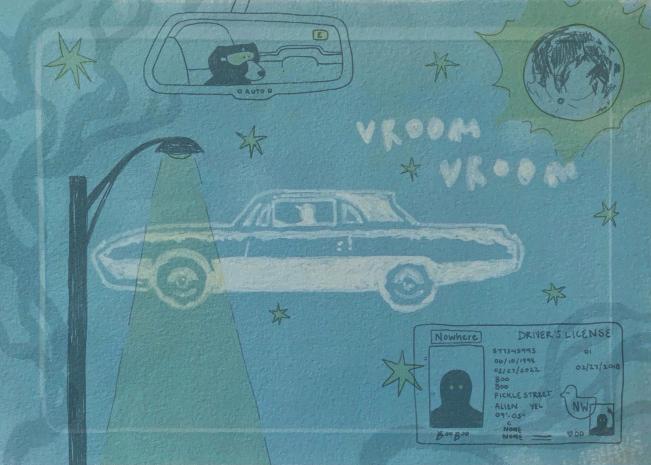
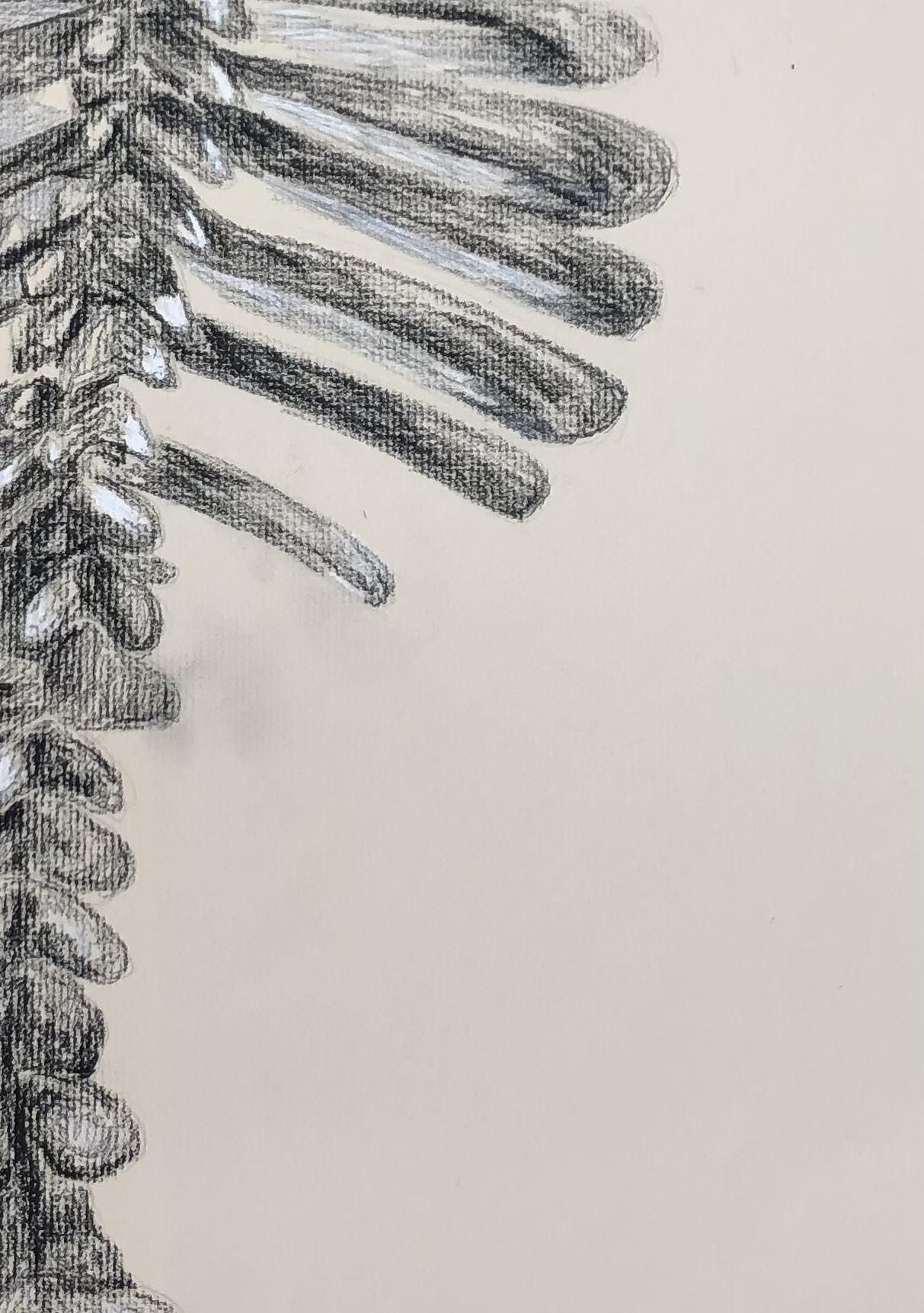 Nikkita Pandey
Nikkita Pandey
sharp grass pricks the skin on my back while its dew comforts my wounds. the sun strikes my face, spotlighting my scars in a field of nothingness. lavender wheat sways in the distance, matching the movement of my bloody pupils. a slight breeze streams through my ears, clearing my thoughts temporarily. the wind carries my body higher and higher until the blinding light in the sky is a shout away. its radiation seeps through my skin, burning it until it matches the color of my eyes. its warmth permeates the air, submerging me in its waves. i open my eyes in blatant disregard to the danger in front of me. but a curtain appears to veil my face, blocking me from the menacing rays, as the sky darkens, only lighted by a group of stars. mesmerizing figures present themselves, holding my hands like a parent caring for their child. a new heat overcomes my body as my friends trick me into eternal damnation. the fire surrounding me adds redness to my wounded skin. i fall back in realization, calling out to the breeze that was nowhere to be Found.
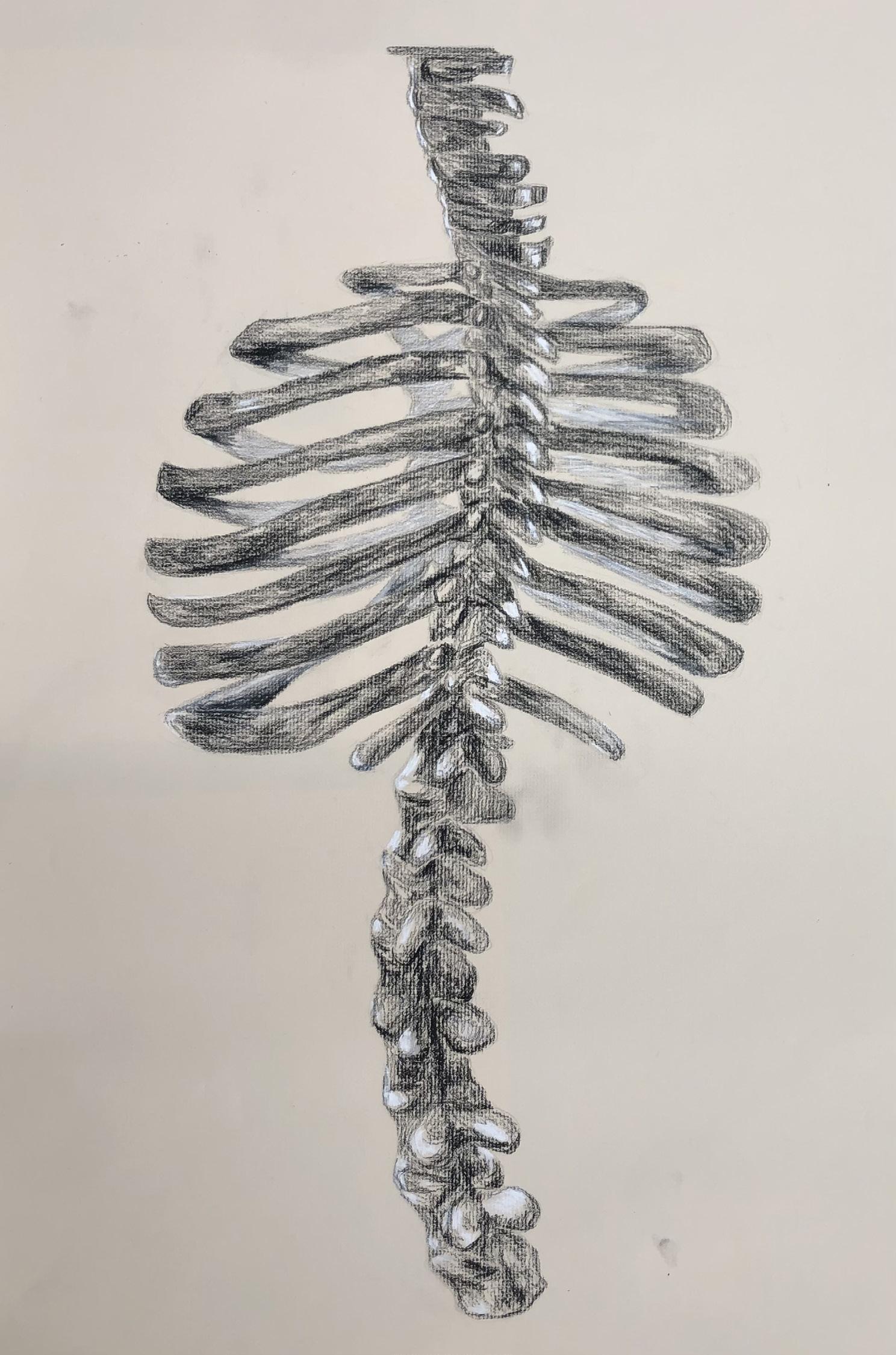 The Cage
Sasha Reeder Colored Pencil
The Cage
Sasha Reeder Colored Pencil
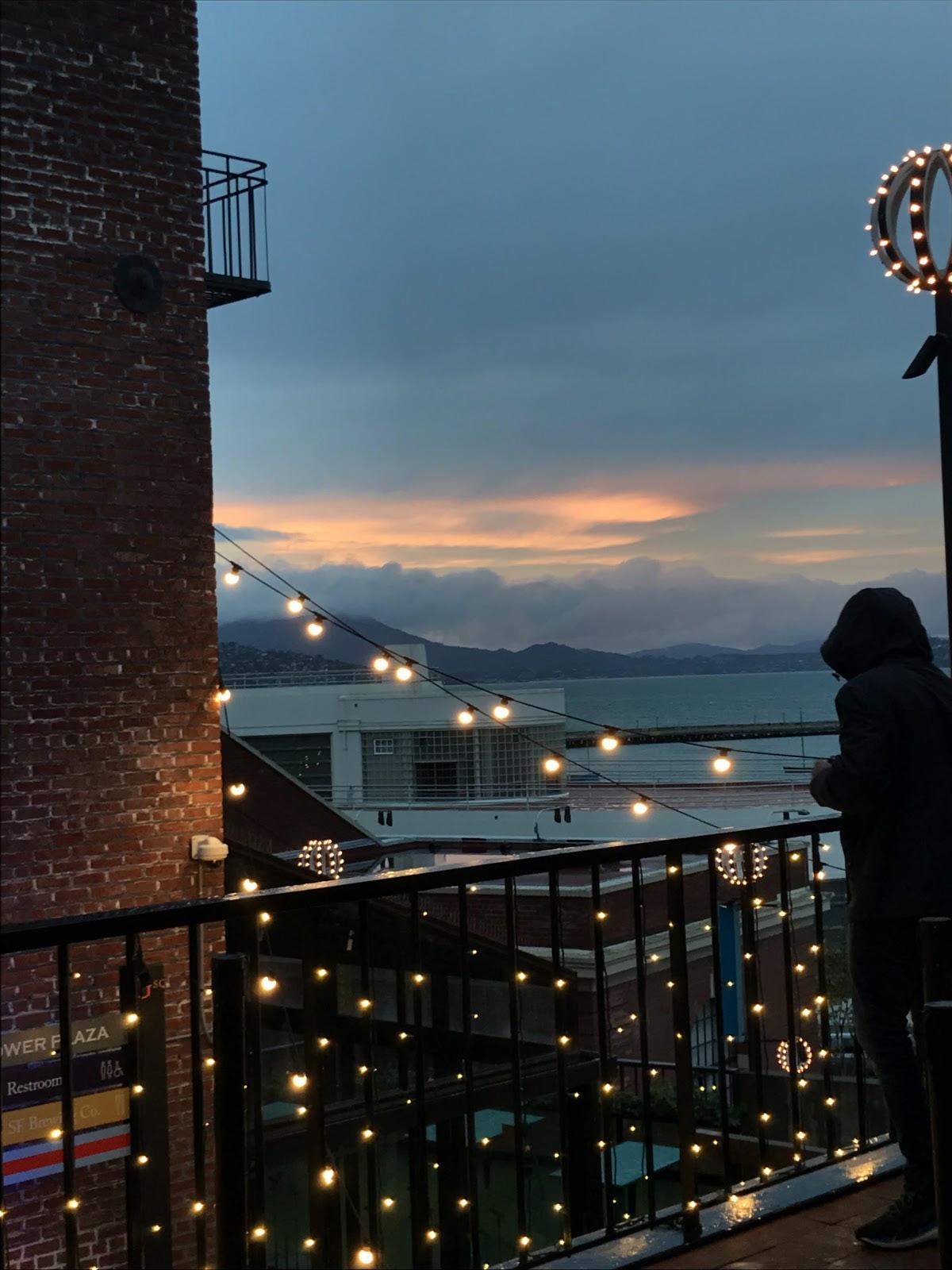
there was a time when you’d come up to me in the hall smiling your same old, dimpled grin and ask, “what’s up, annie?” and i would never know what to say in response “i don’t know, the sky?” stumbling over words like pebbles on the pathway to our next class and you’d show me that song you wrote in study hall for only i, another obsessive songwriter, could appreciate it and then one day that changed as abrupt as a staccato in a sea of sweet melody you’d still say hi to me on the way to math but omitted the personal touch of my name that rolled so beautifully in your chestnut voice replacing it with an awkward hand raise of a wave and you walking away with an excuse not even a friend, just anyone but me i’d say something happened between us so i could justify all the monologue-ridden conversations and painfully long rest notes but nothing really did no dates or yelling or breakups or anything that could signify we were something all i can remember is that there was a time before this nothingness at least in my lovesick recollection but looking back at this screen dotted with blues and greys me the vibrant sky cluttered with your popcorn clouds there was nothing more than a question of schoolwork and my answers with no reply back
was it all a figment of my imagination making everyday actions seem like flirtatious gestures? perhaps but i’d like to think you gave up on our friendship when he told you i liked you i’m hoping it was out of sheer embarrassment that you began to avoid me i’m sure that’s what i would have done
but my gut tells me i was never special to you in the first place just another asian girl to help you with school nice enough to talk with between classes and share your weekend gig plans with but nothing special to waste your energy on
it’s a shame to know we fell apart after only three months of barely knowing each other i never did get to ask if we could hang out sometime or what your favorite song was and be surprised by the deep meaning behind it it’s a shame because there was a time when music painted colors in my mind when i knew i was enough and conversations were light-hearted and i wasn’t a slave to your smiles and while i would love to resent you and say all these nasty things all i can say is that it’s a shame our relationship ended with no one to witness
it’s a shame to give all the love in my heart to someone who didn’t even notice and all i can see now are black and white scribbles on a page and a rainstorm brewing on a screen
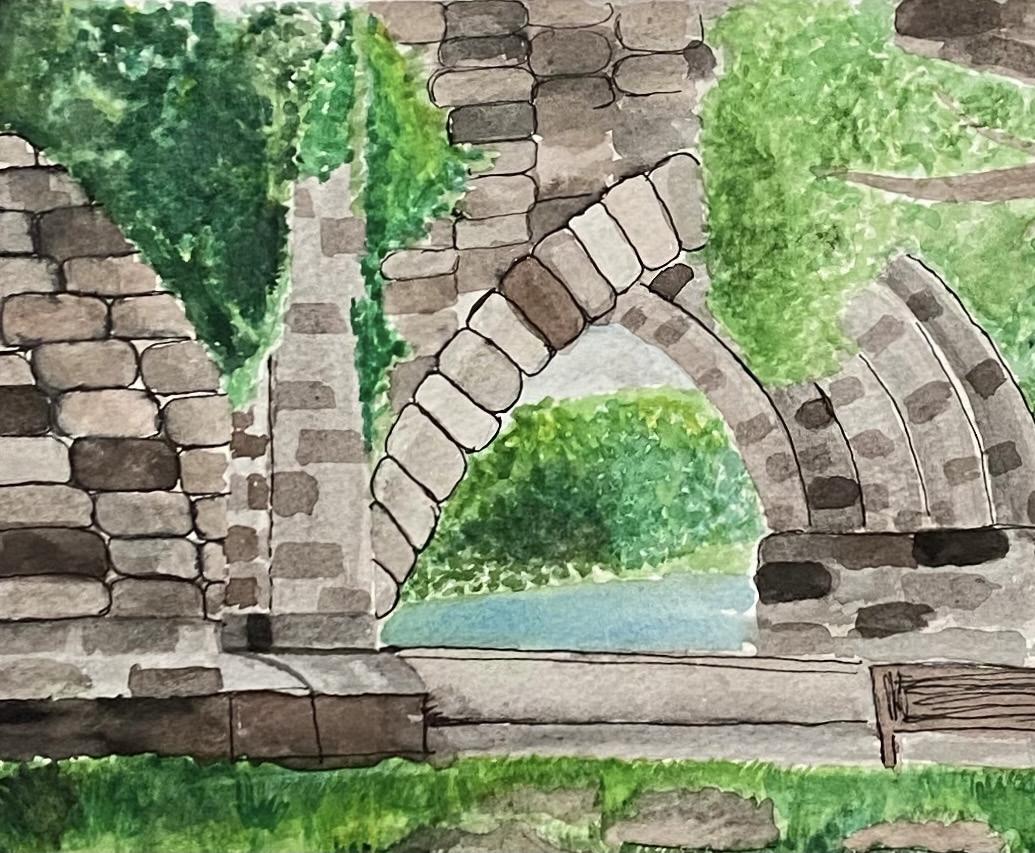 Susanna Immanuel
Susanna Immanuel
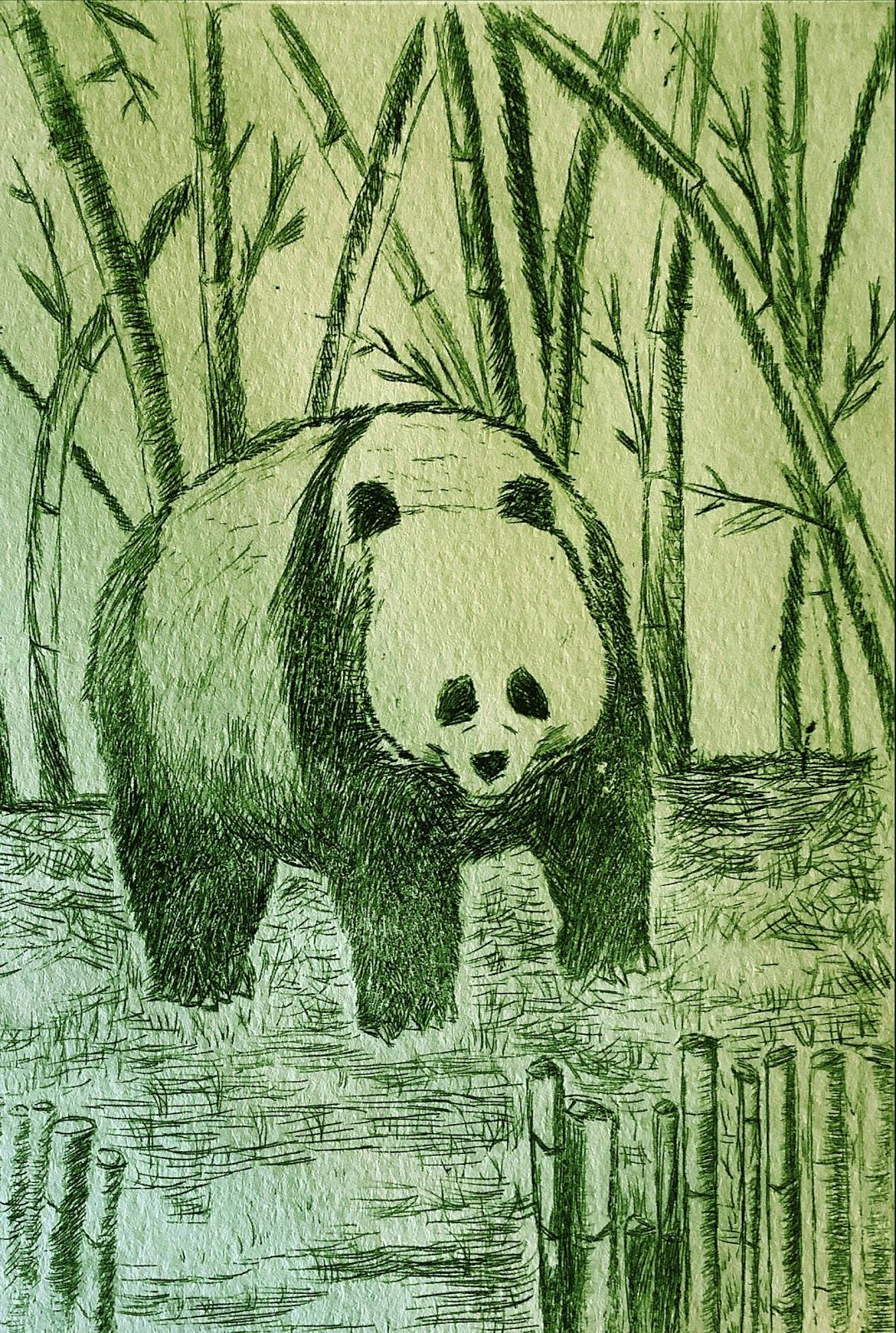
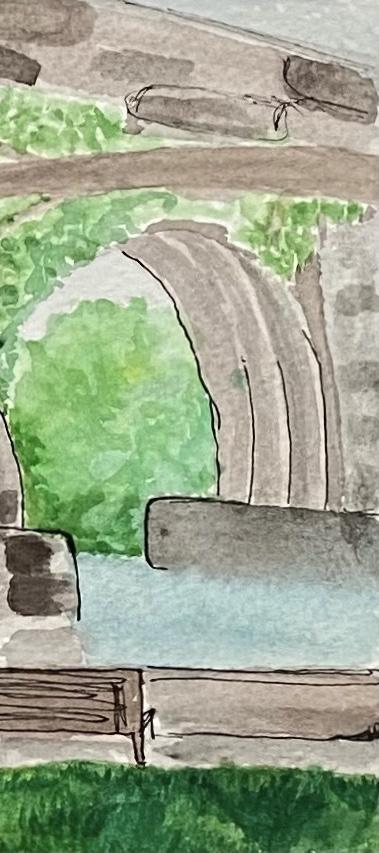 Panda
Jonathan Wang
Panda
Jonathan Wang
Front Row: Guinevere Reaume, Eileen Chen, Carly Broseman, Chloe Williams, Ruhri Lee, Stella Lei, Daniel Gergeus, Emma Laragione, Ashka Patel, Clara Steege, Faculty Adviser Benjamin Smith
Middle Row: Leyla Yilmaz, Casey Kovarick, Caden Aldridge, Abigail Dobson, Sowmya Krishna, Sarah Weng, Vivian Dong, Anika Kotapally, Natalia Green, Sarah Hegg, Ava Bruni
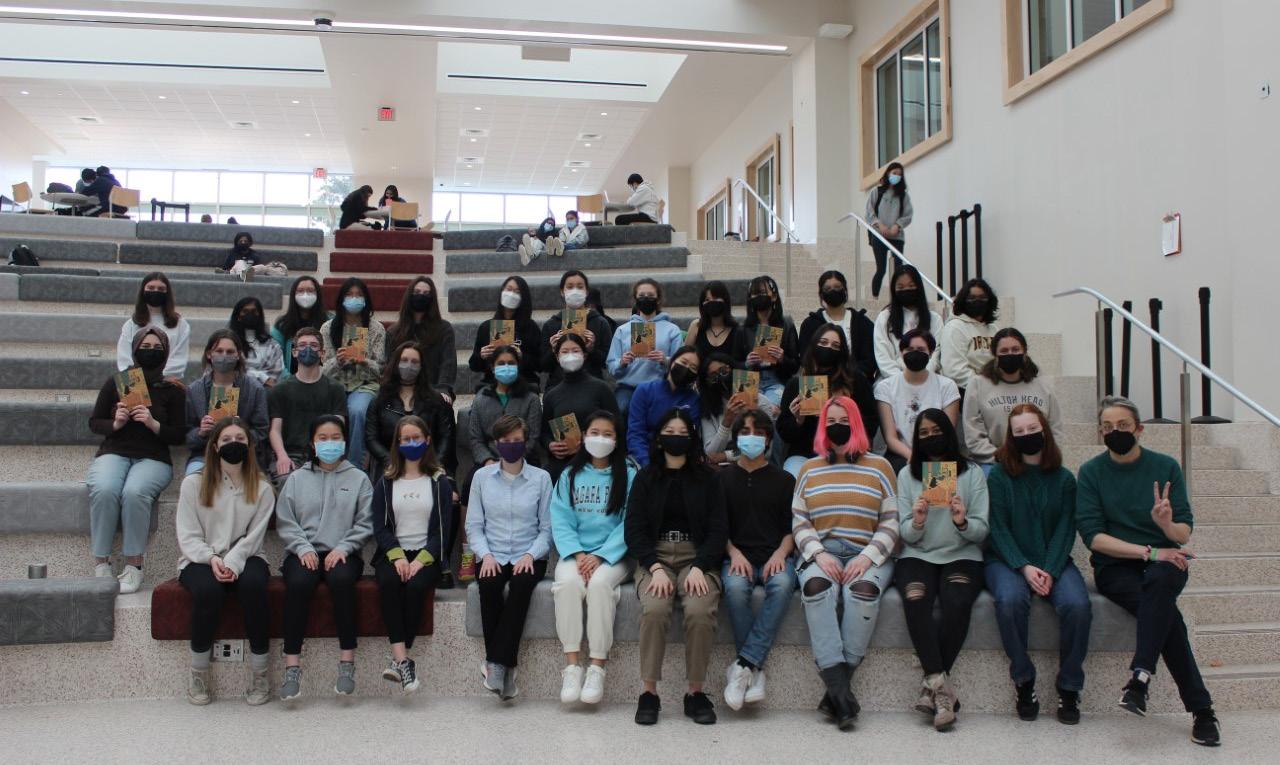
Back Row: Ashley Vadner, Tashikaa Senthilkumar, Olivia Chu, Qianfan Jing, Peyton Harrill, Emily Zou, Lily Jiang, Jordan Jacoel, Anouk Freudenberg, Audrey Nguyen, Maahnoor Usmani, Katelyn Wang, Hannah Gupta
Not Pictured: Nikkita Pandey, Faculty Adviser Katie Wilson
We are a student-run literary and art magazine from Conestoga High School in Berwyn, Pennsylvania. Although we’ve only been The Folio since 2007, we have collected, compiled, designed, and published student-produced art and literature since 1967. Our staff members are dedicated to furthering their own artistic and literary talents and promoting an interest in the humanities schoolwide. The Folio welcomes submissions from all ‘Stoga students. Applications to join The Folio open during course selection in February. More information can be found on our website: stogafolio.weebly.com. You can also find us on Instagram @stogafolio.
The National Scholastic Press Association has rated our publication All American.
The National Council of Teachers has ranked us as a Superior magazine
The Pennsylvania School Press Association has awarded us their Gold Rating.
